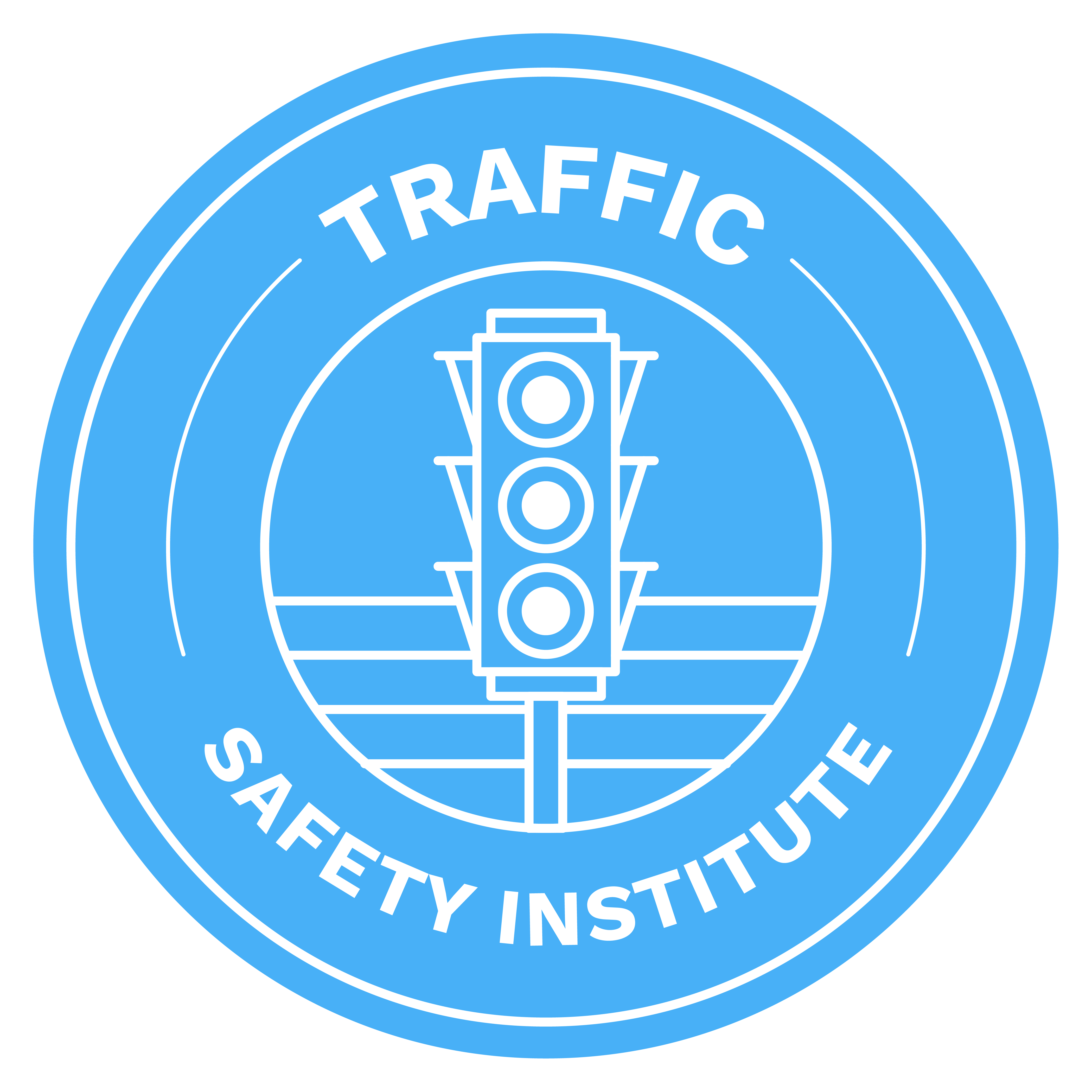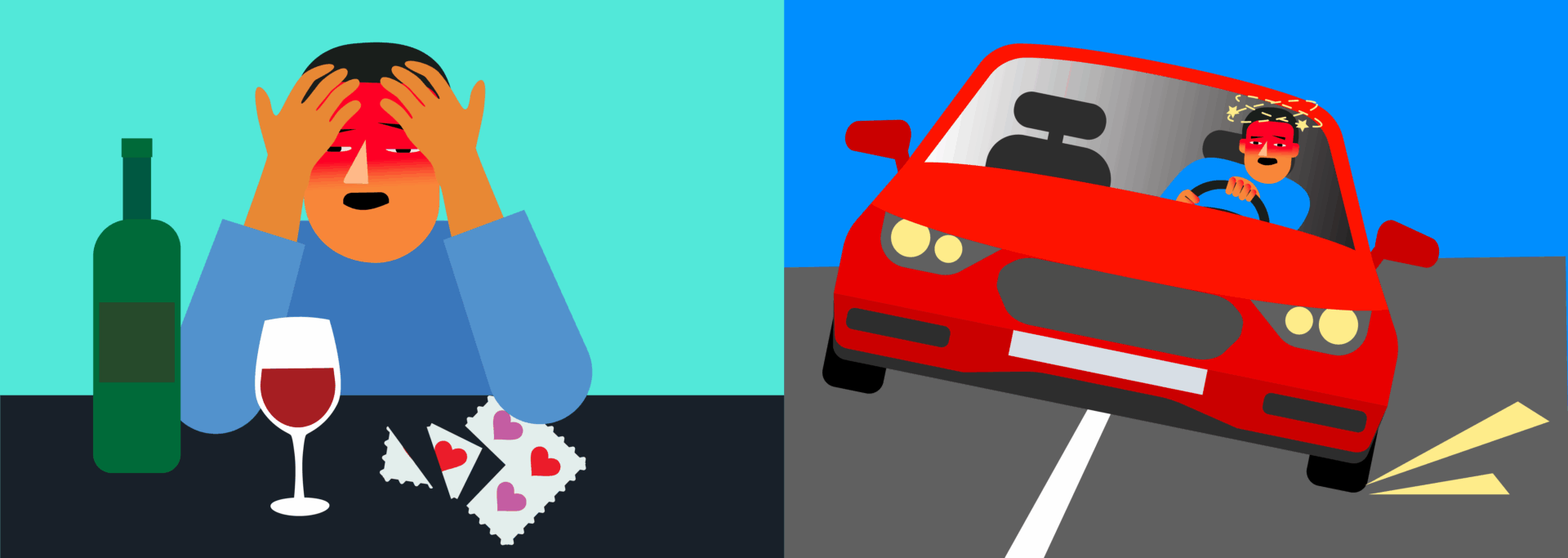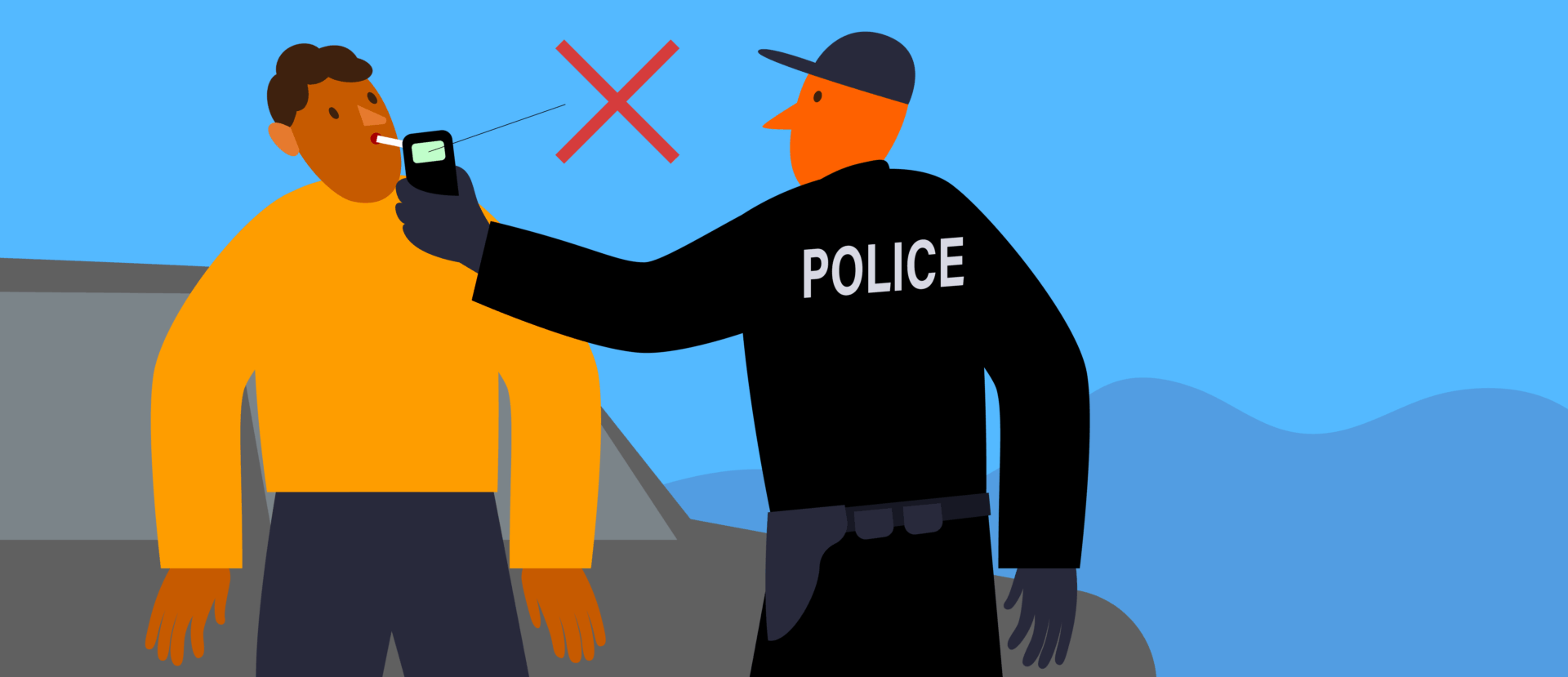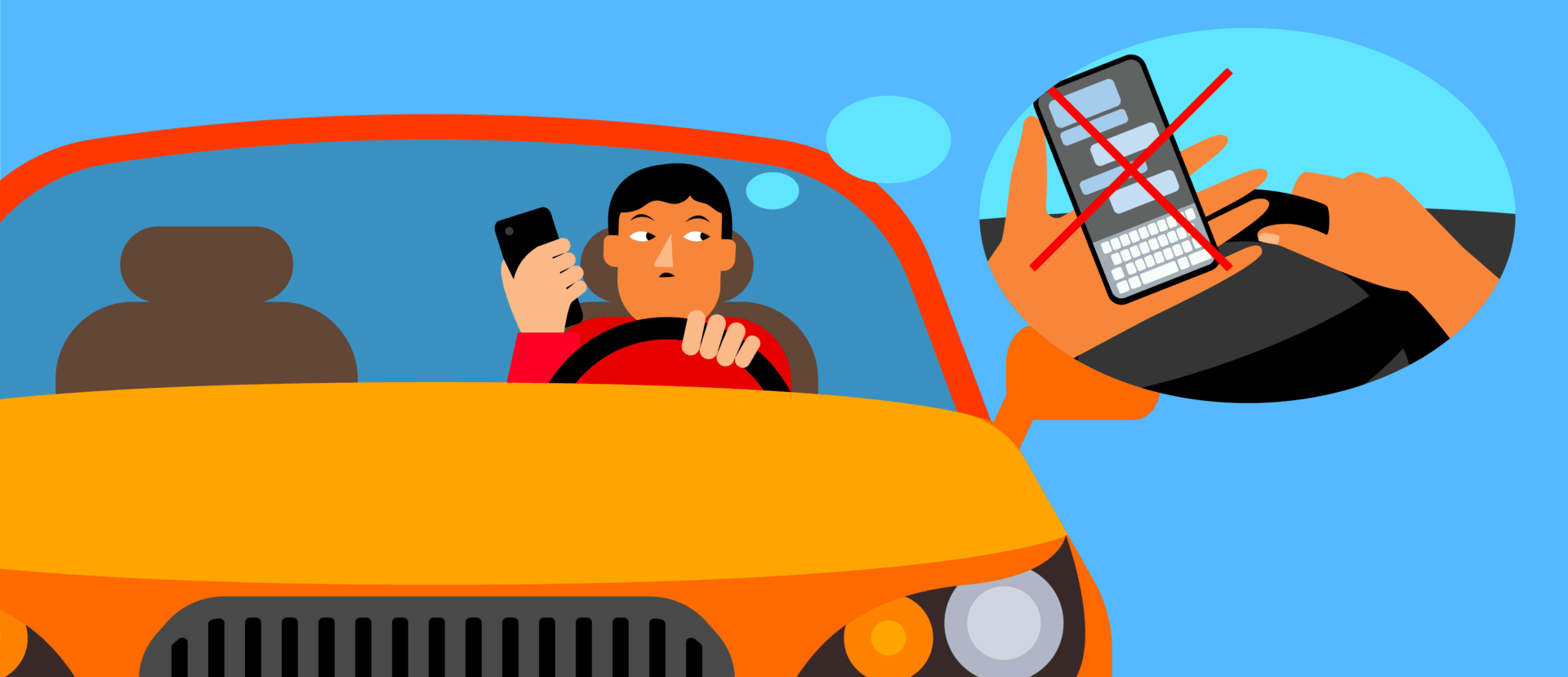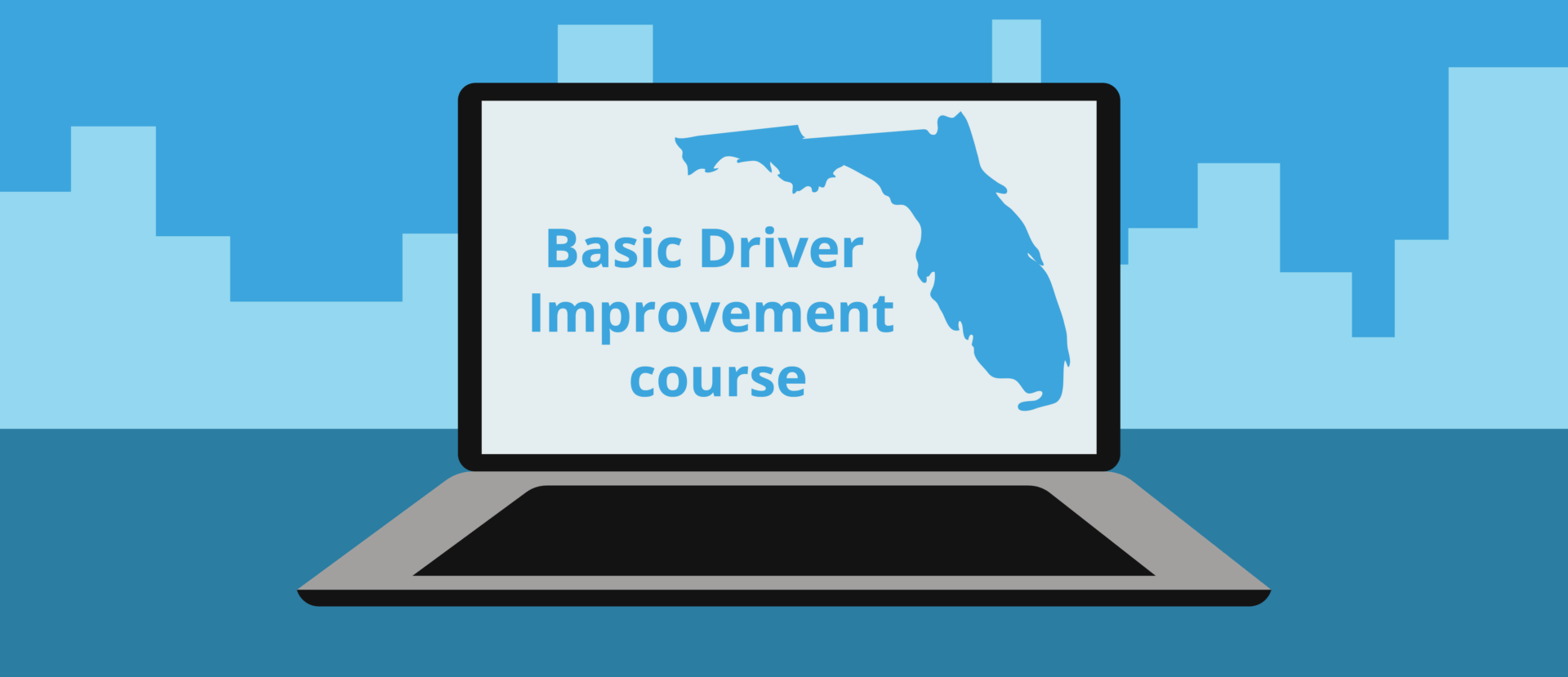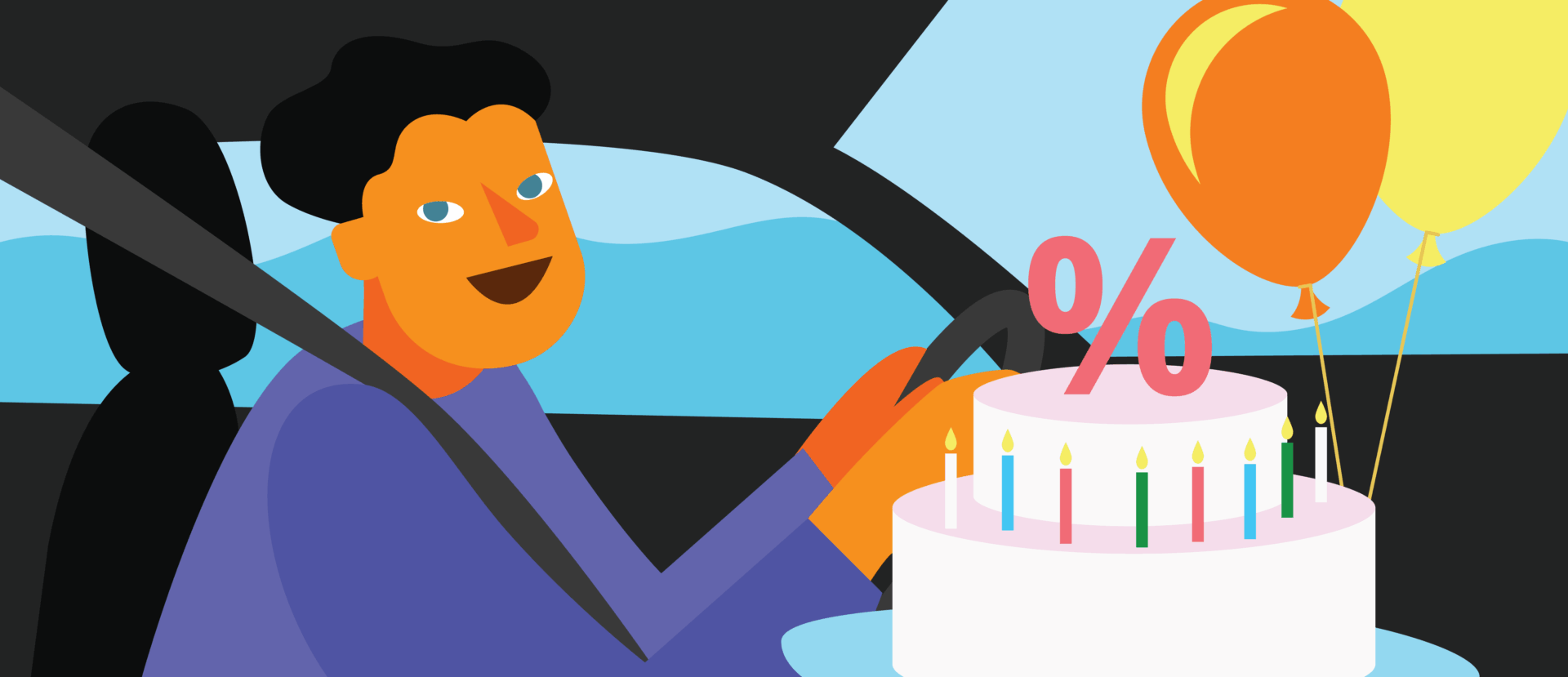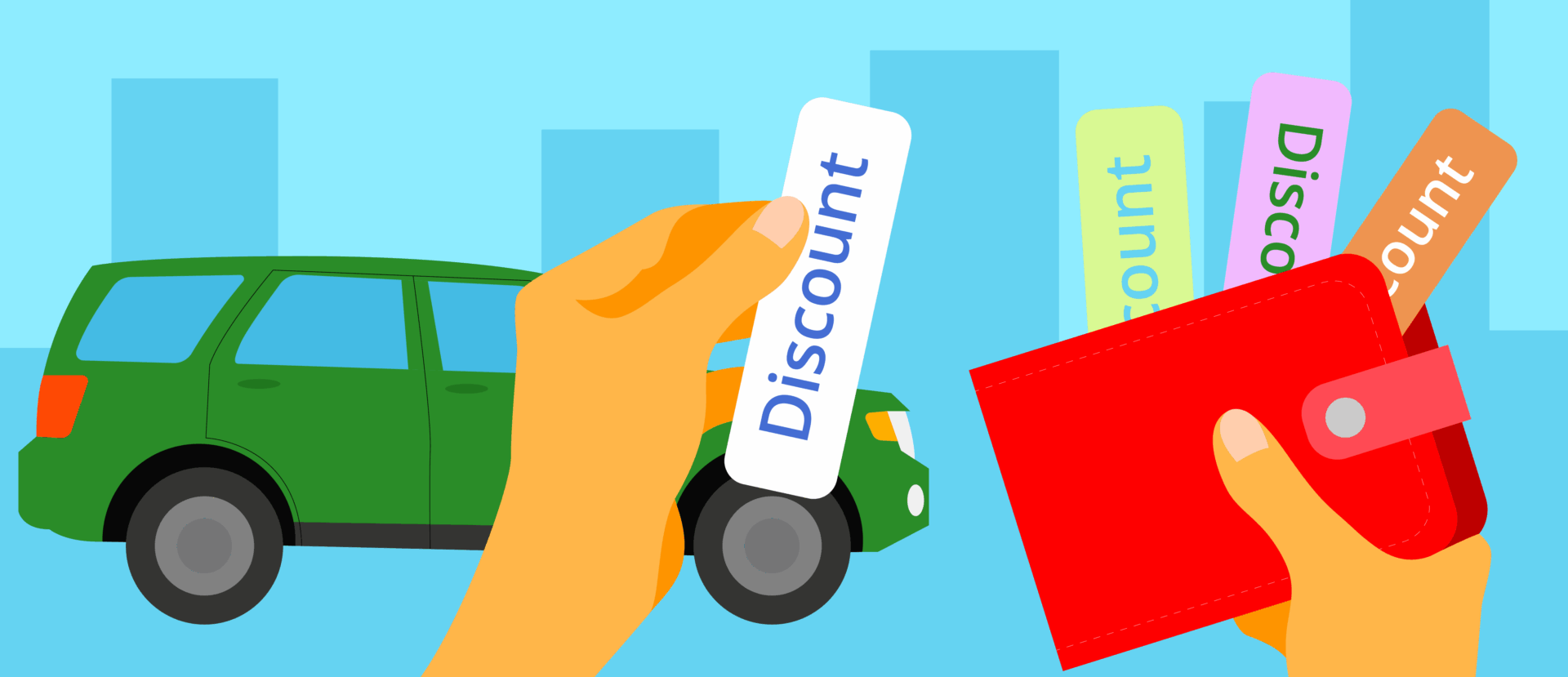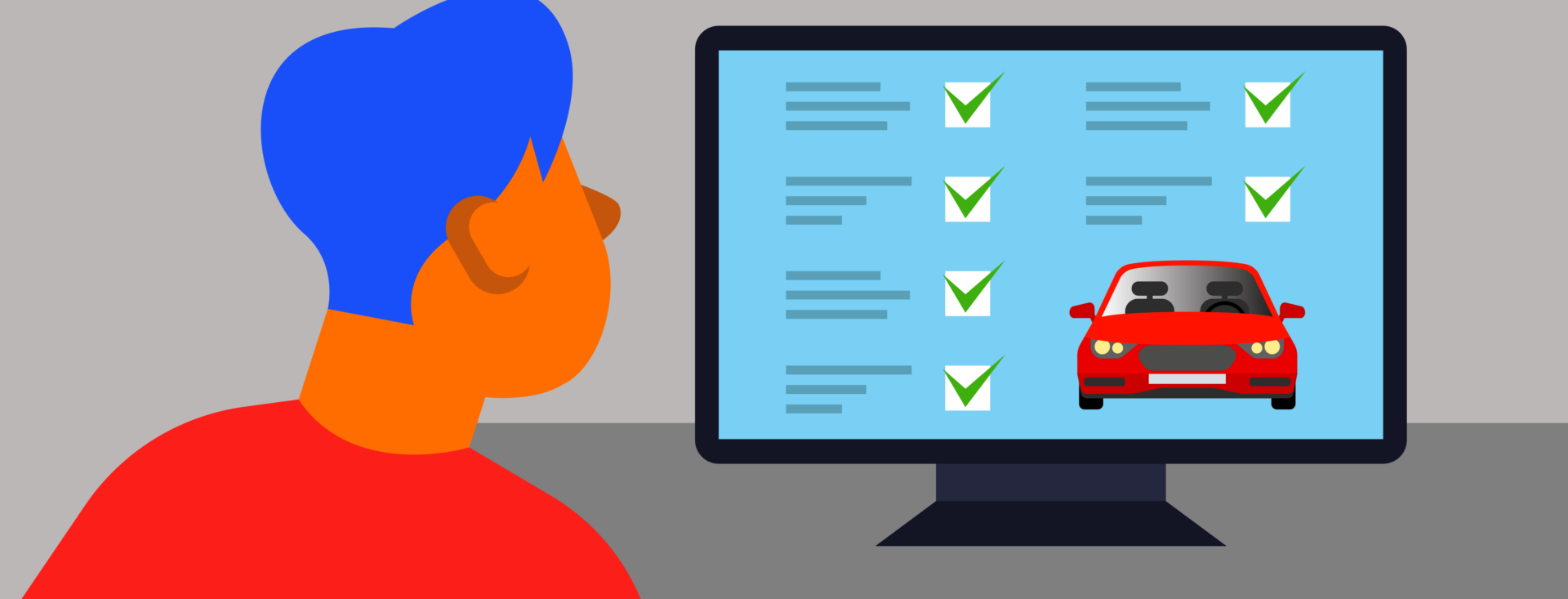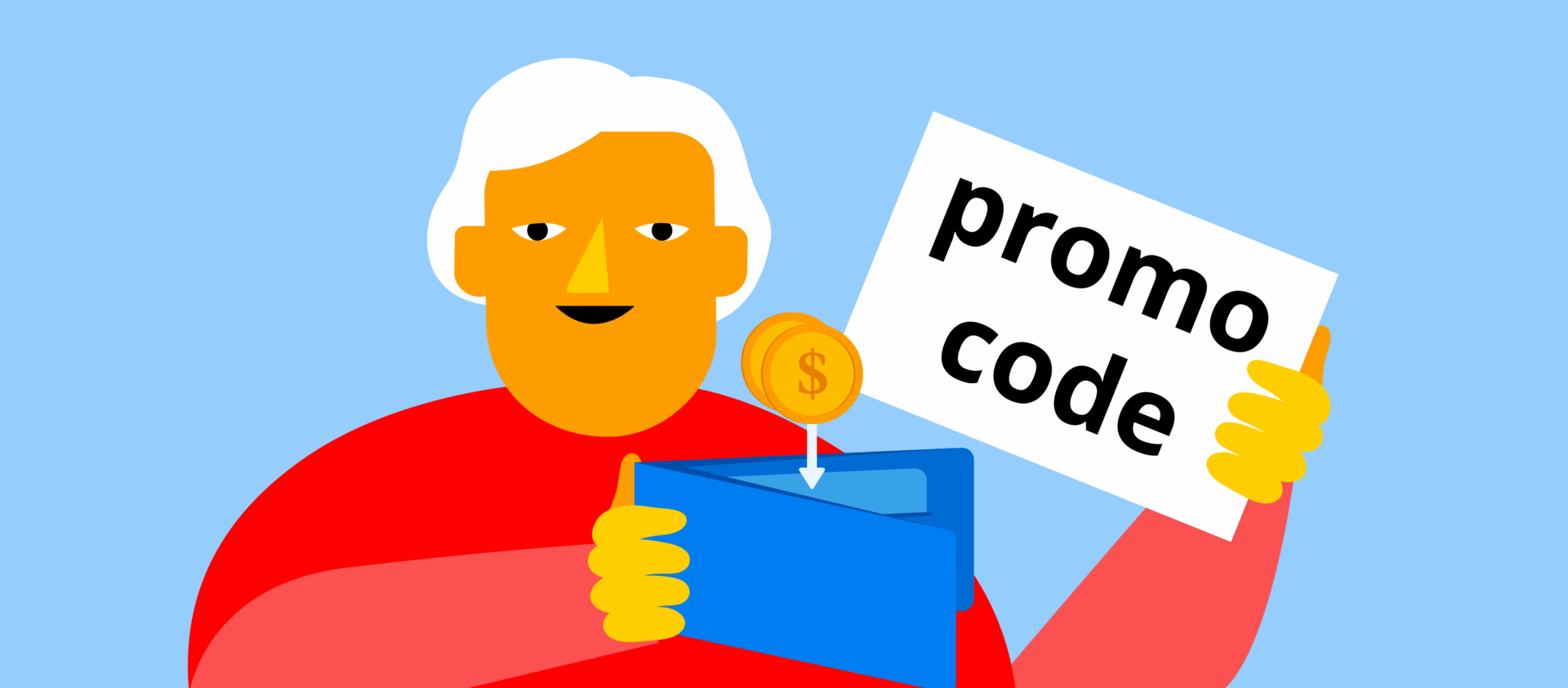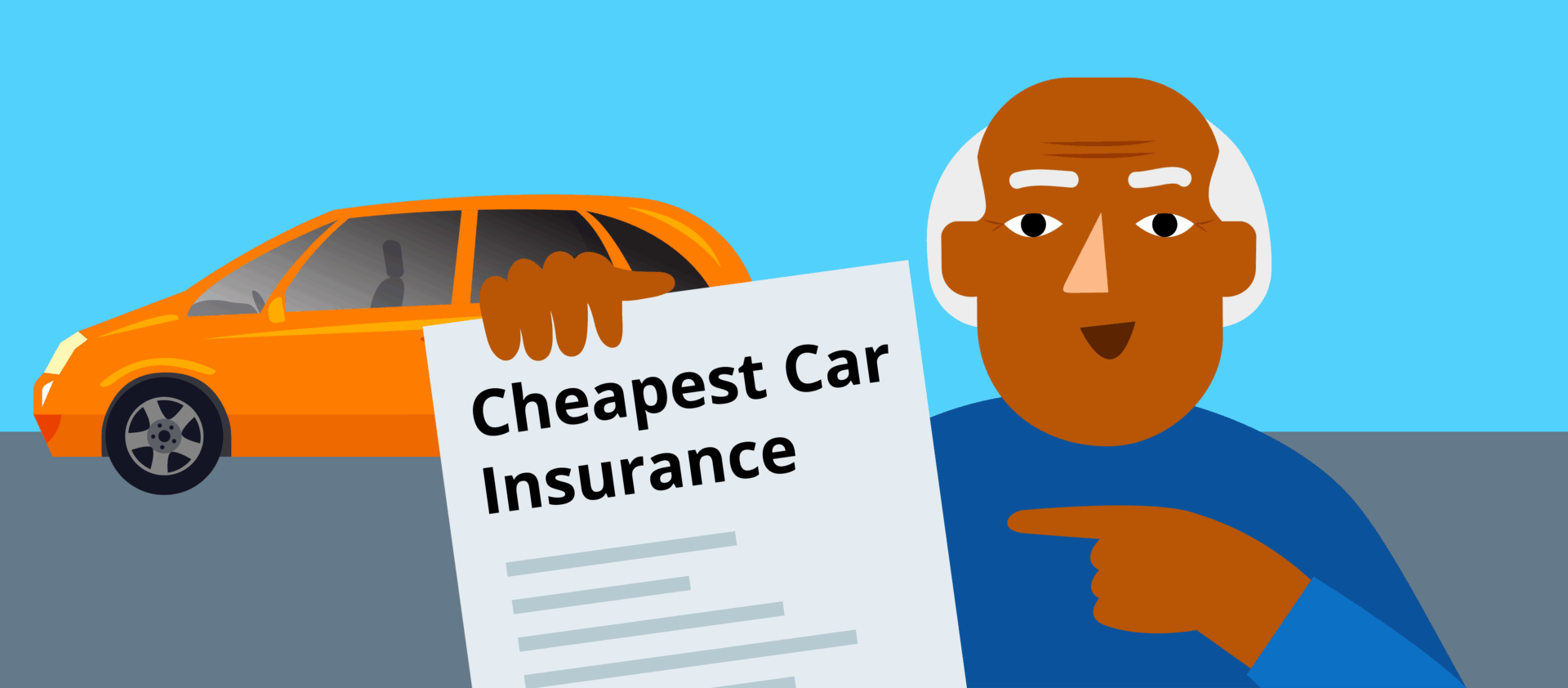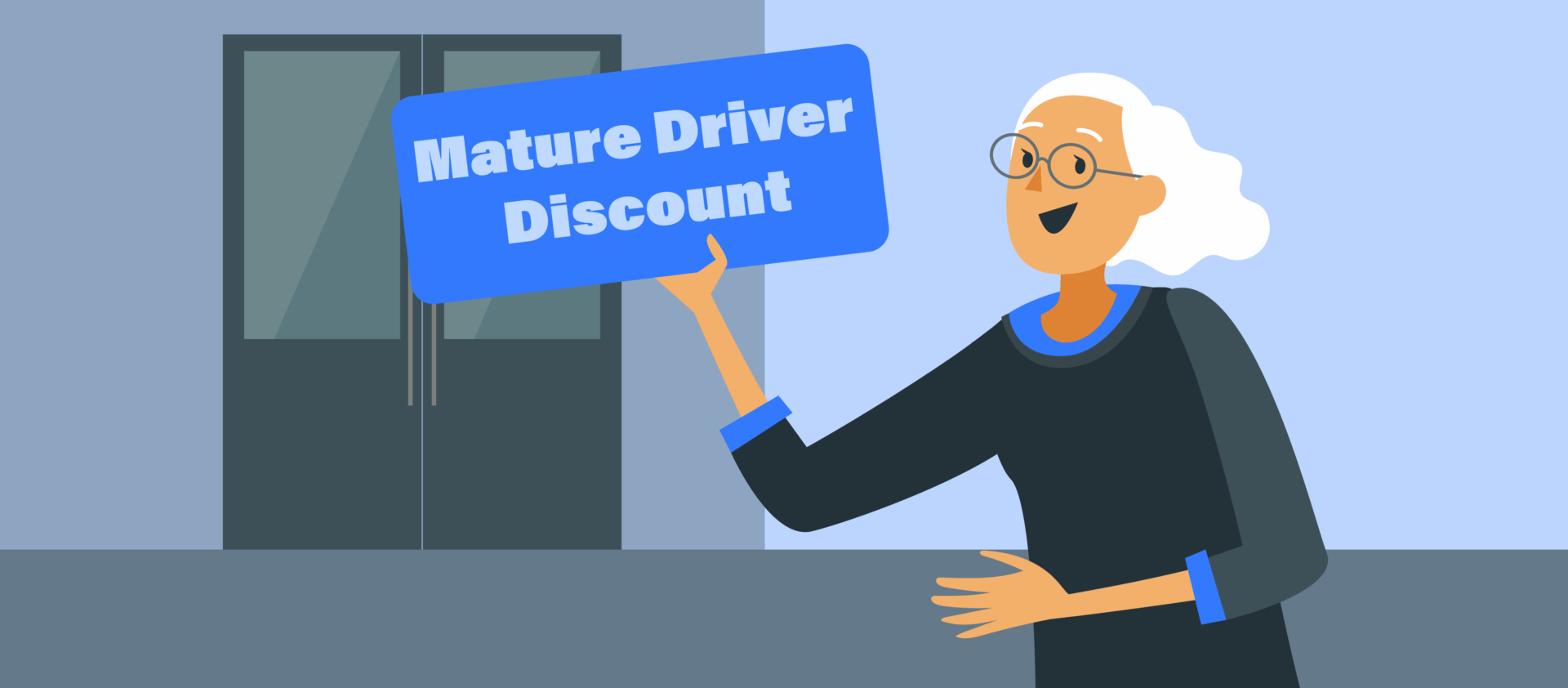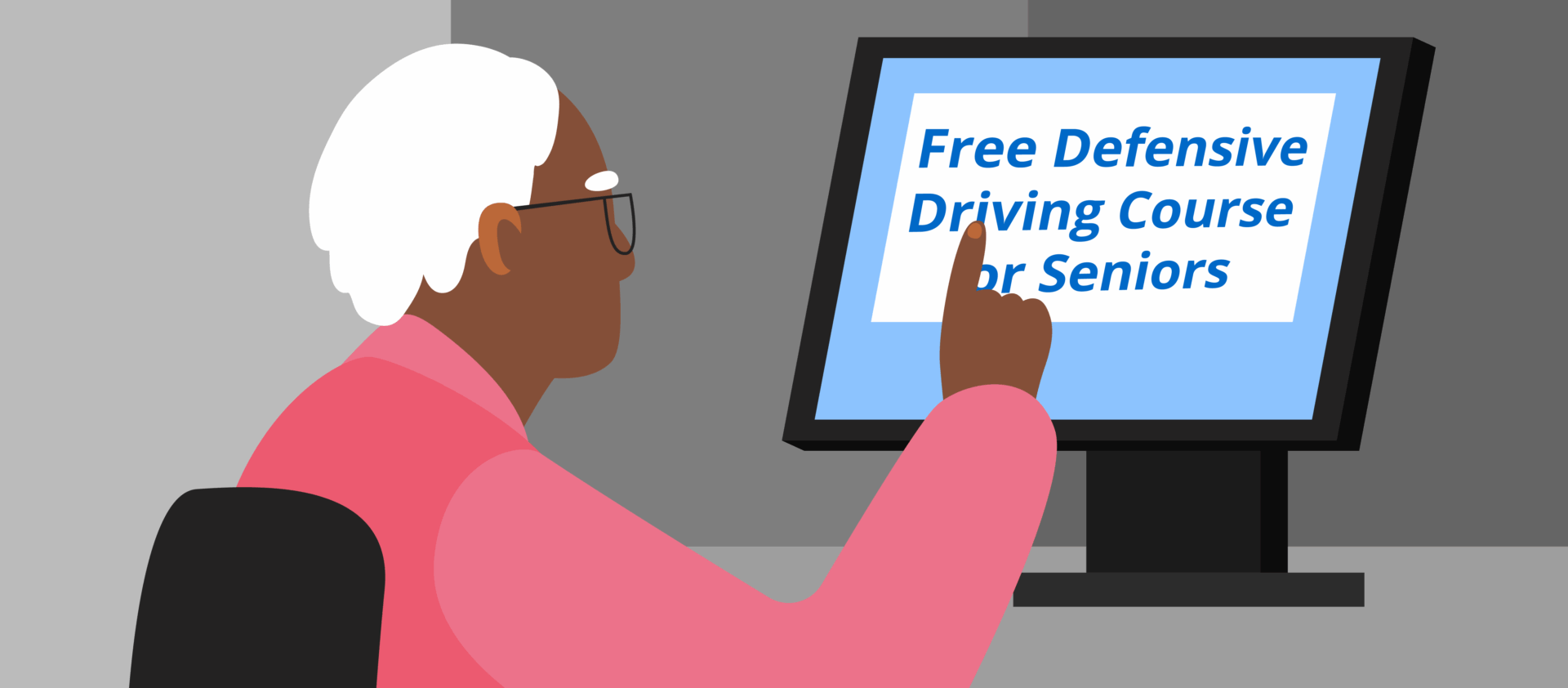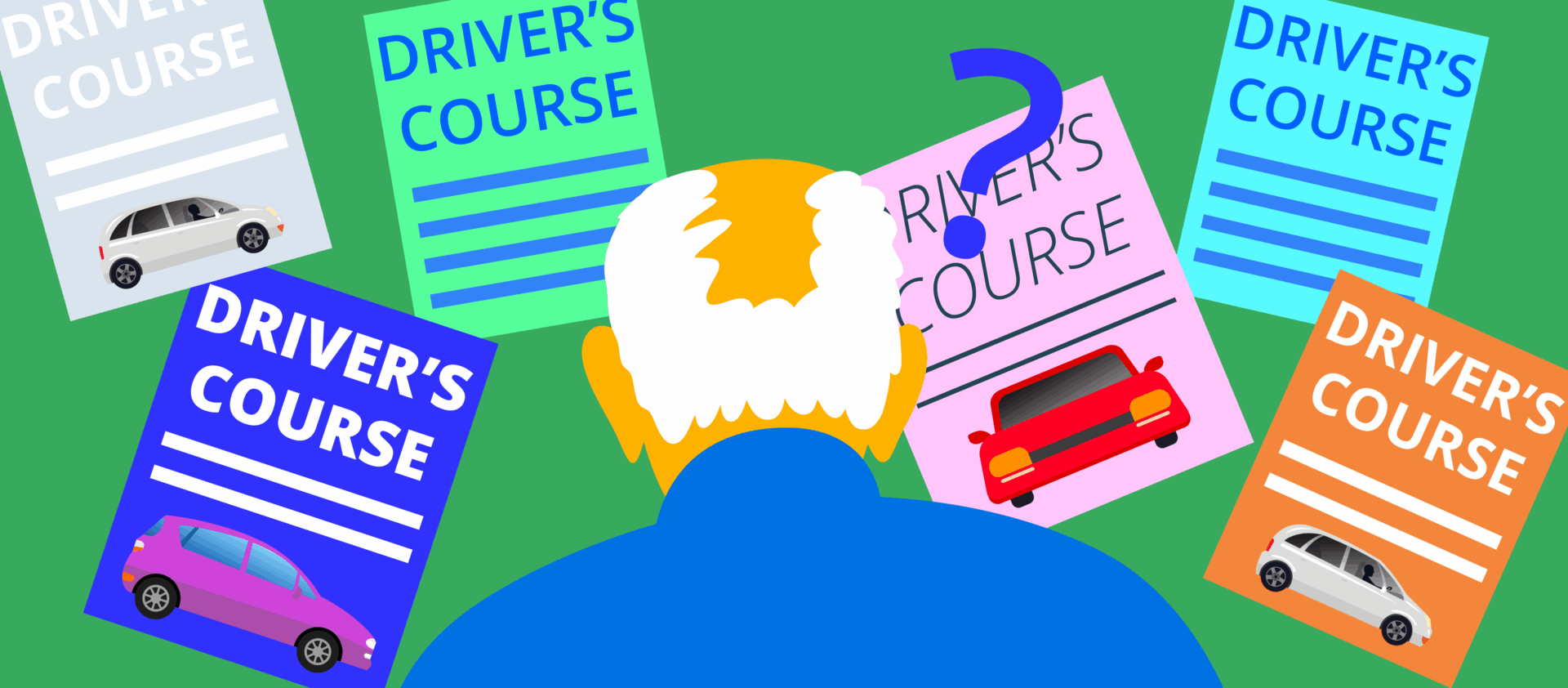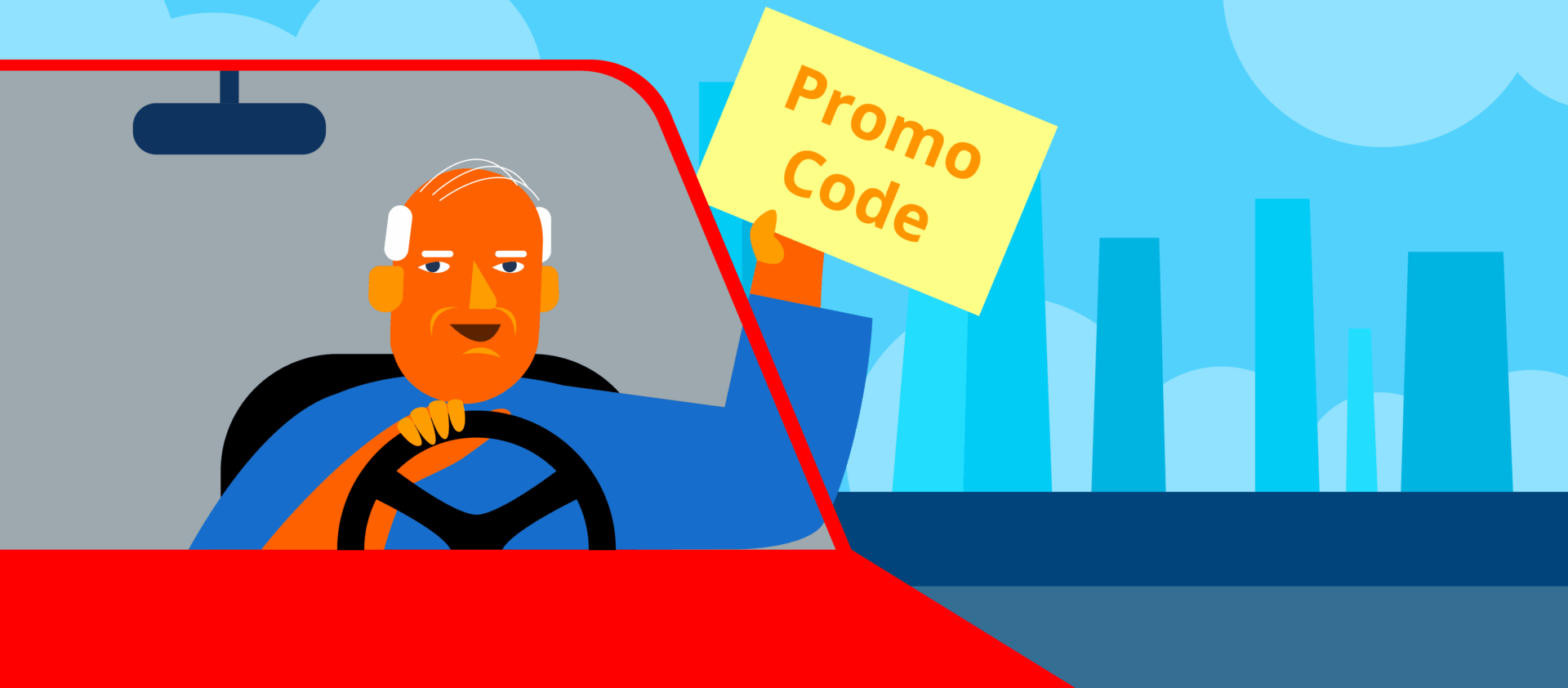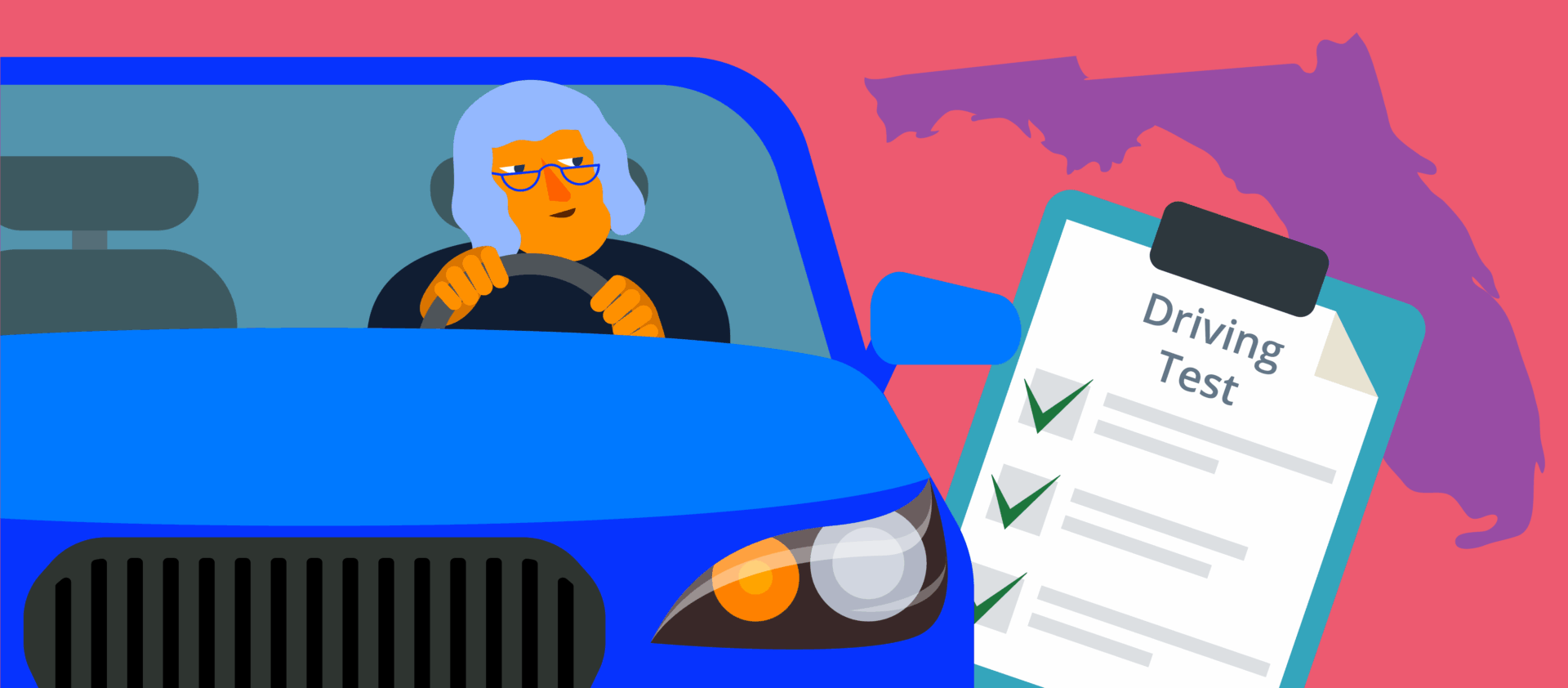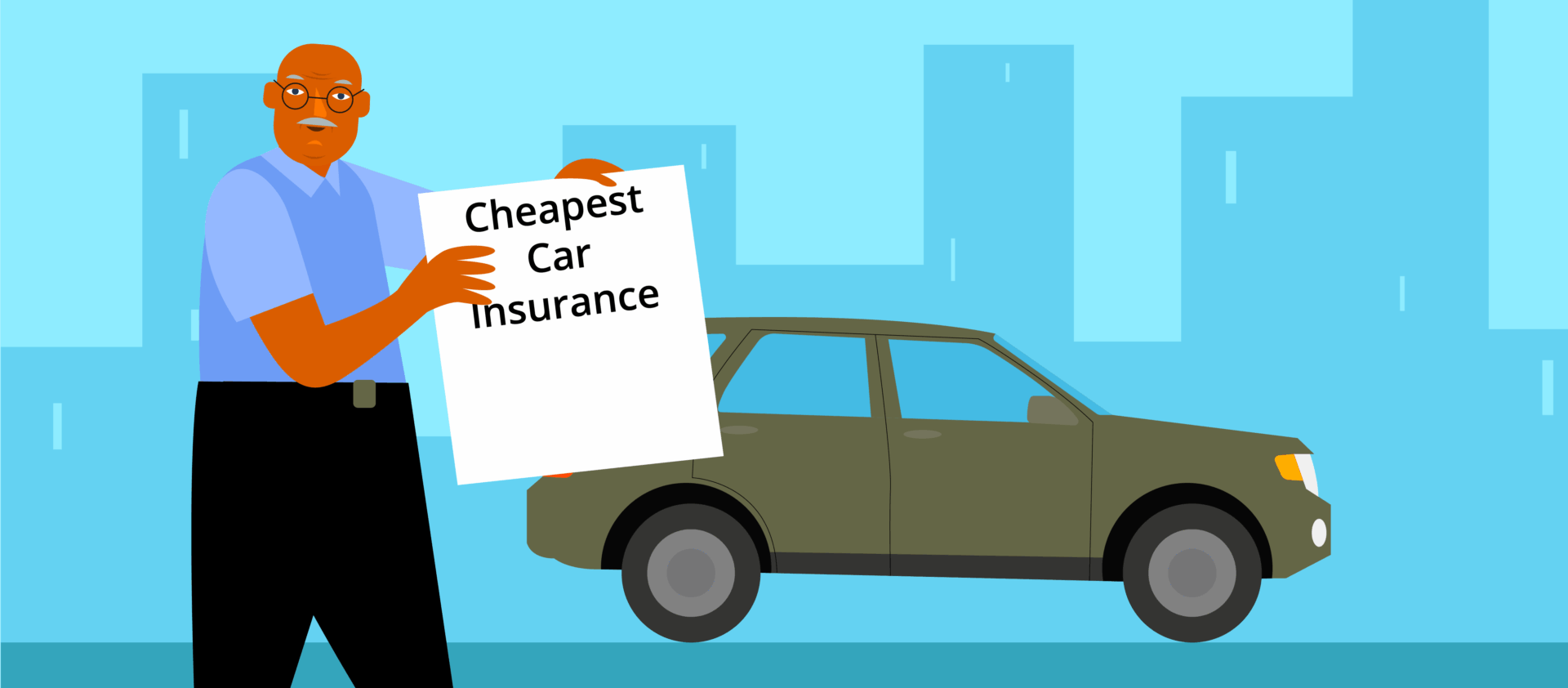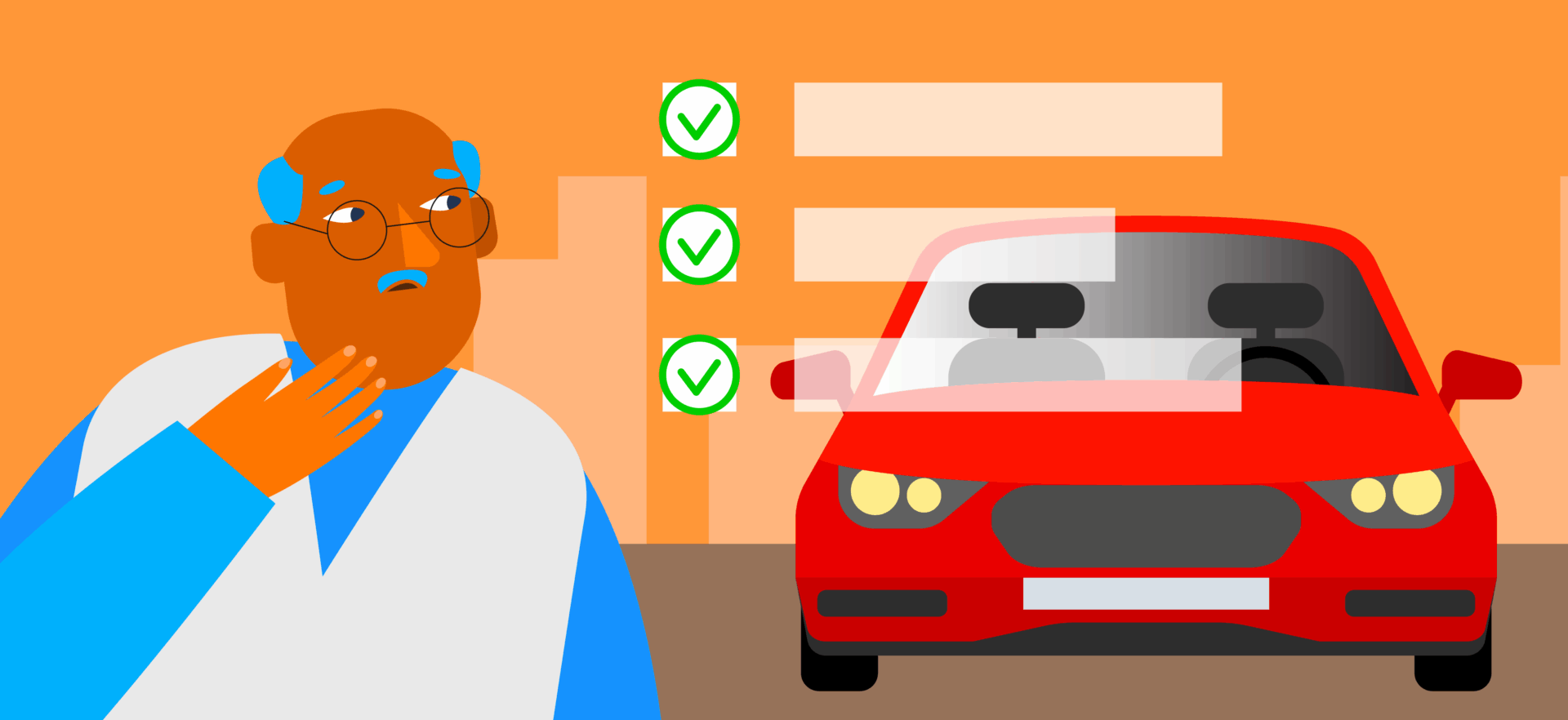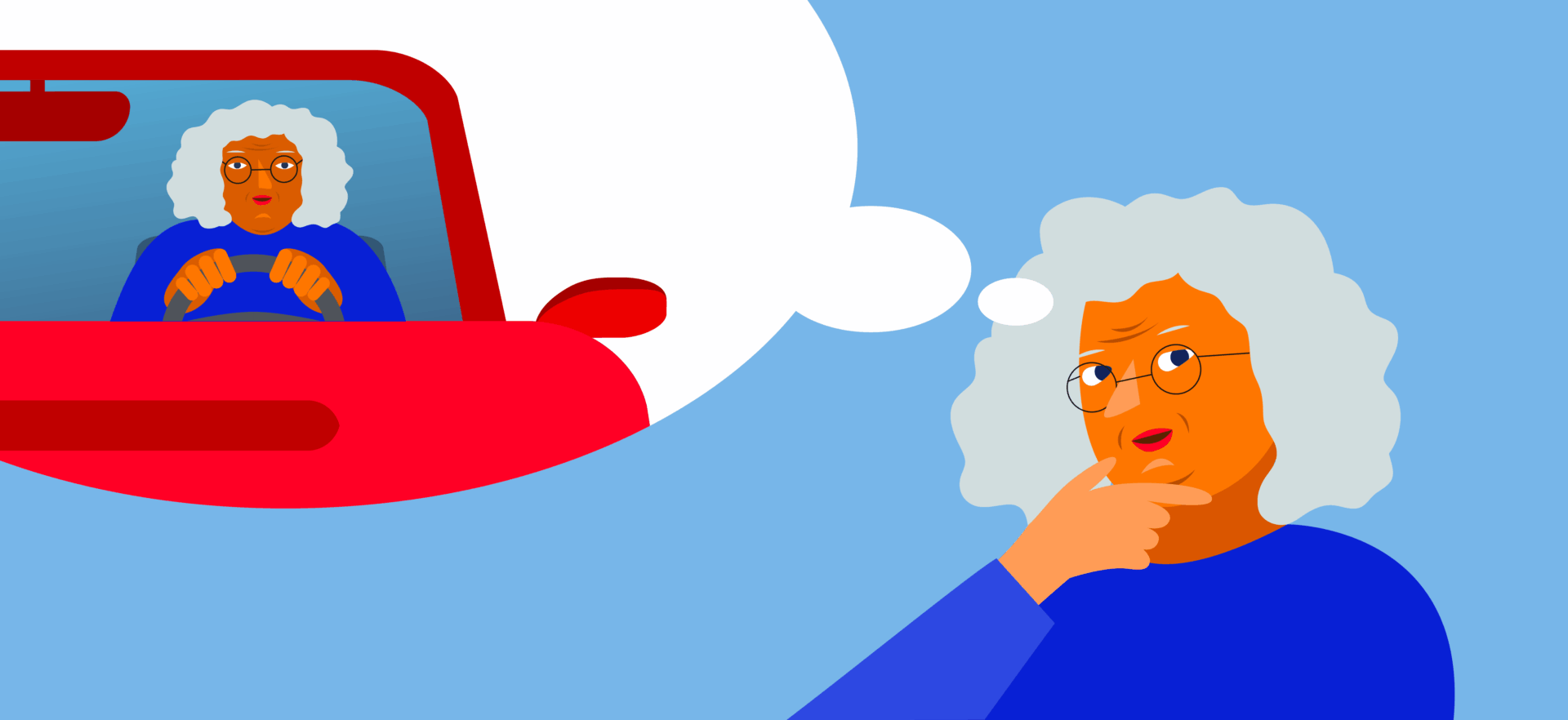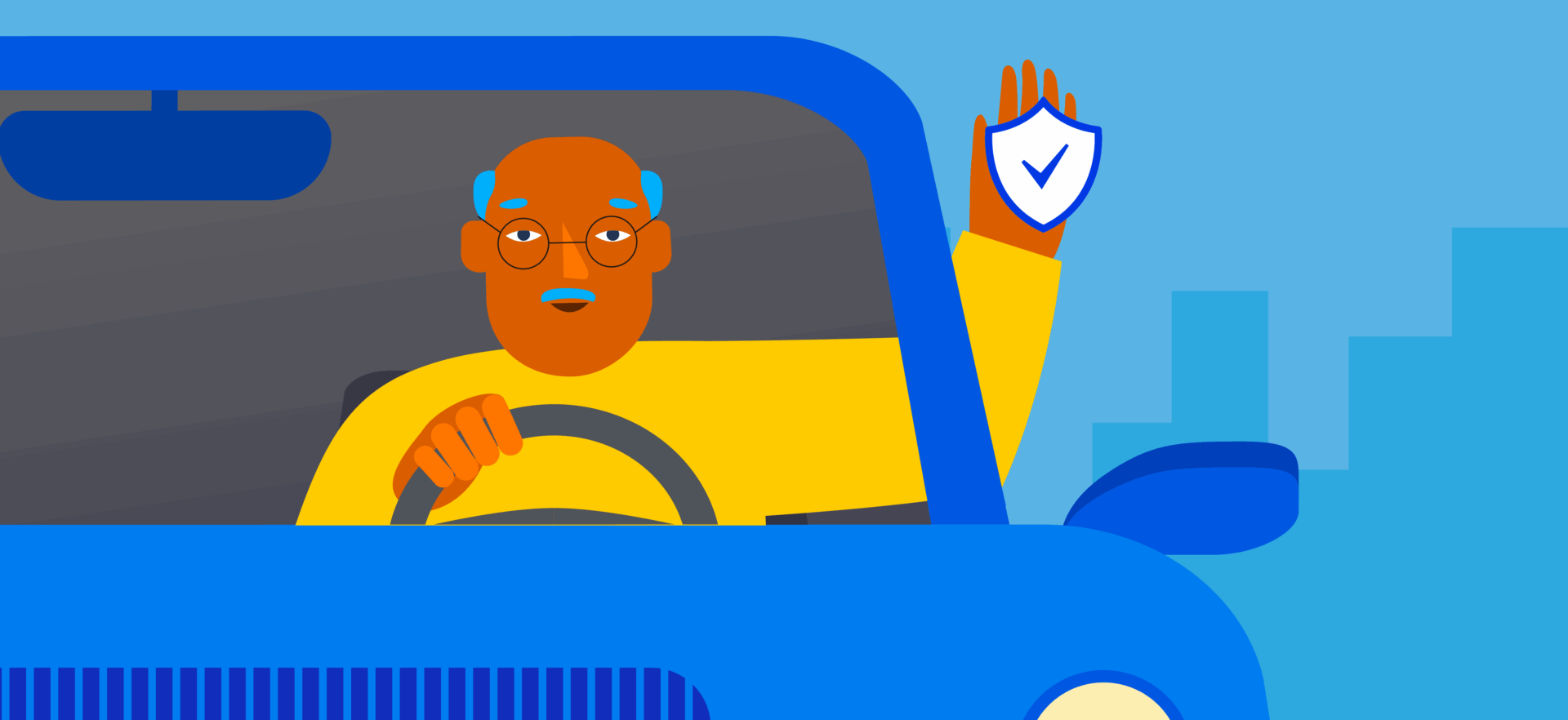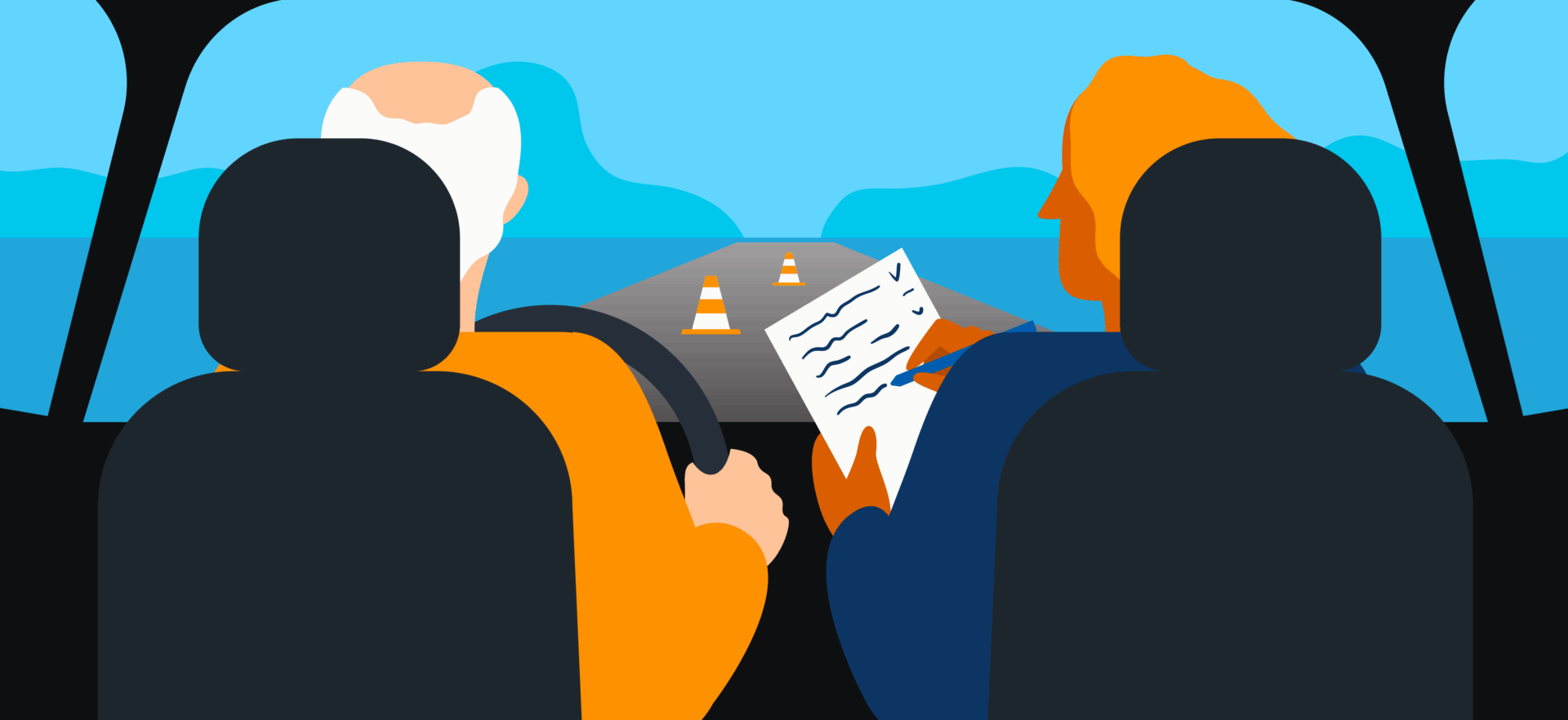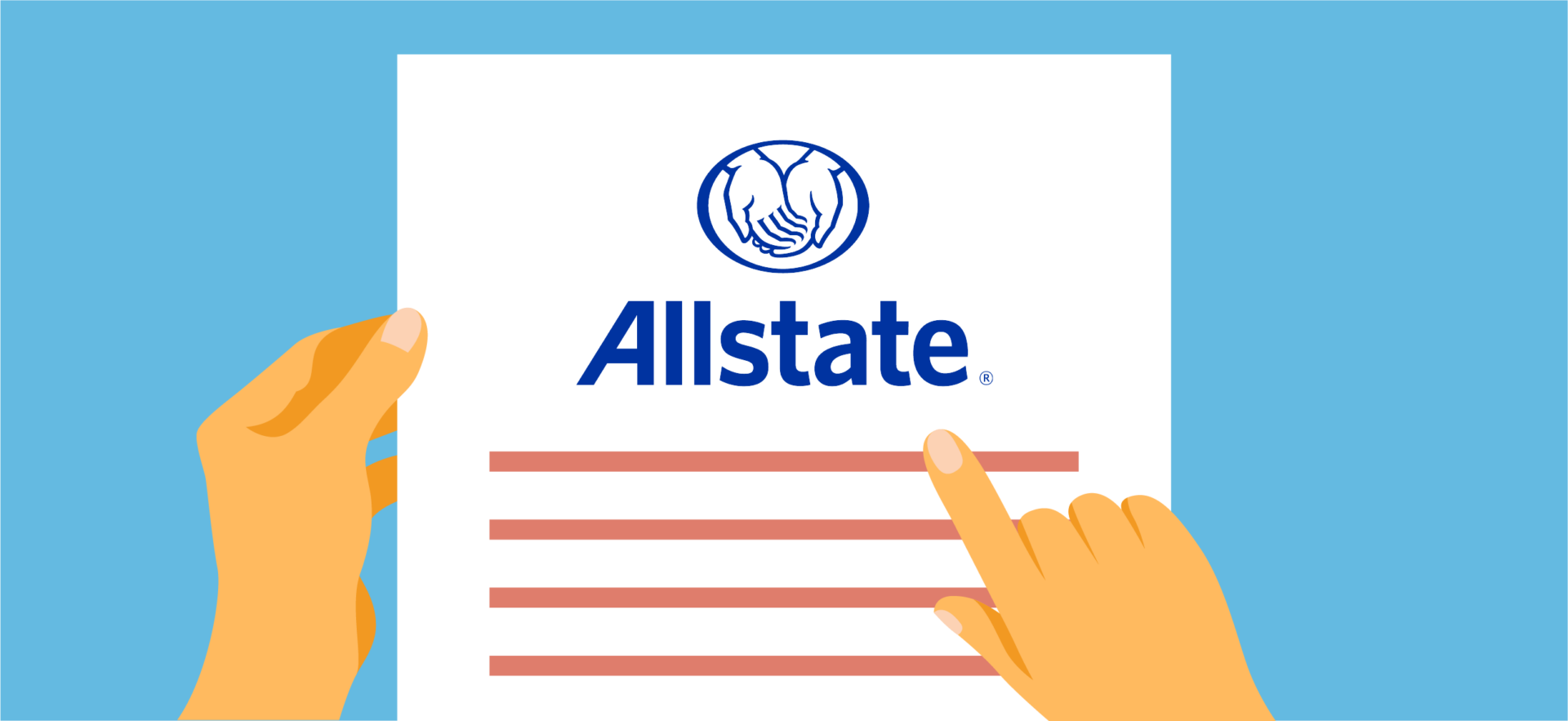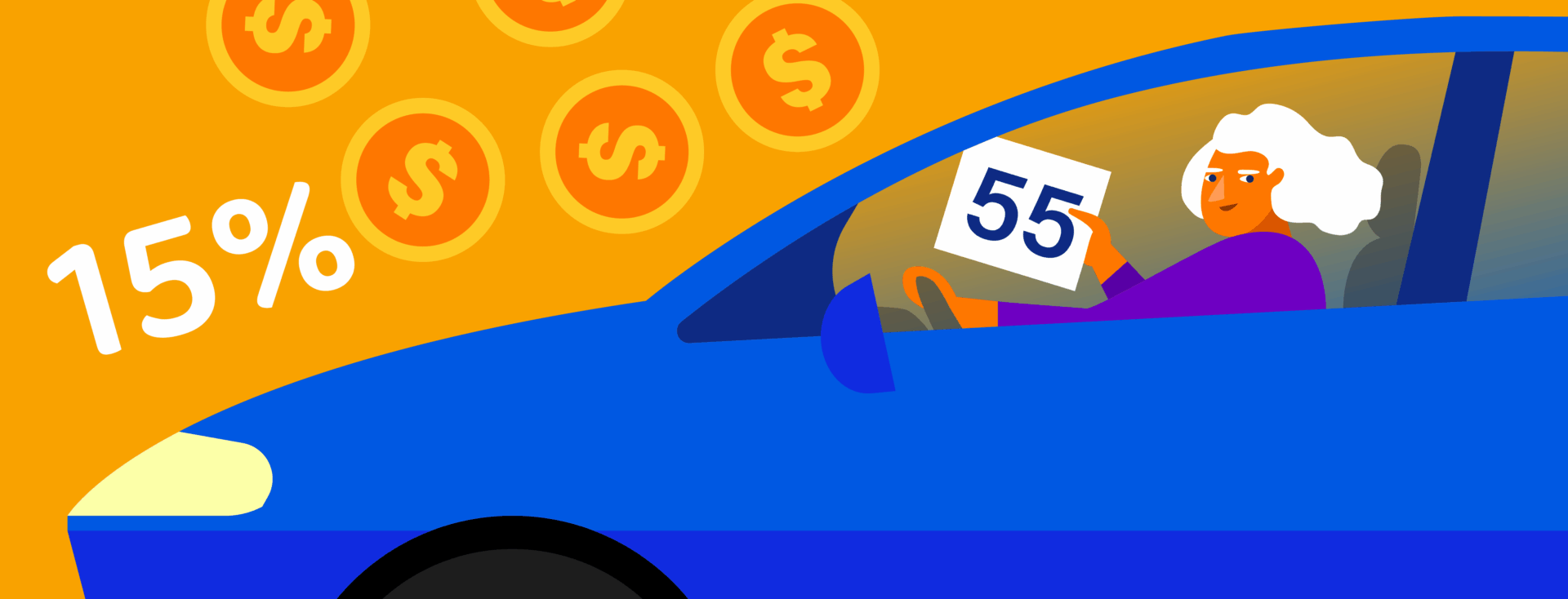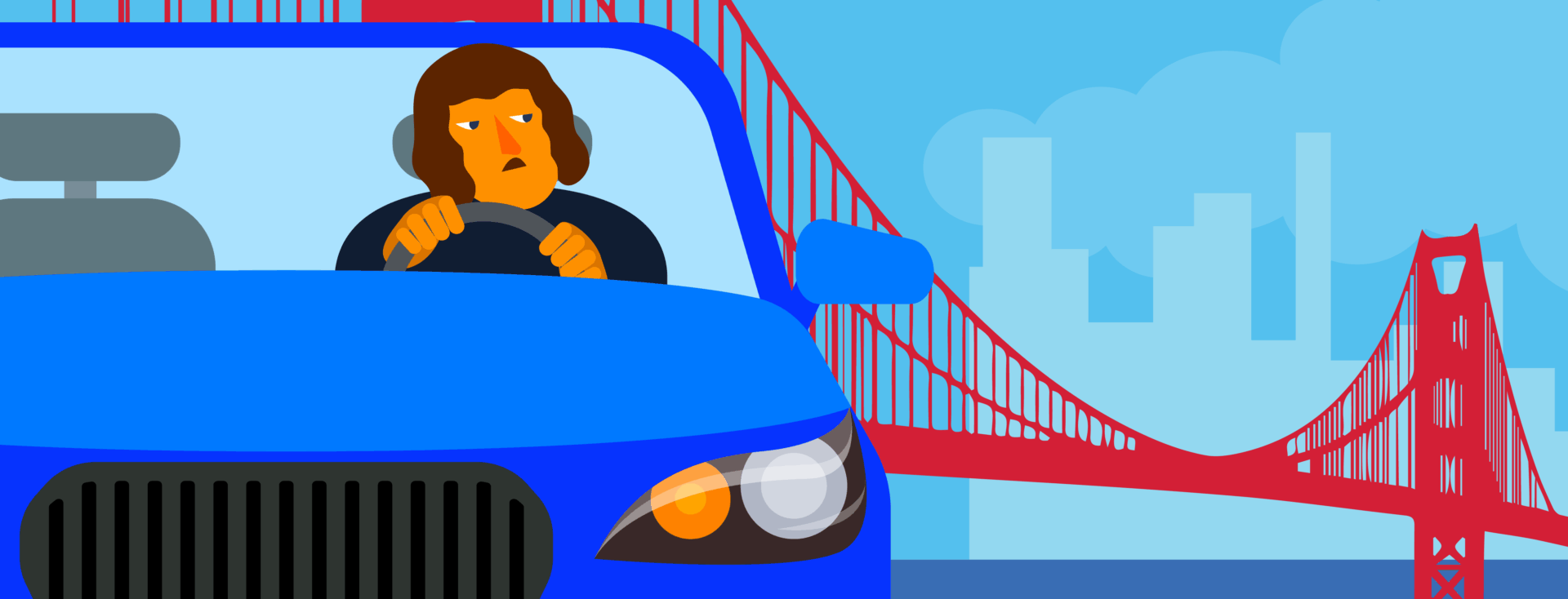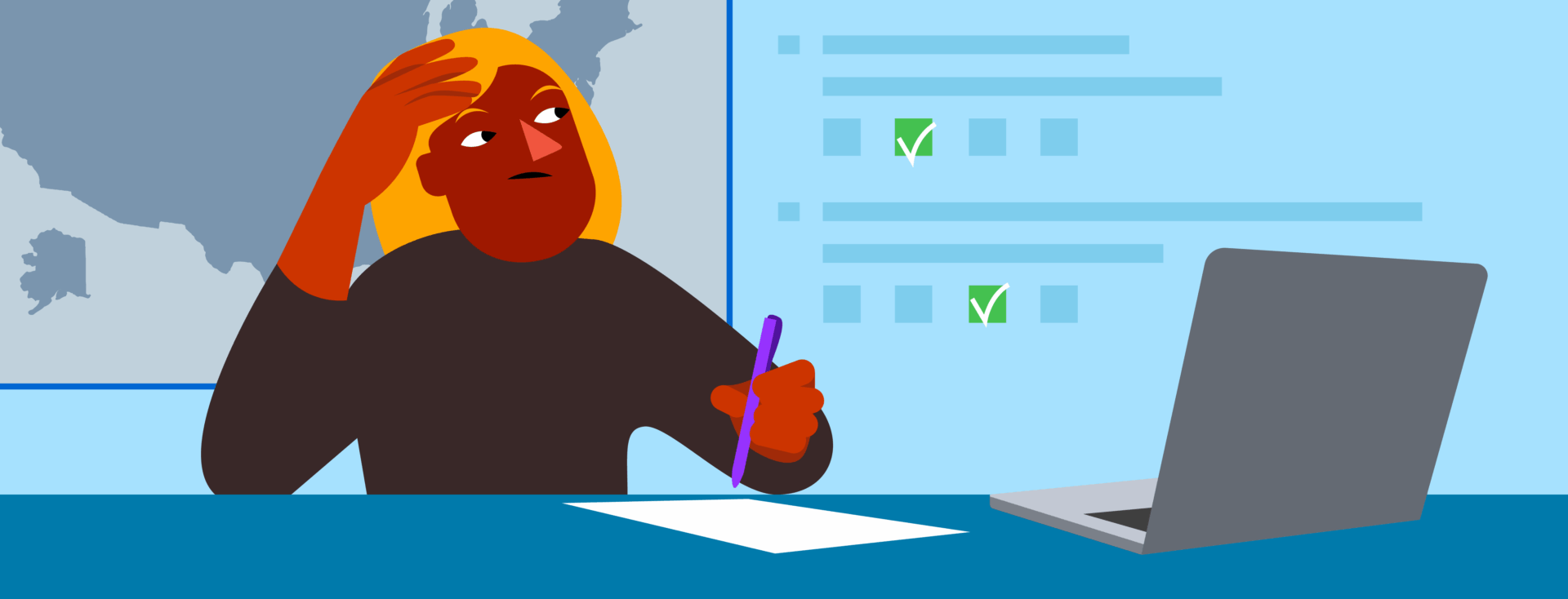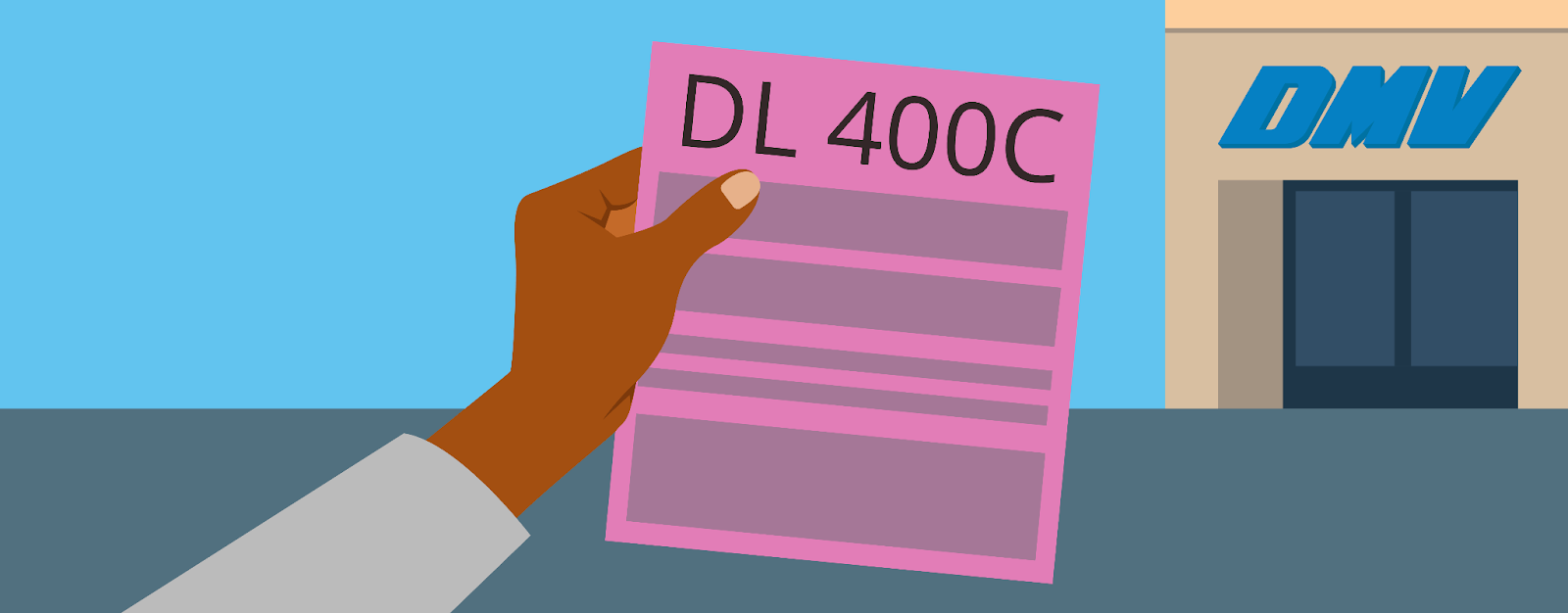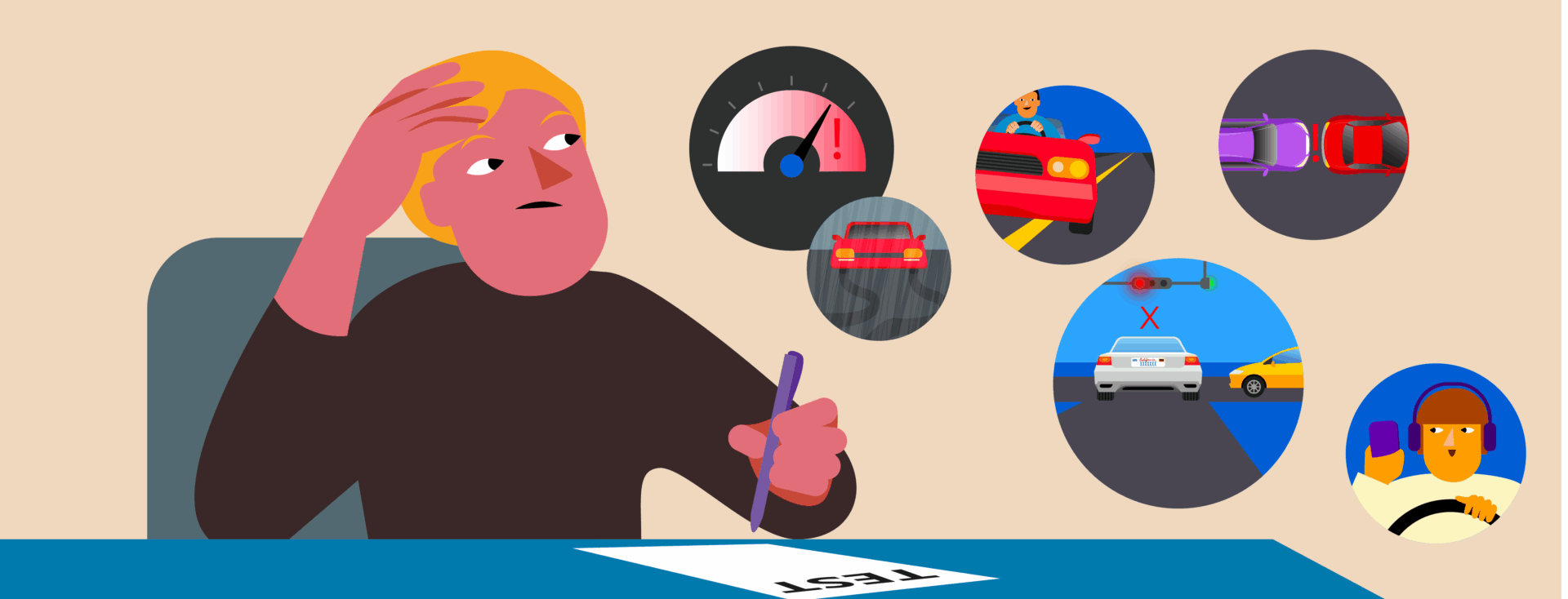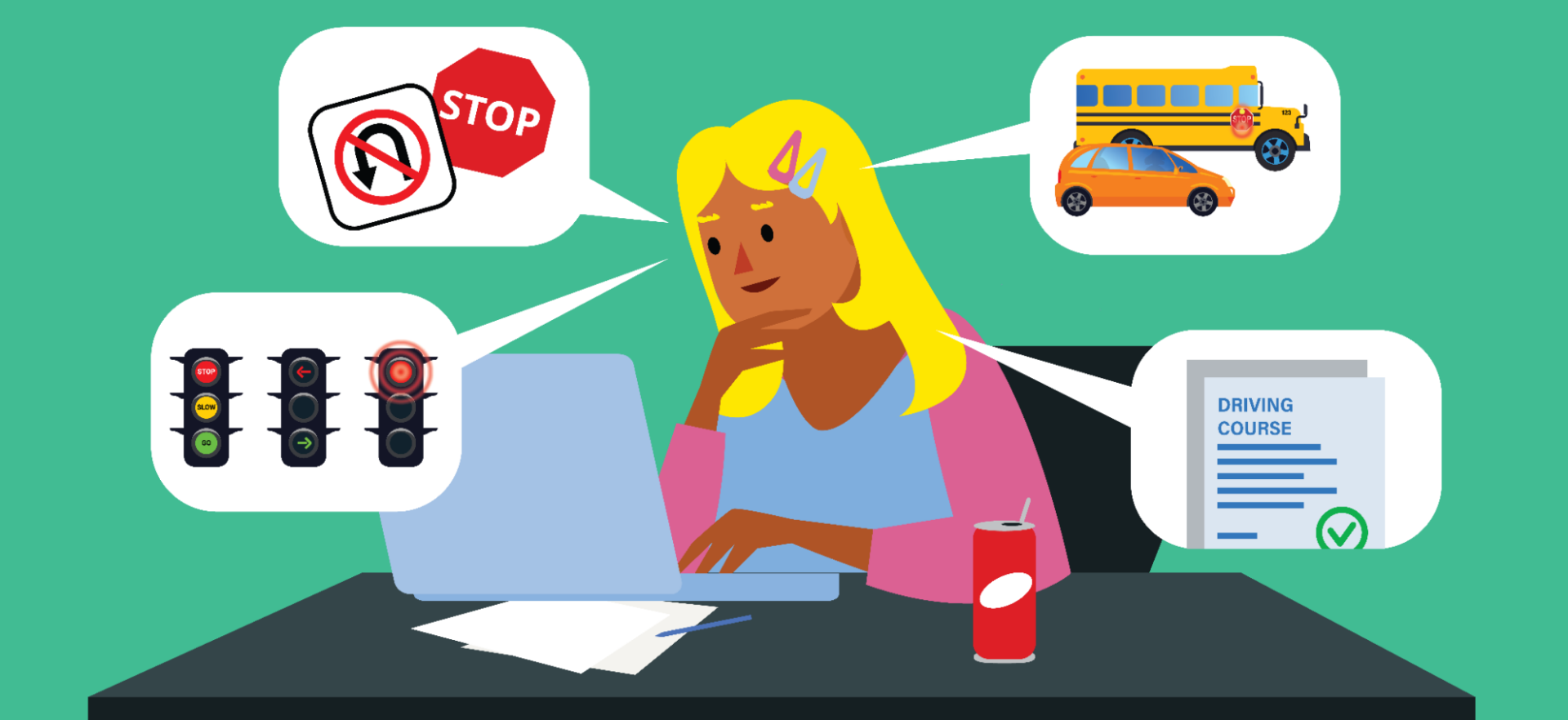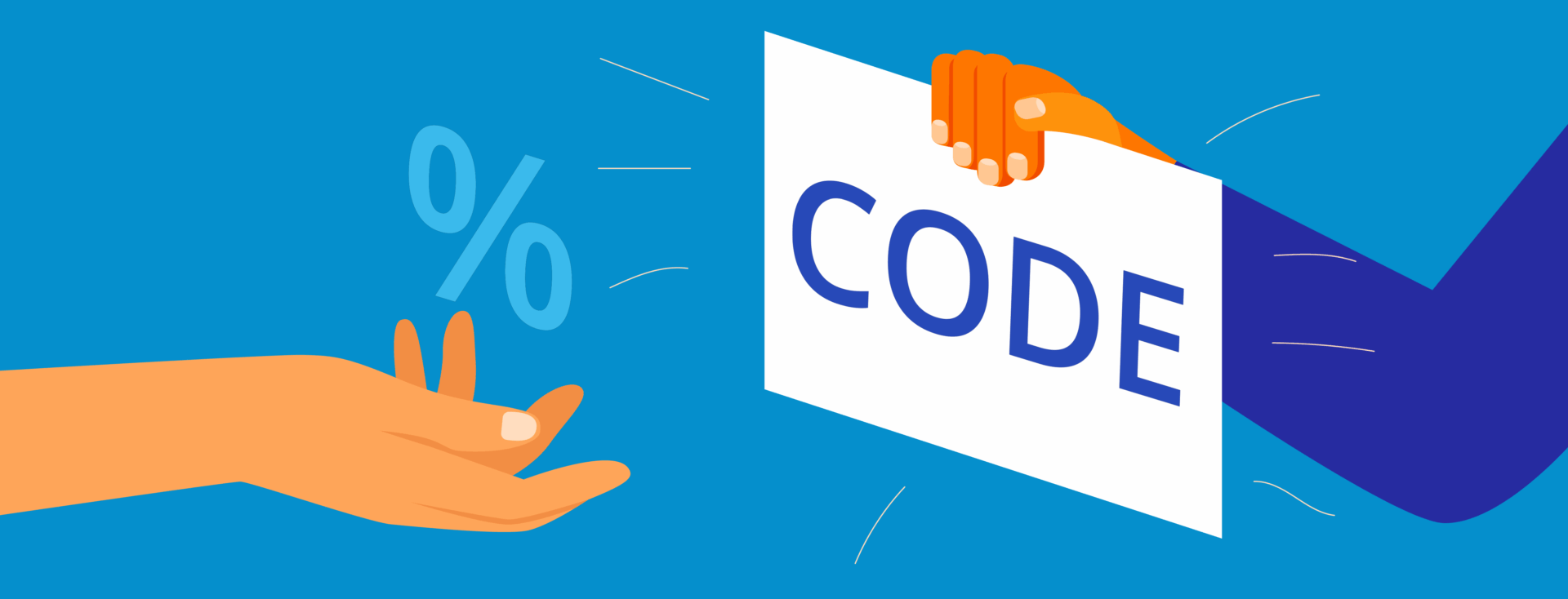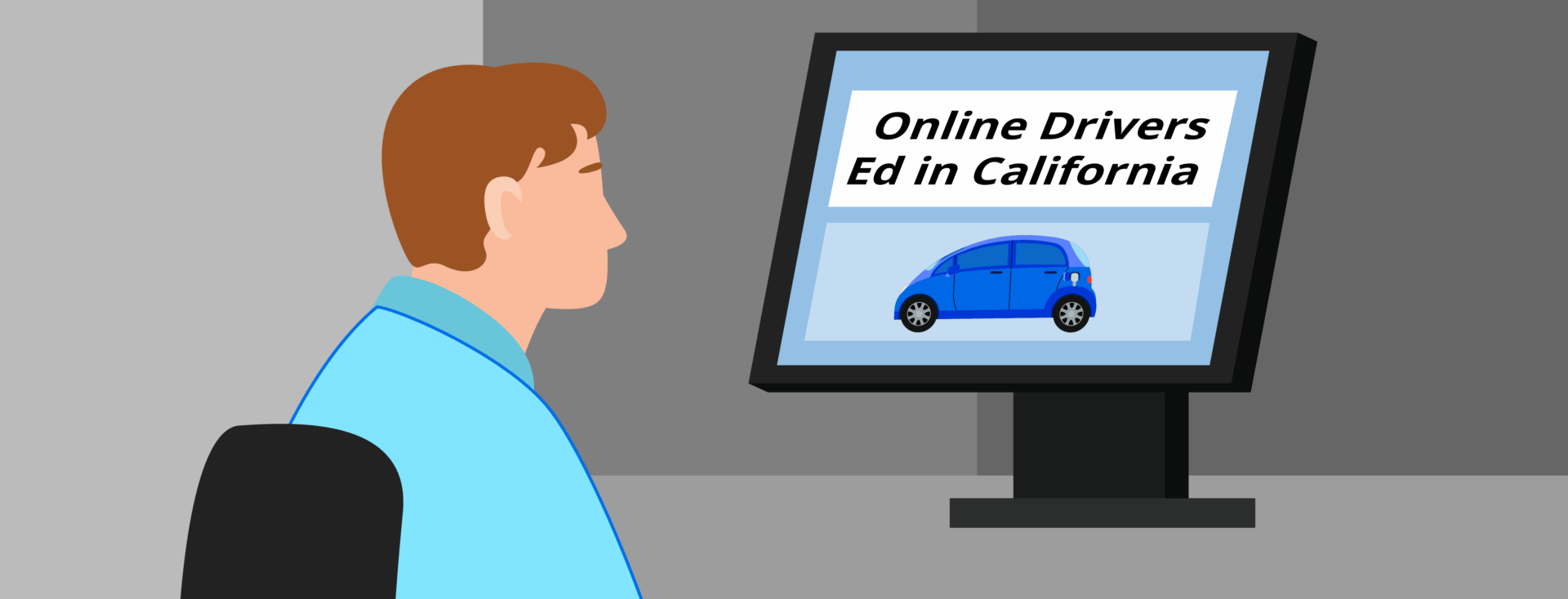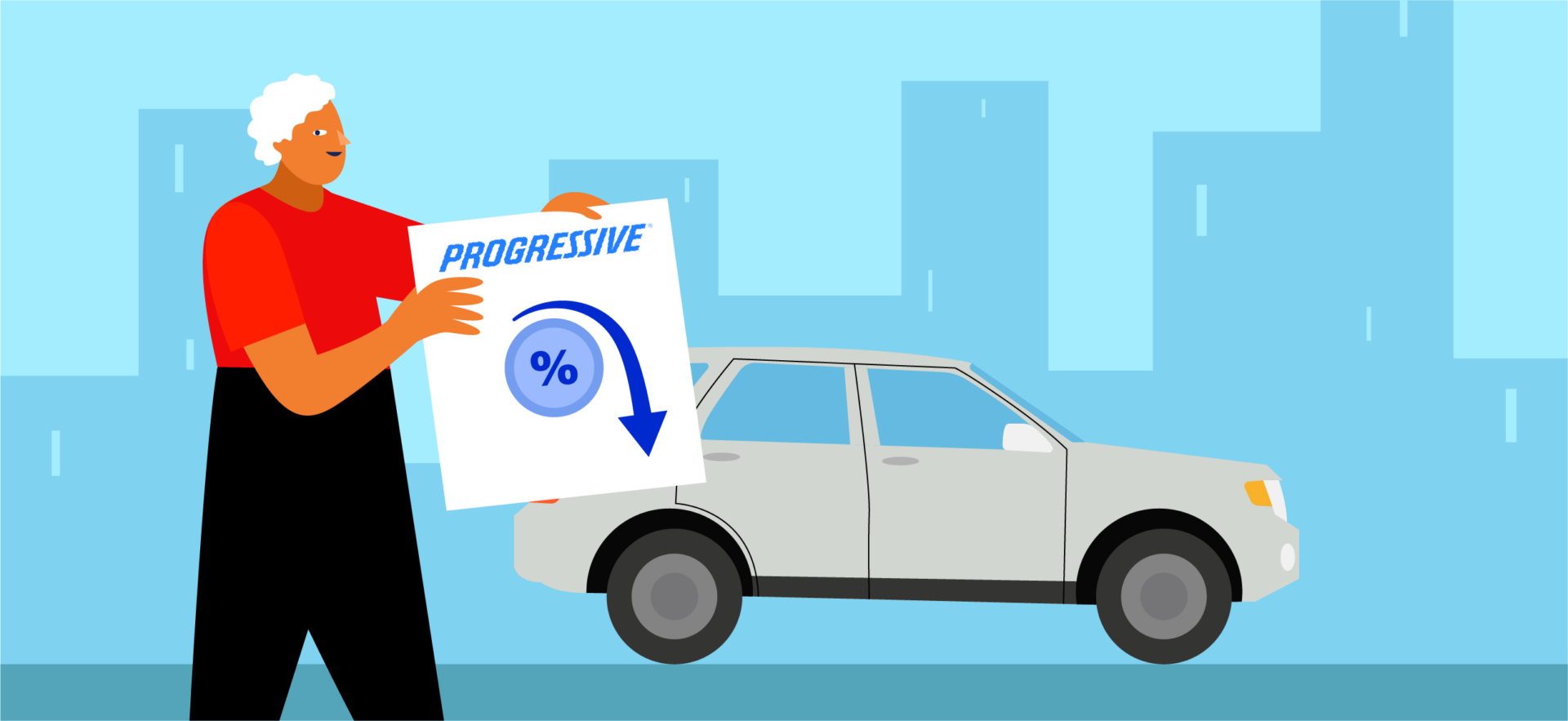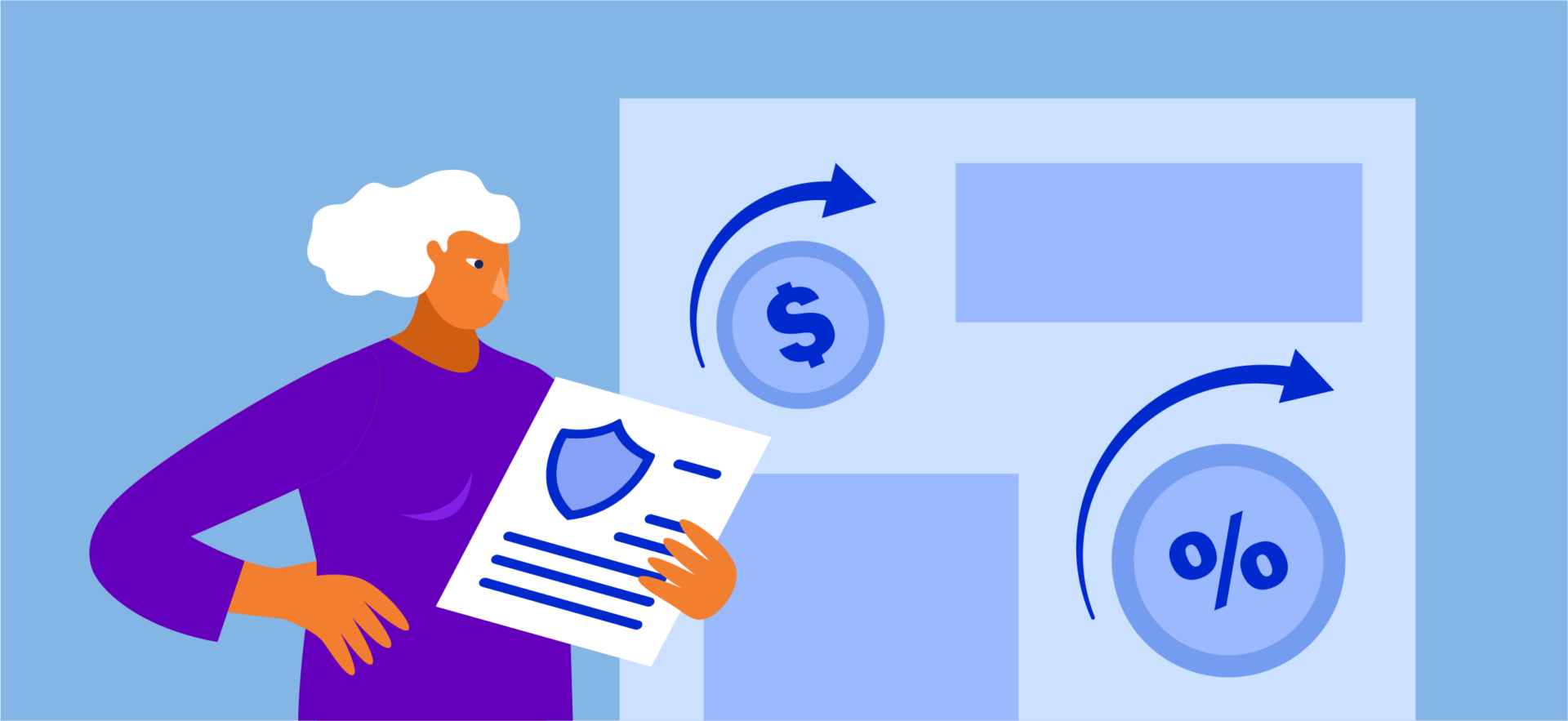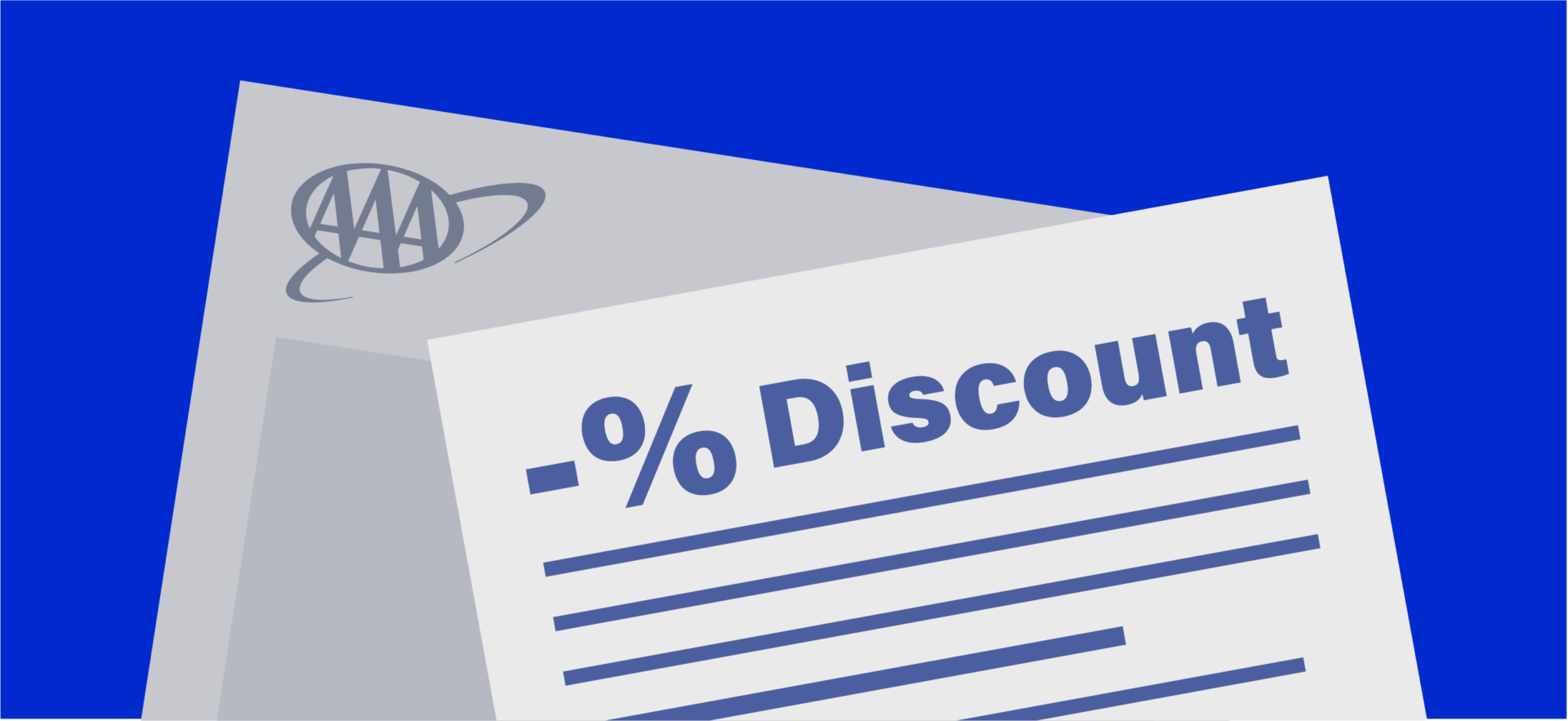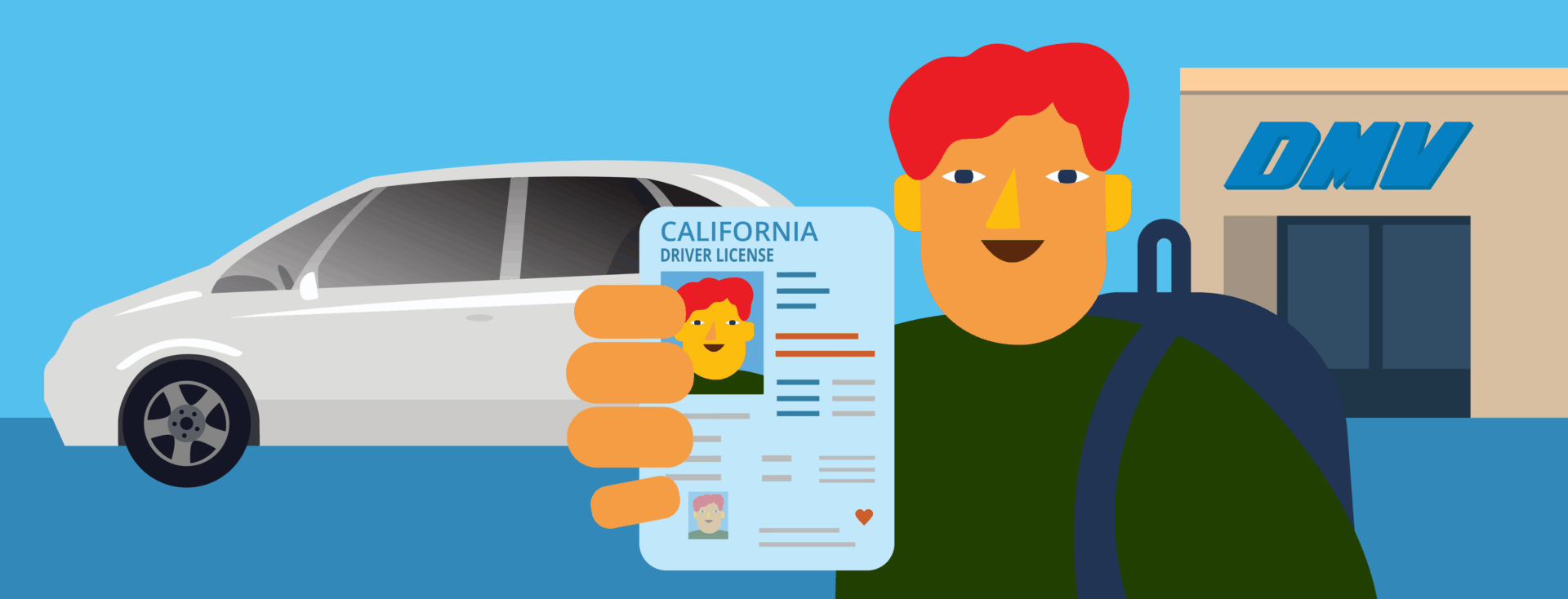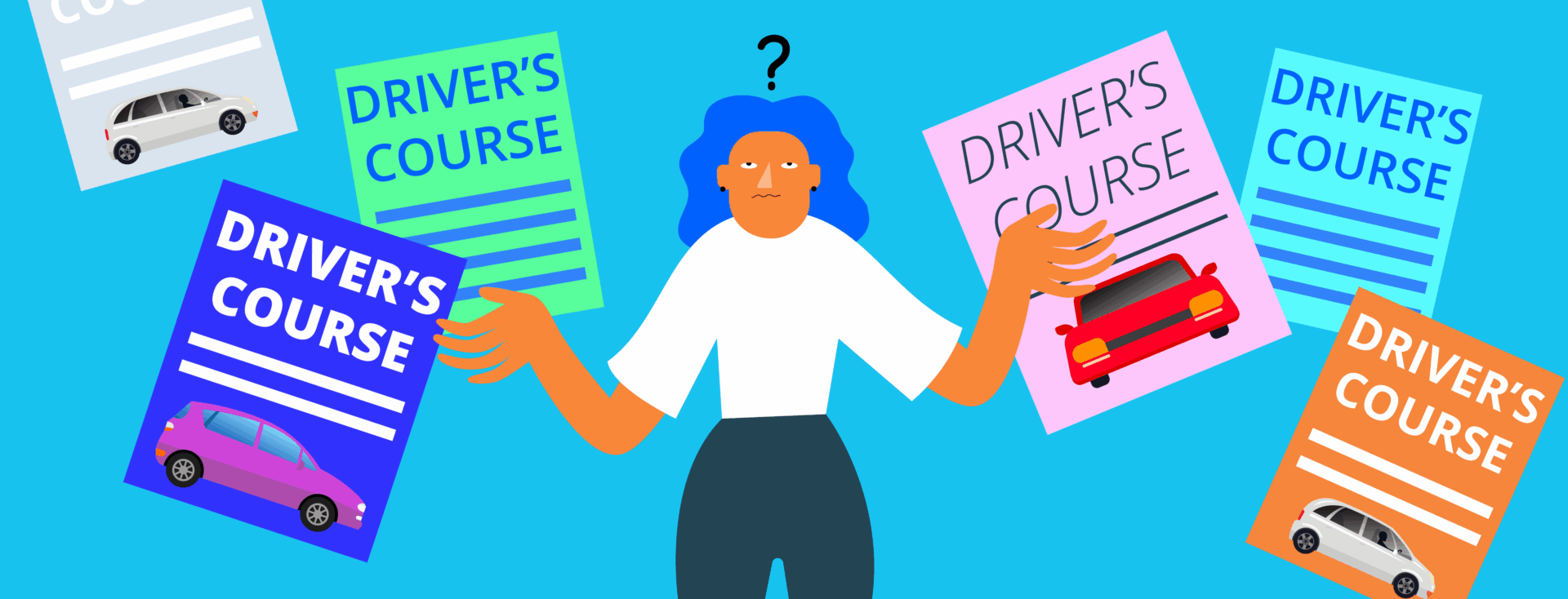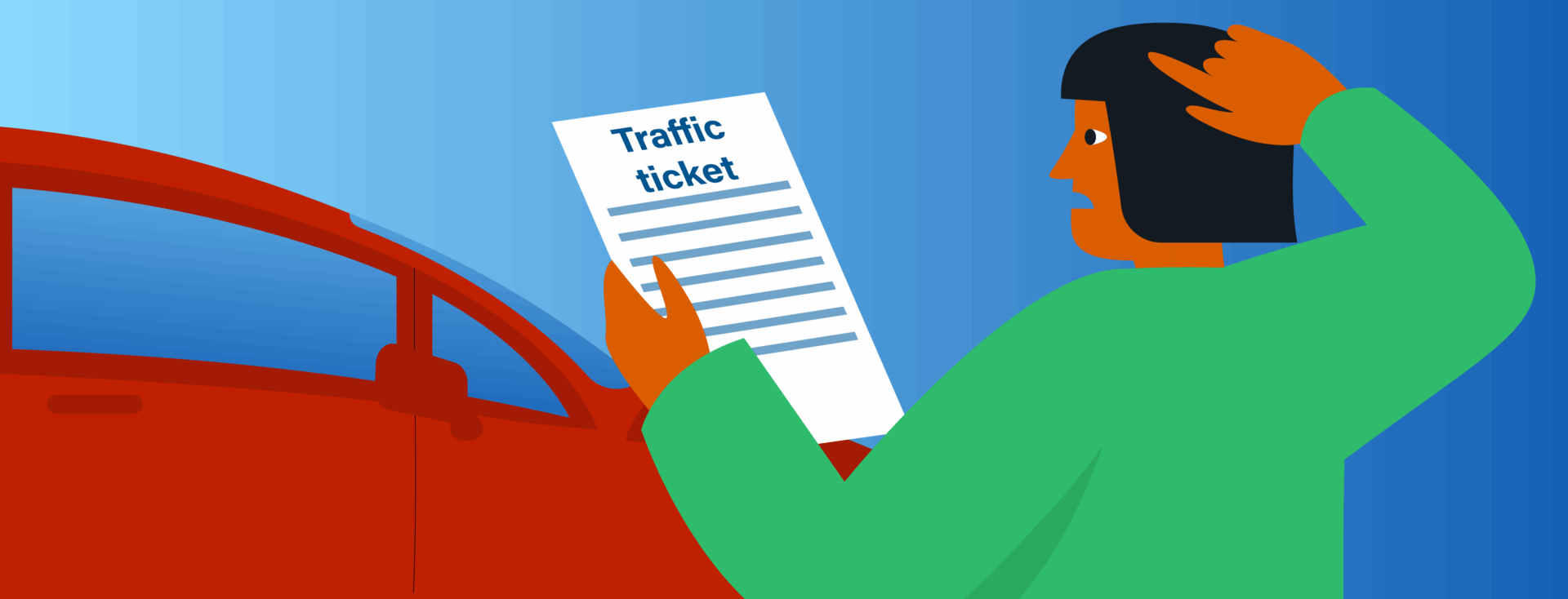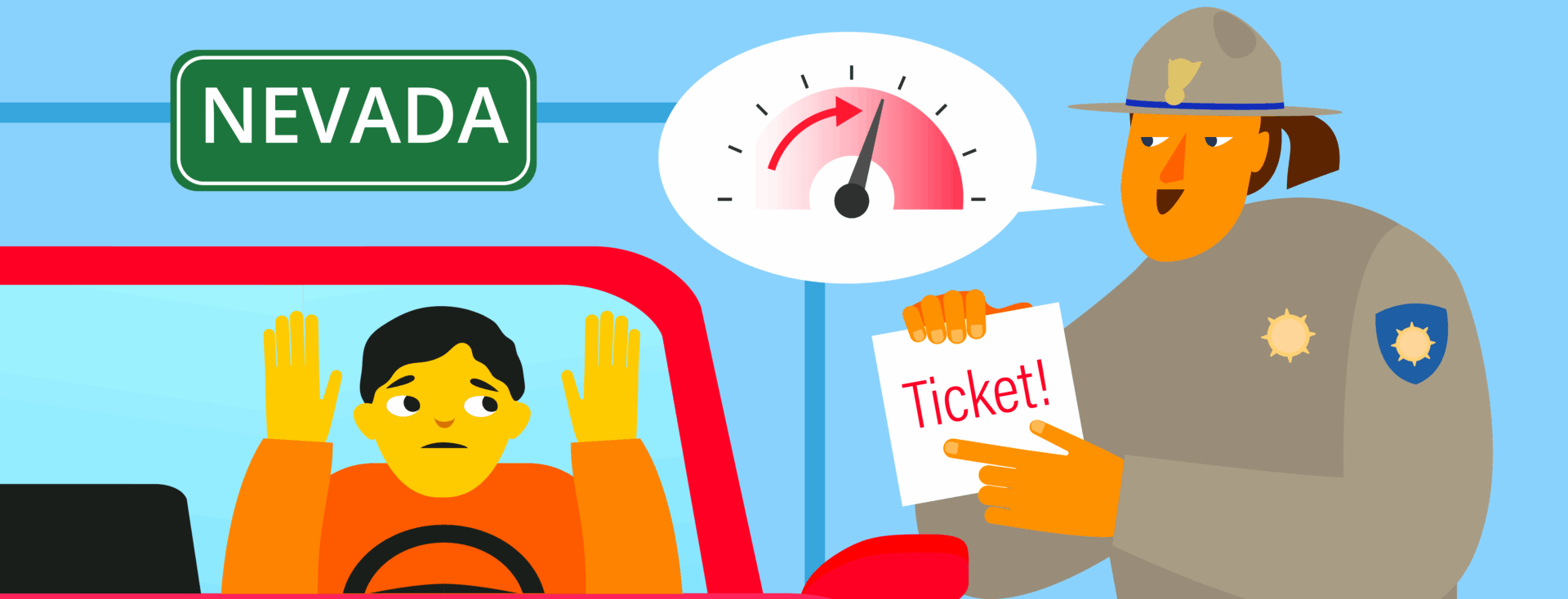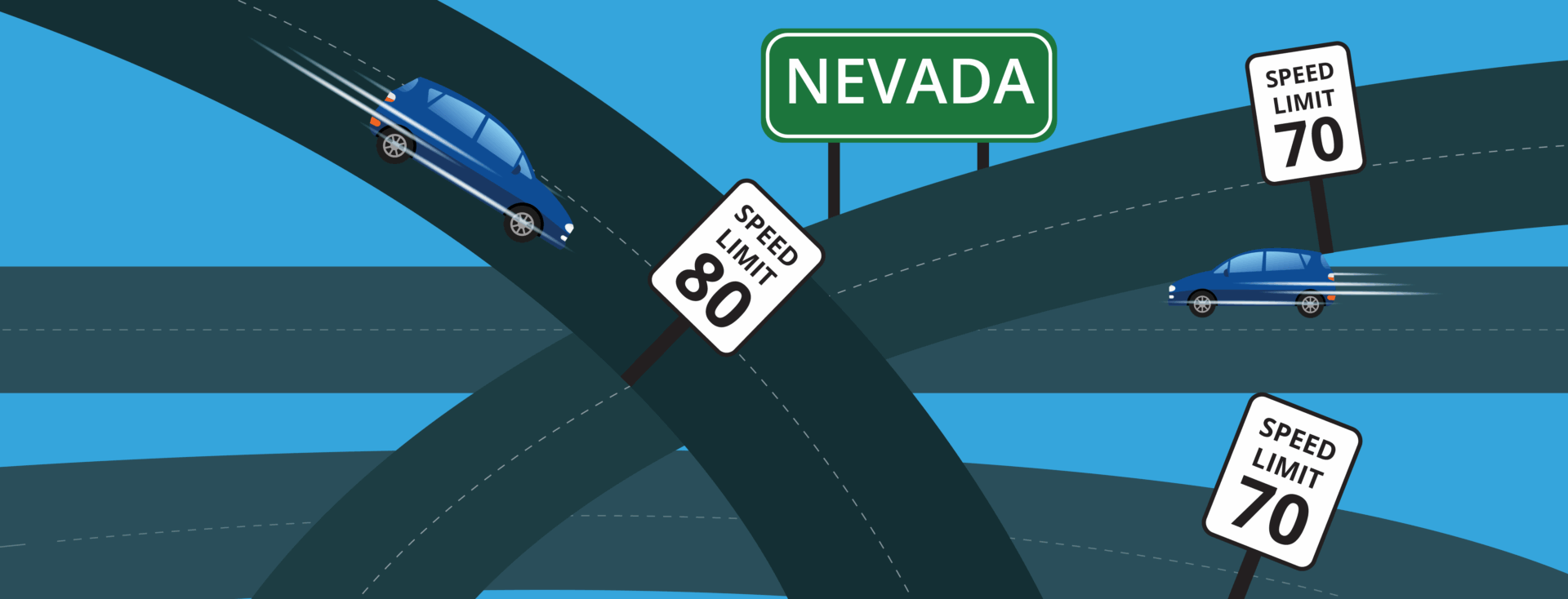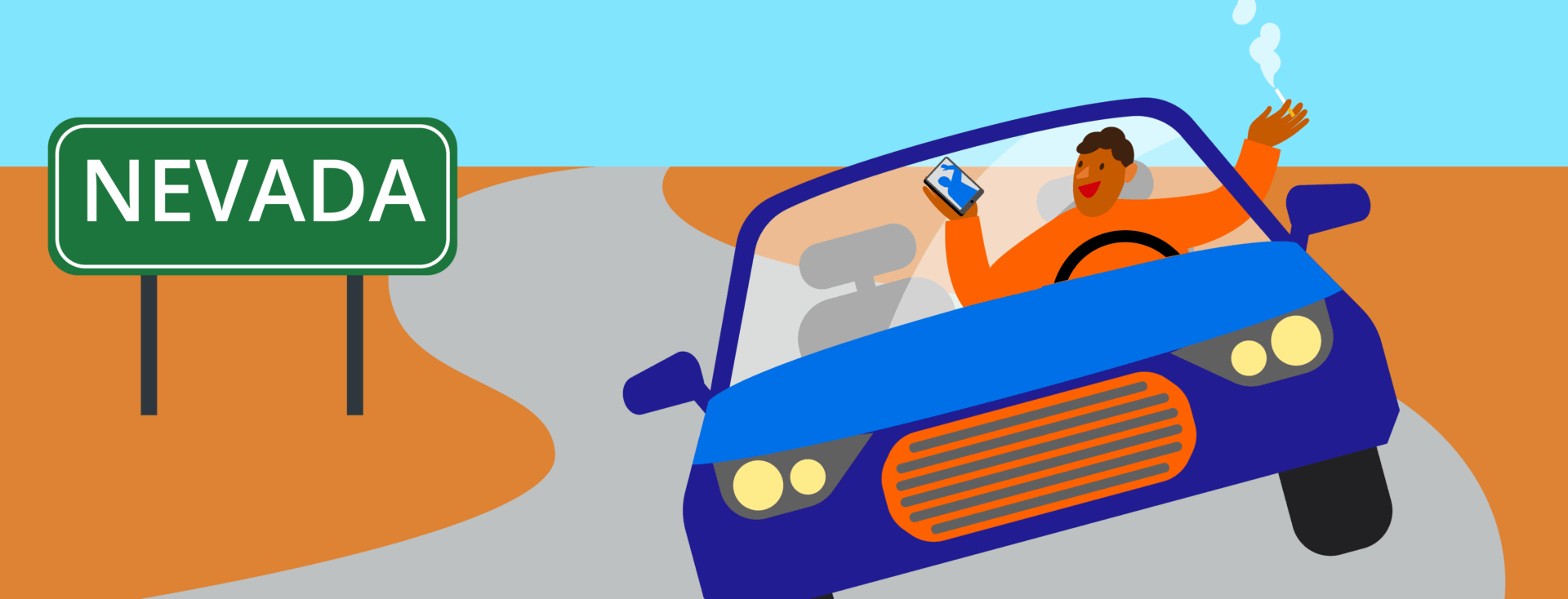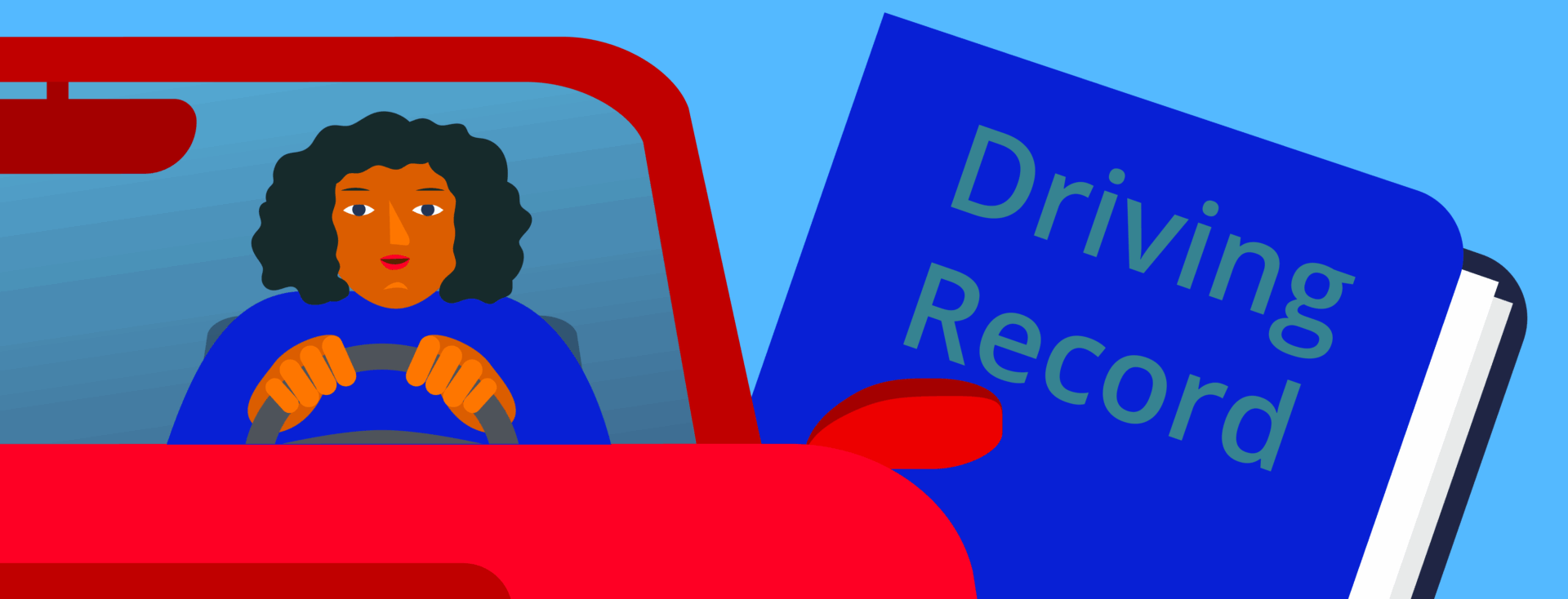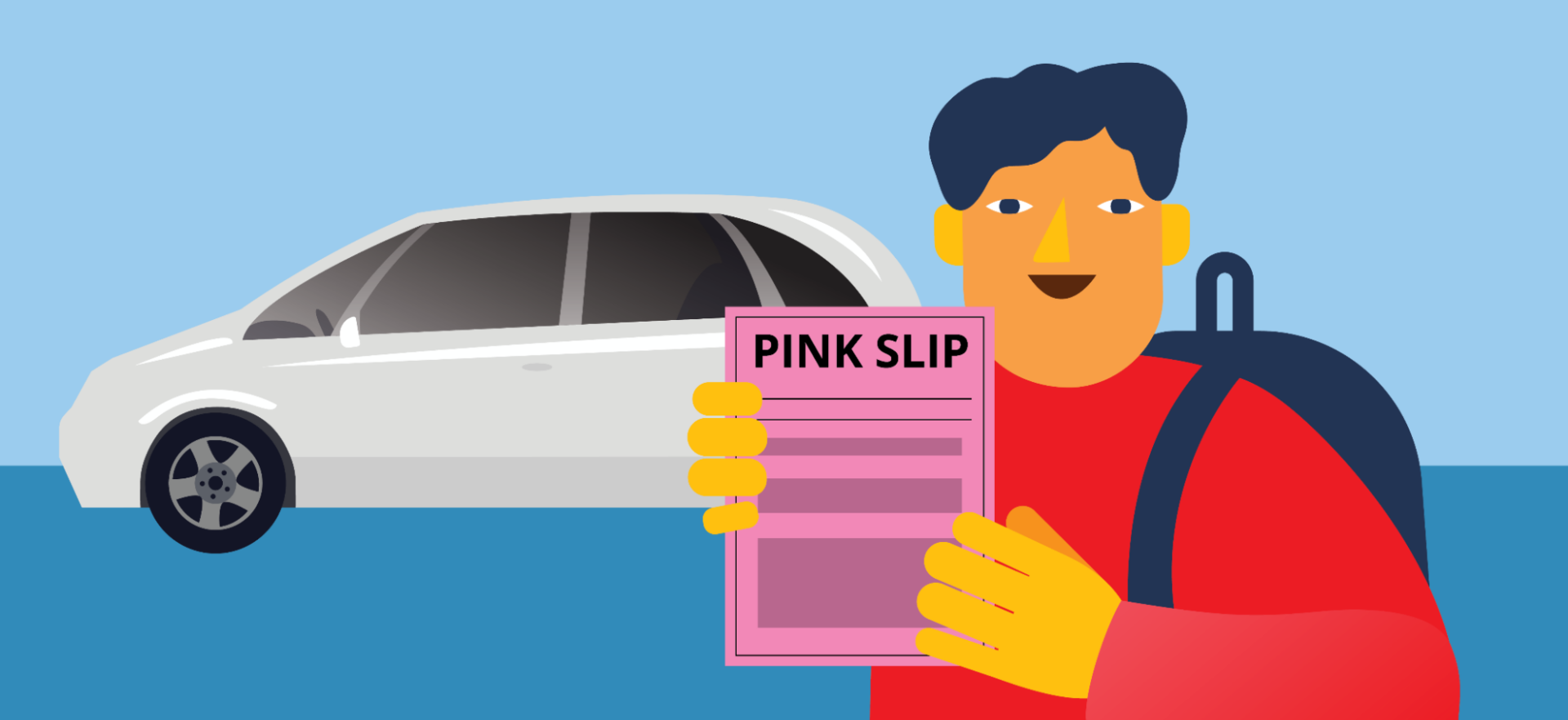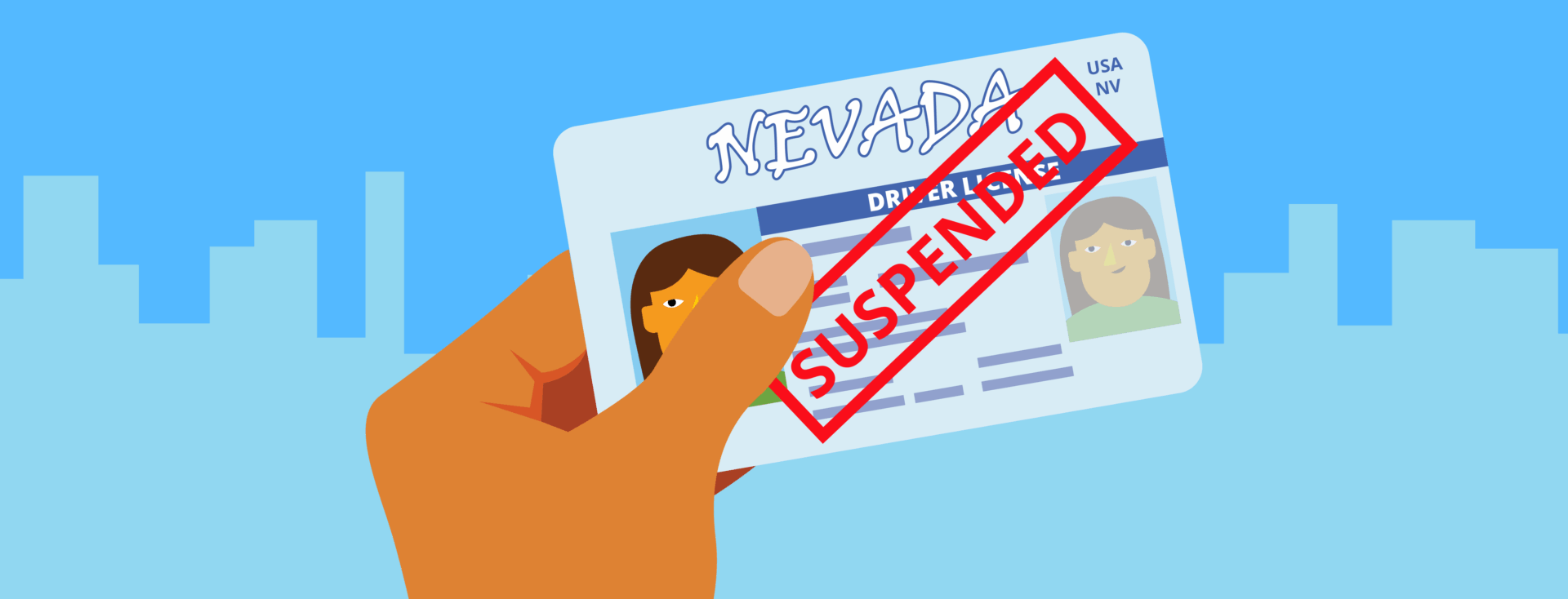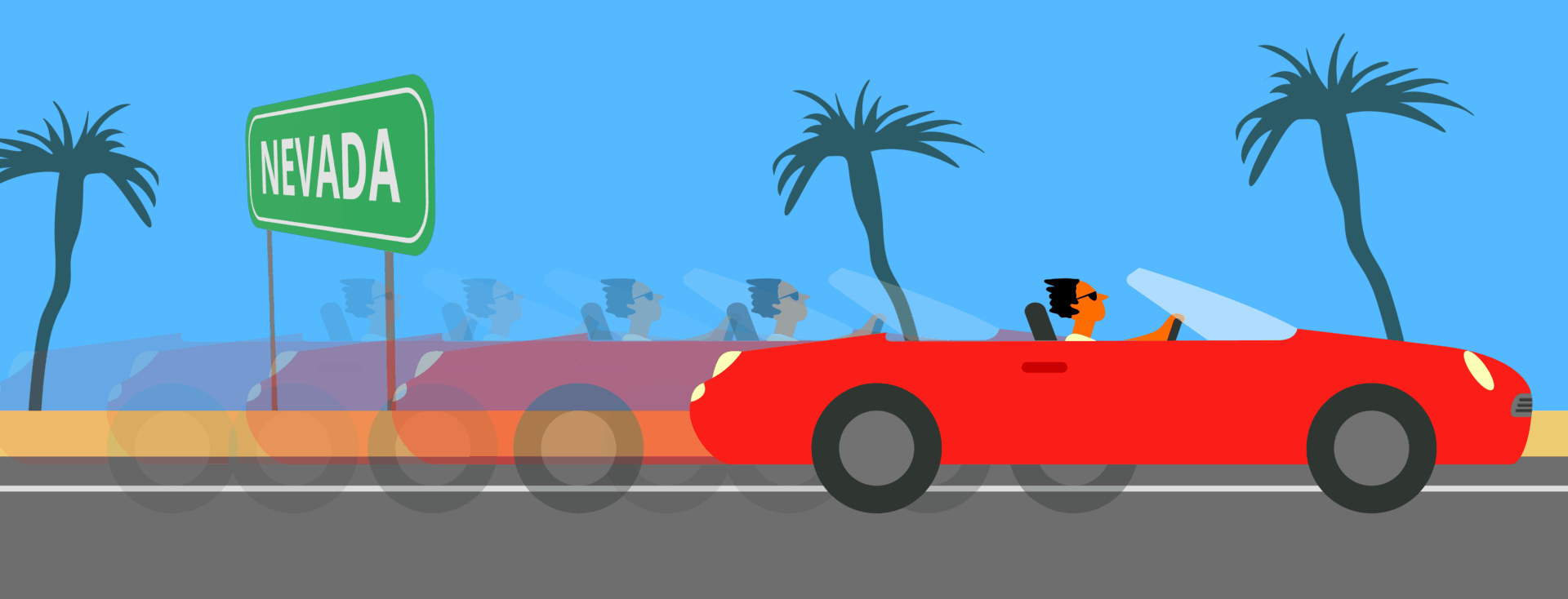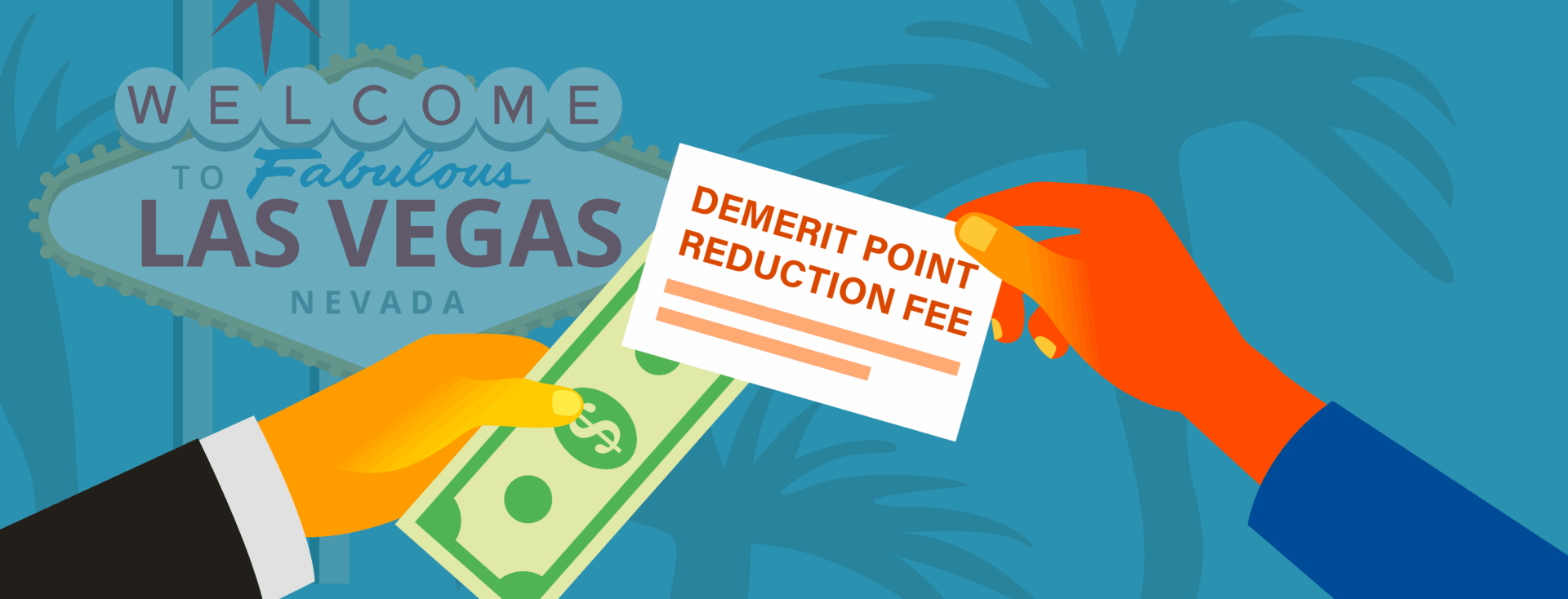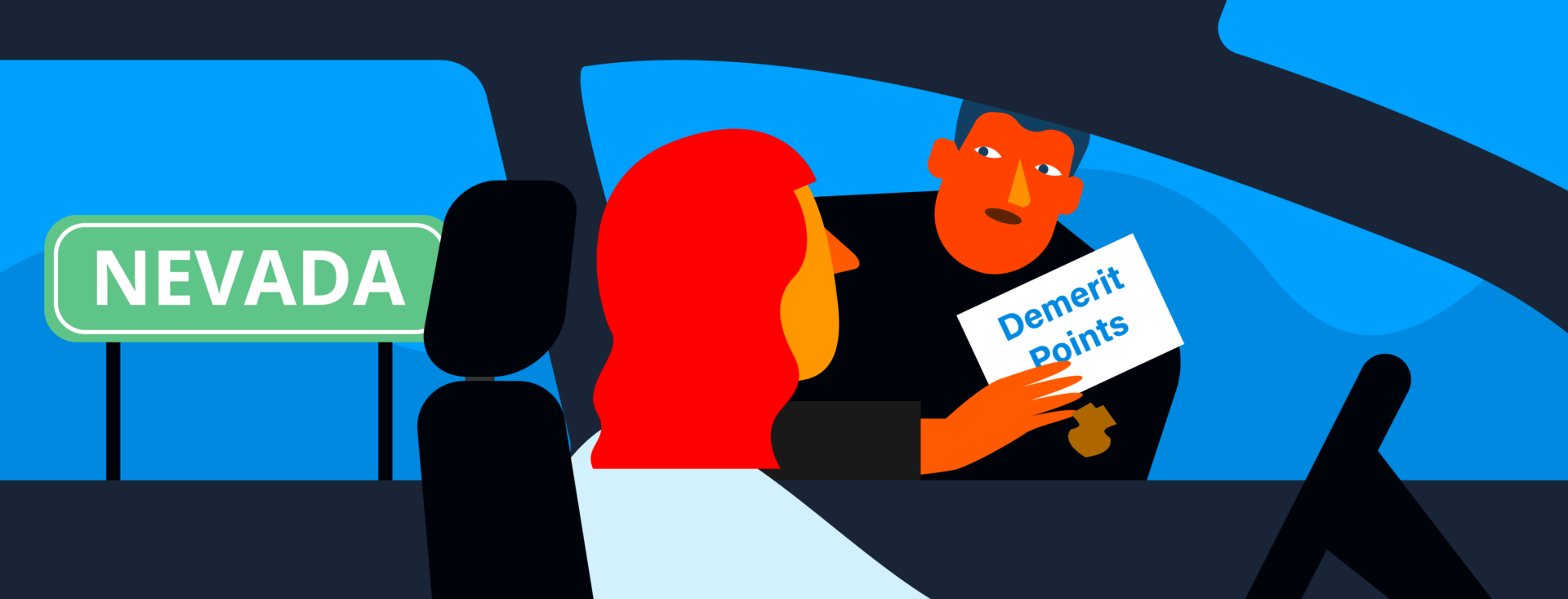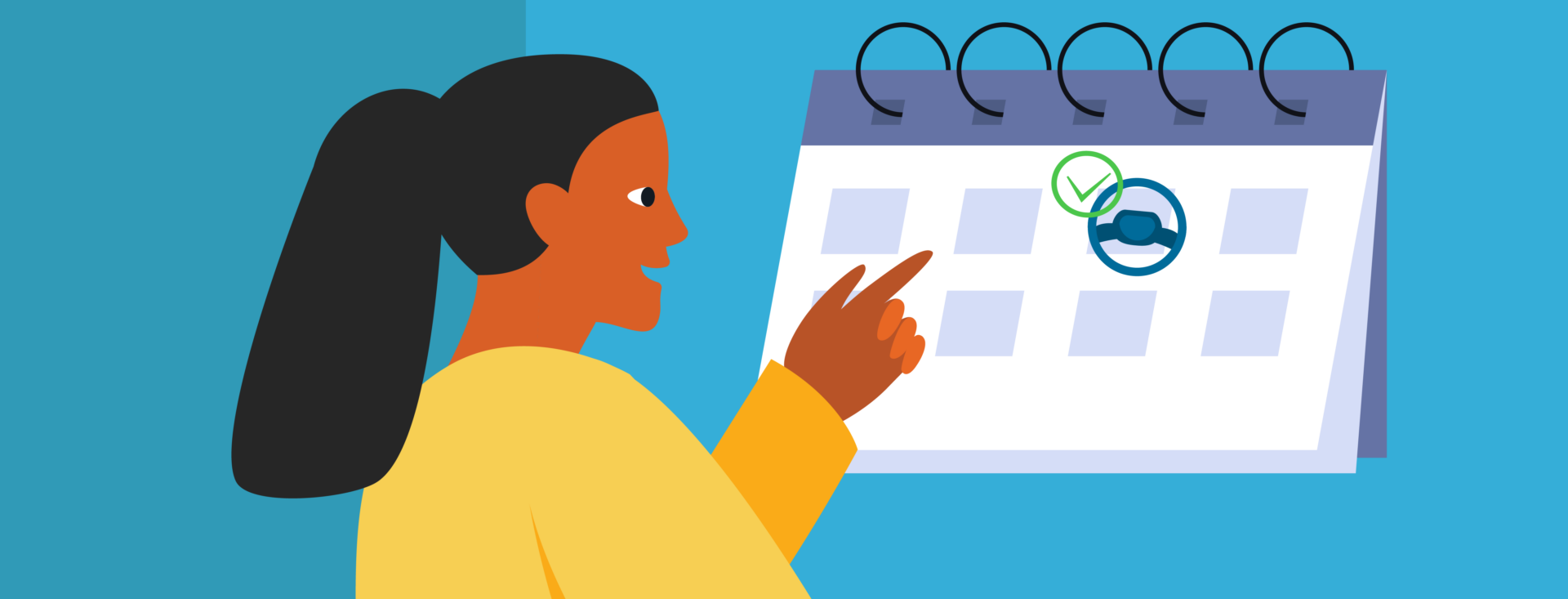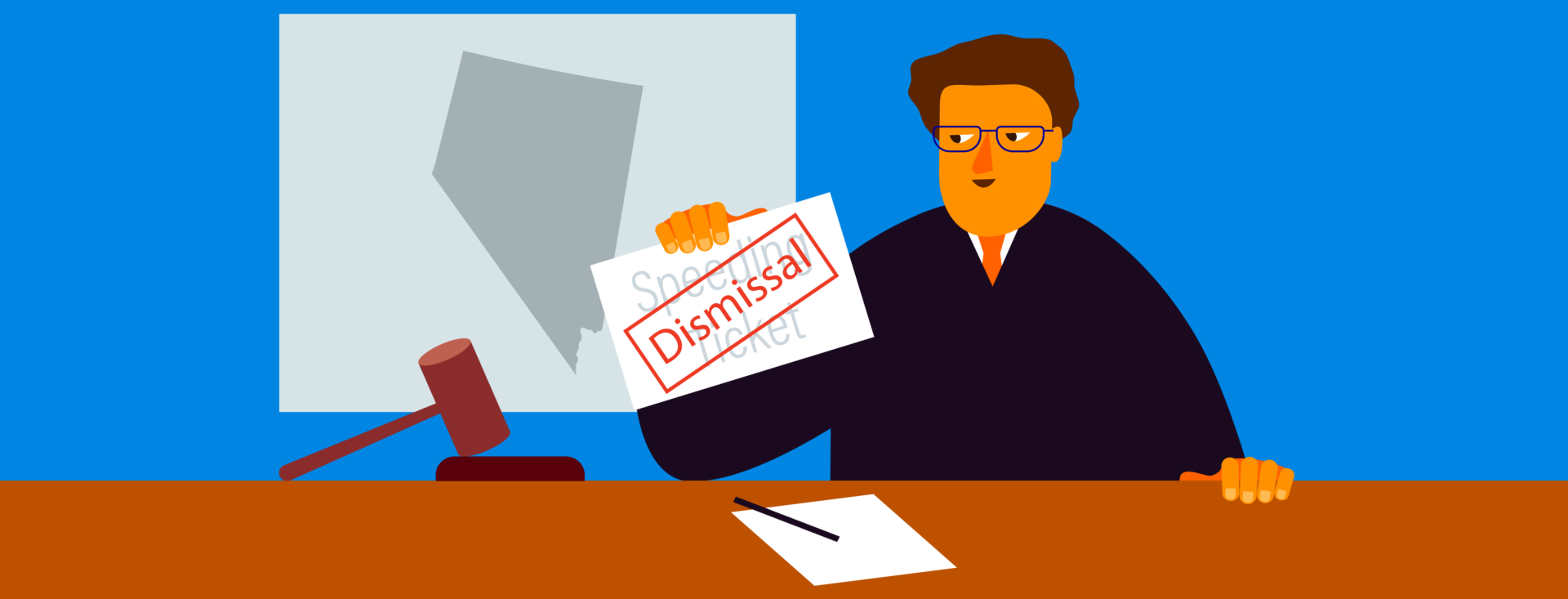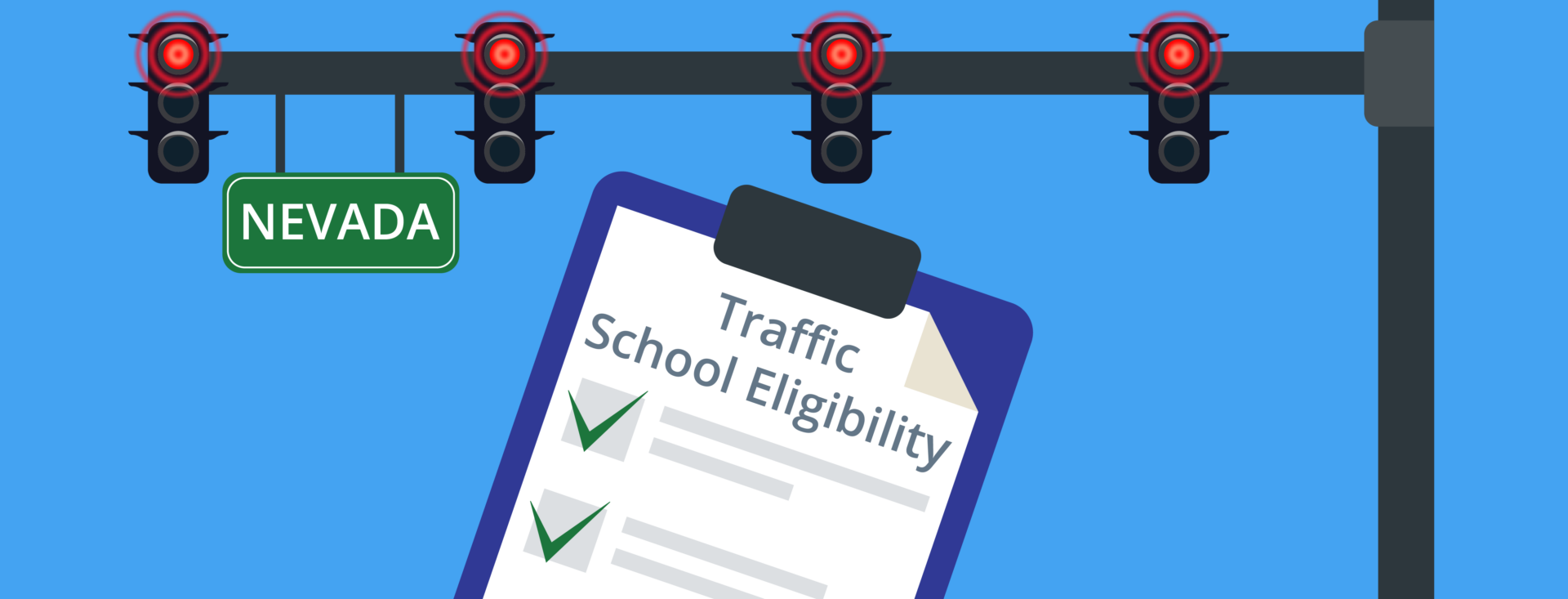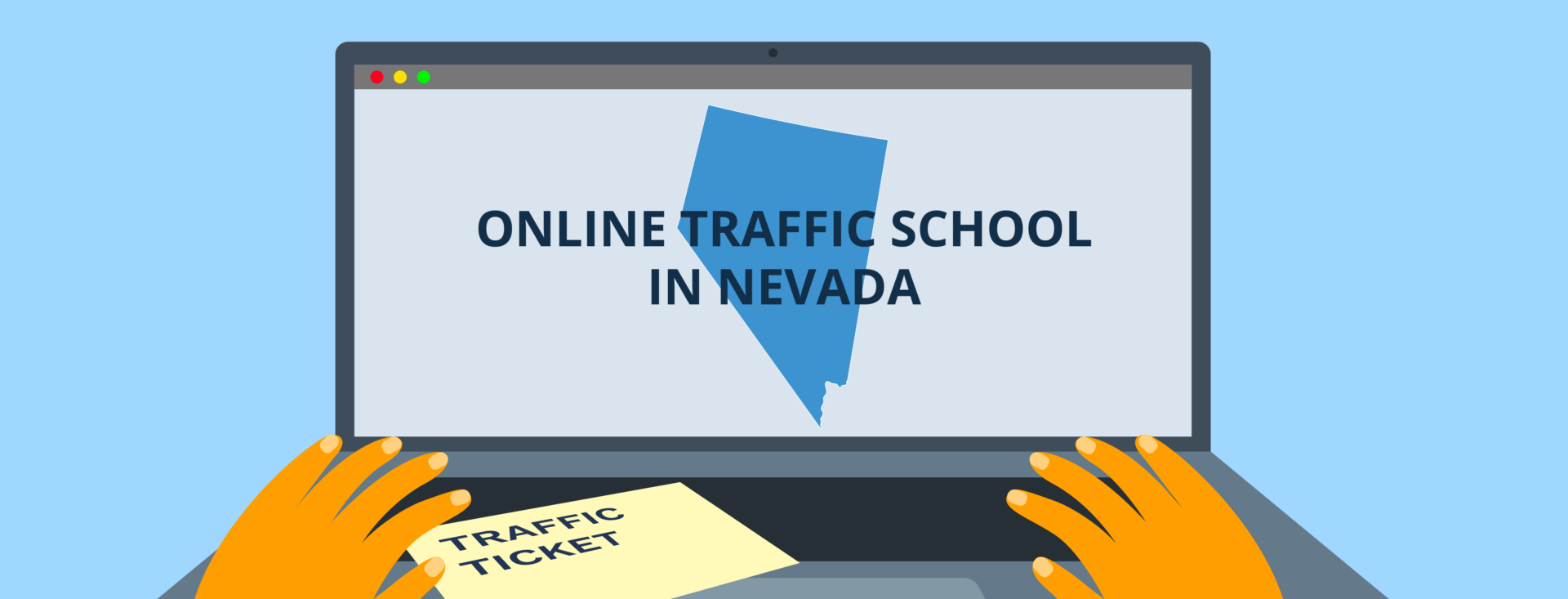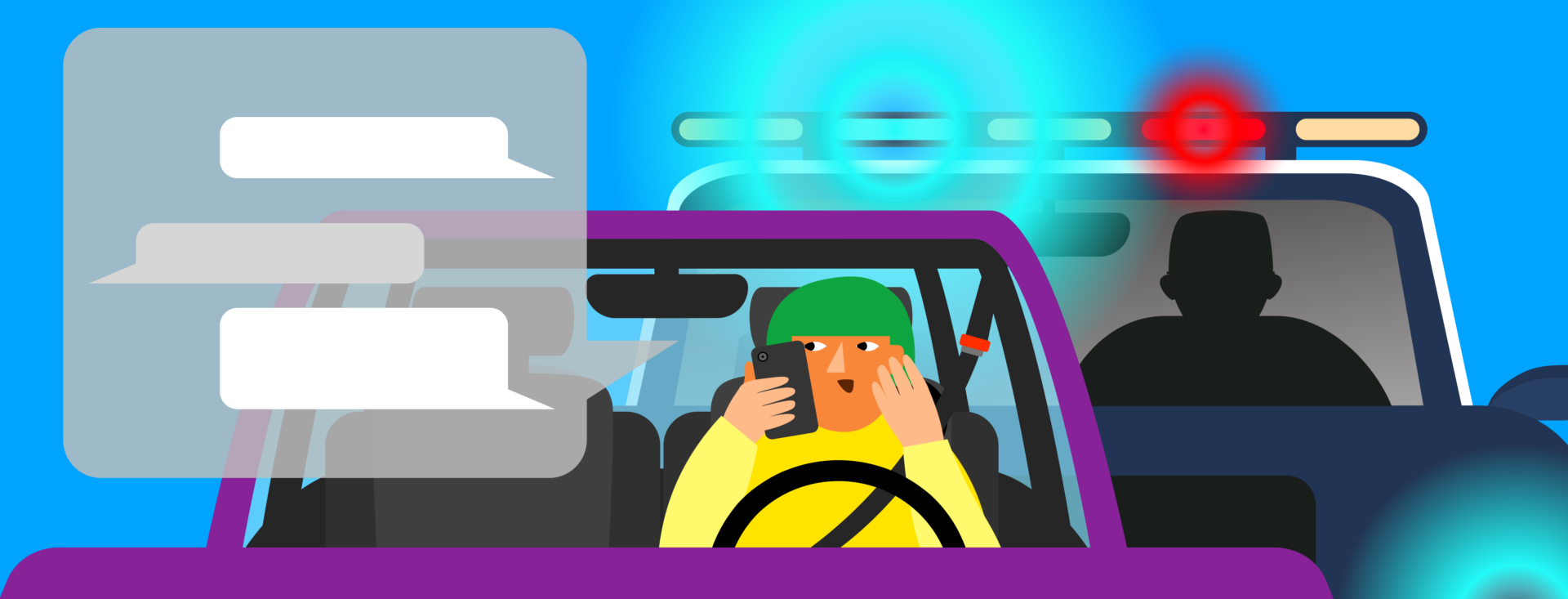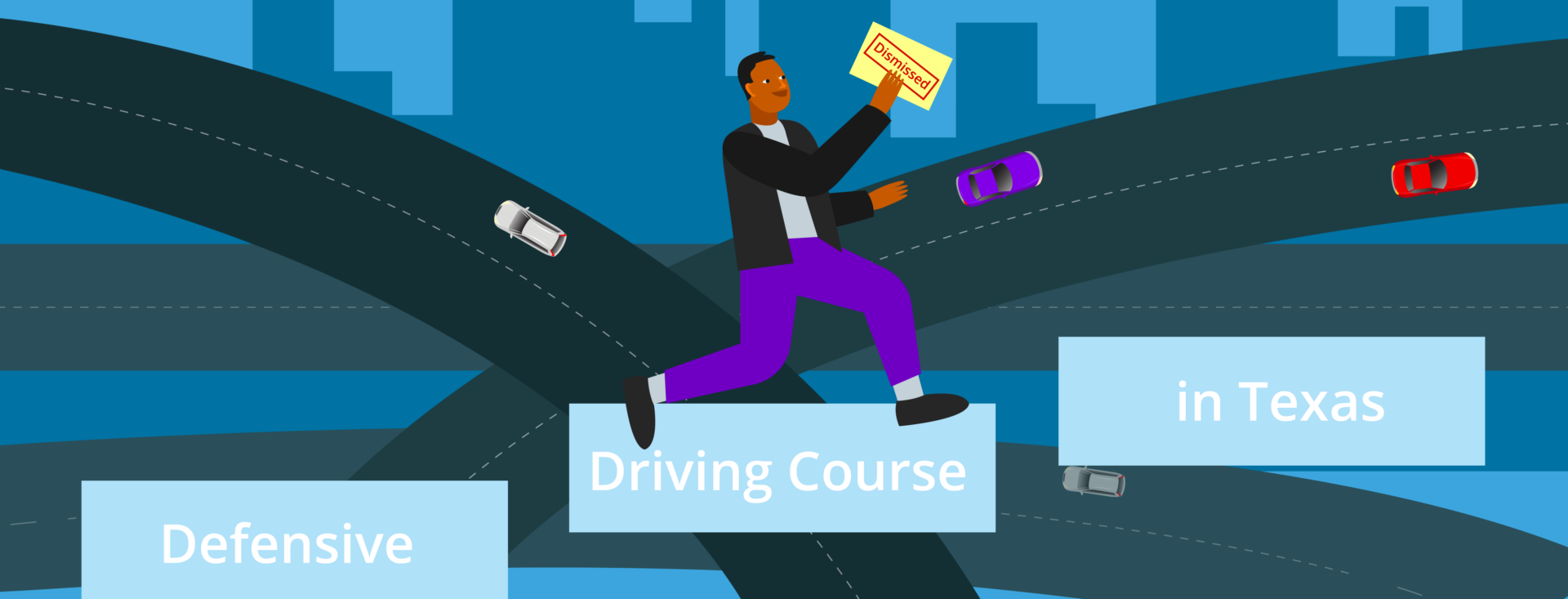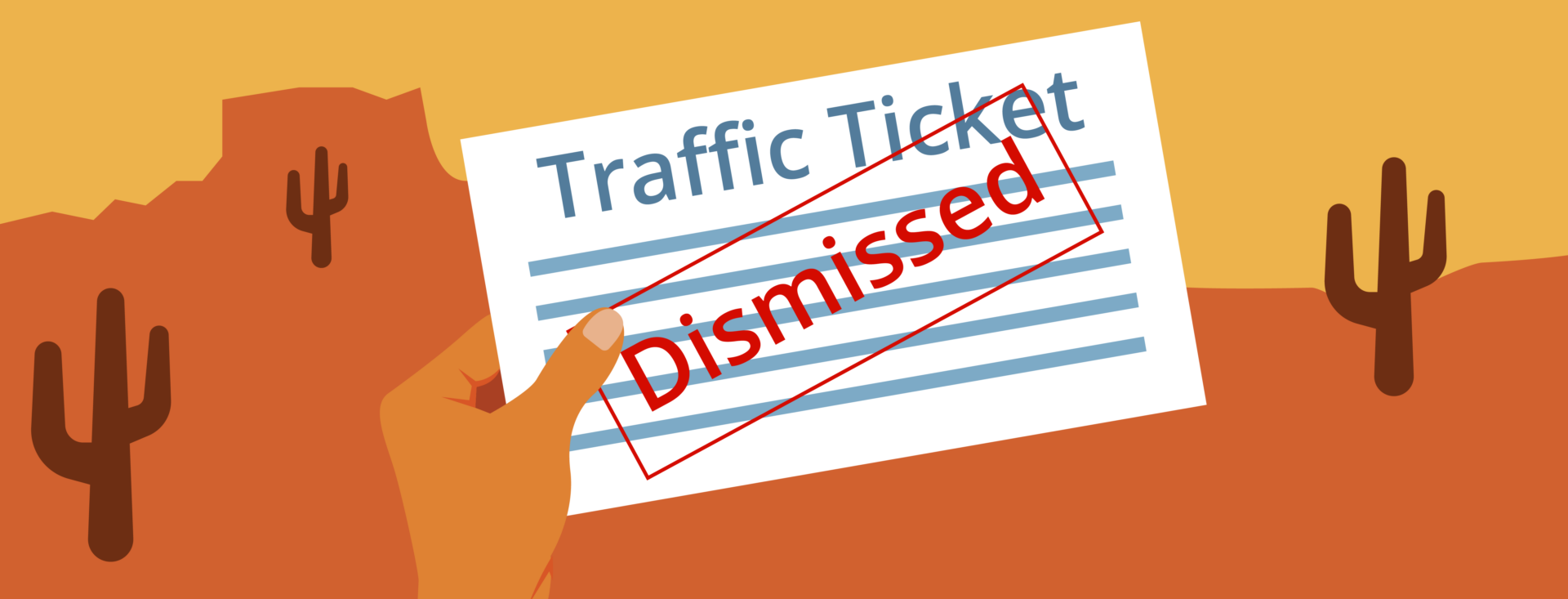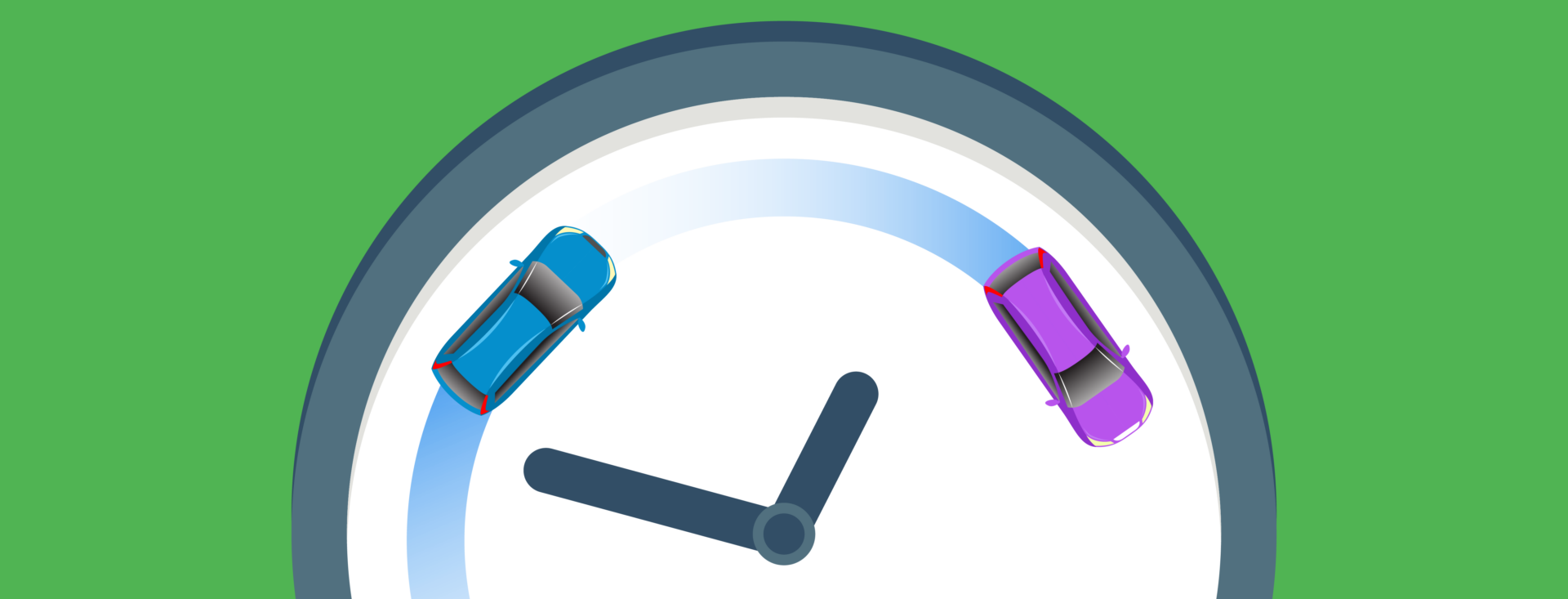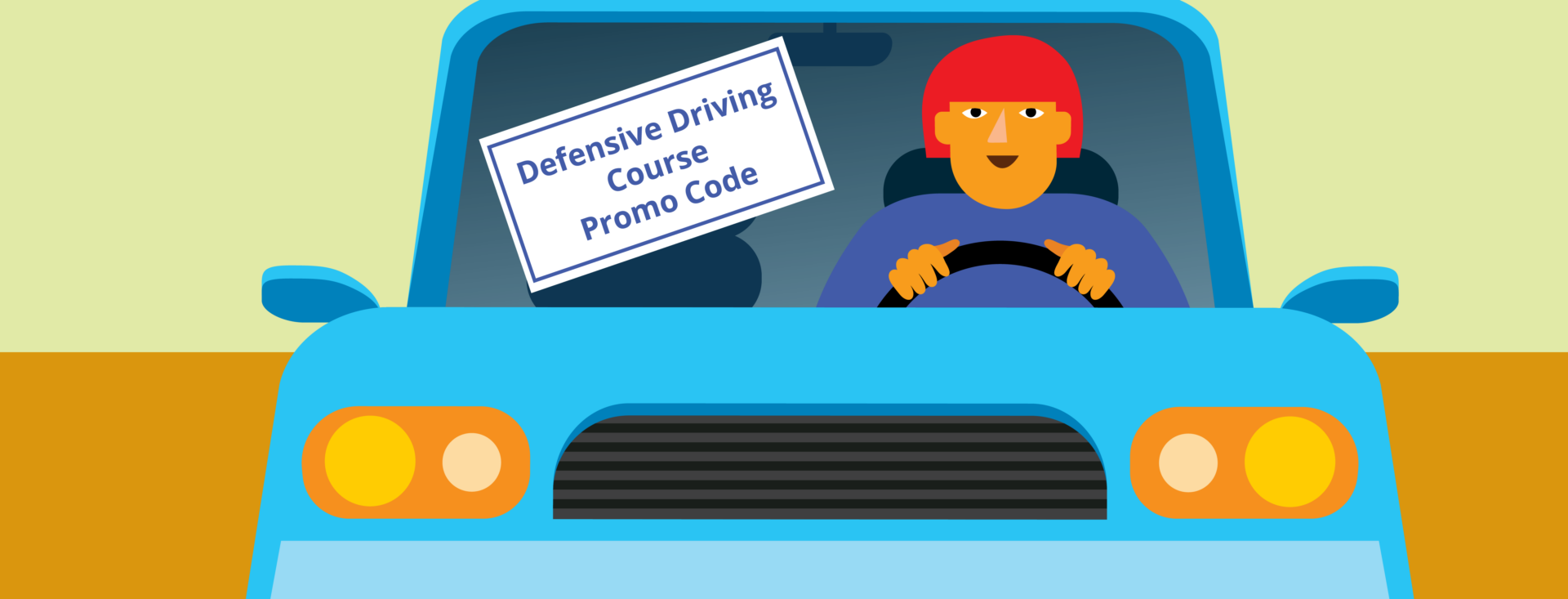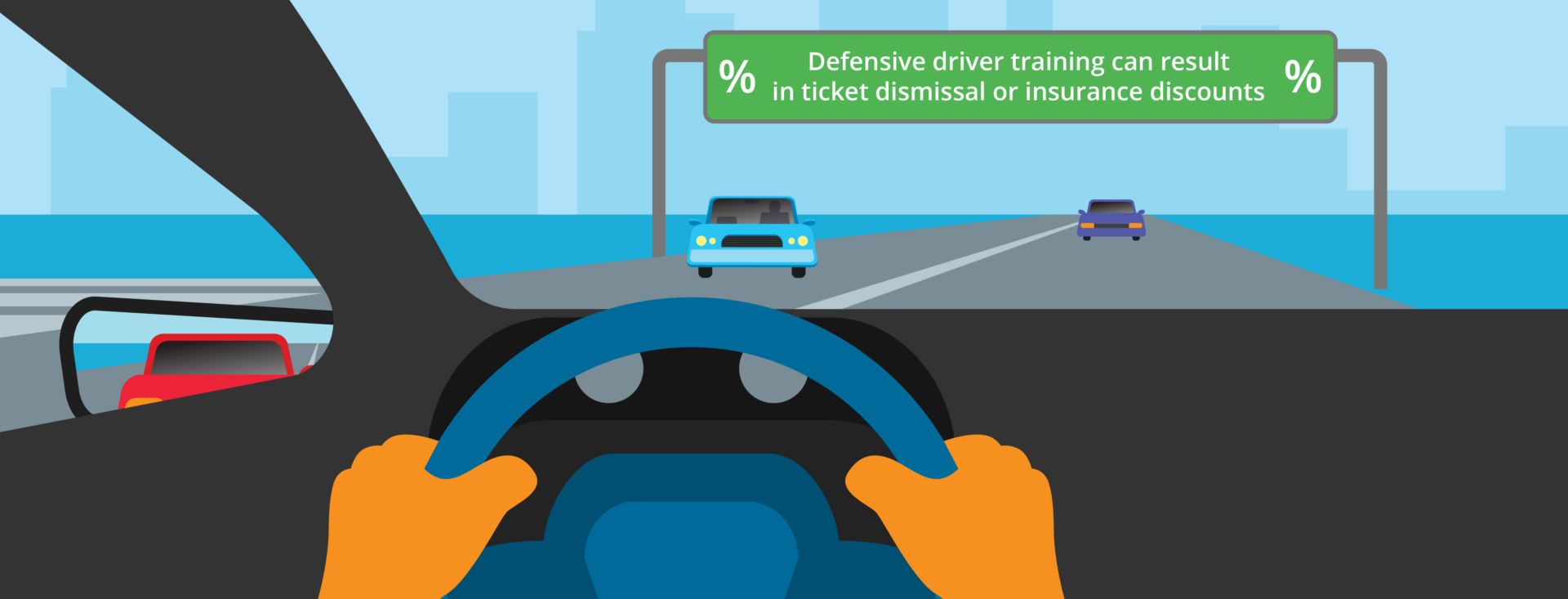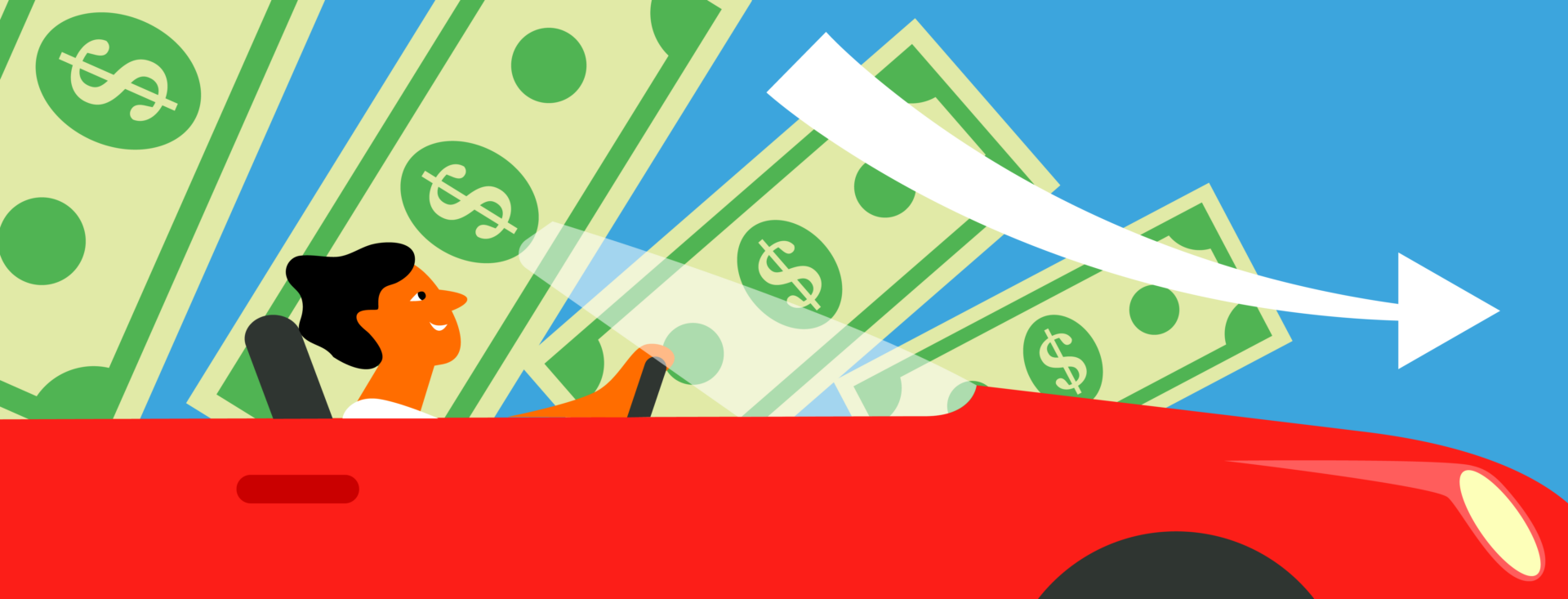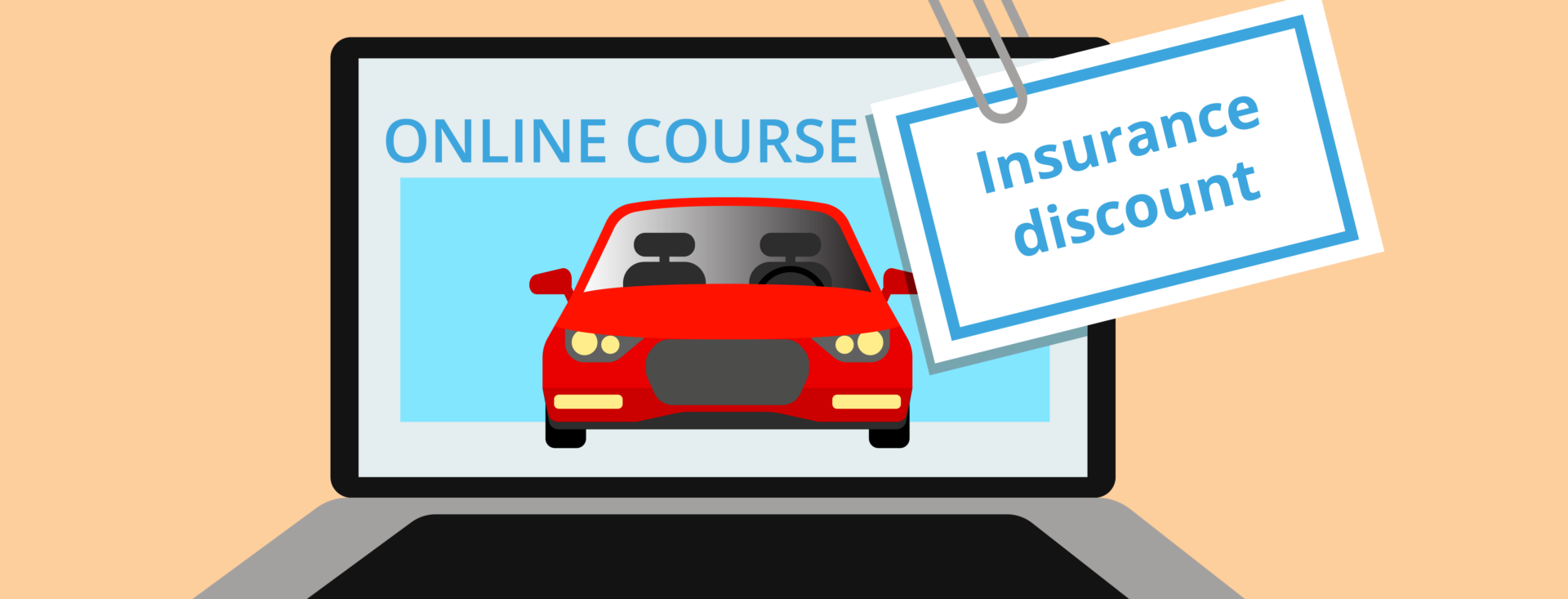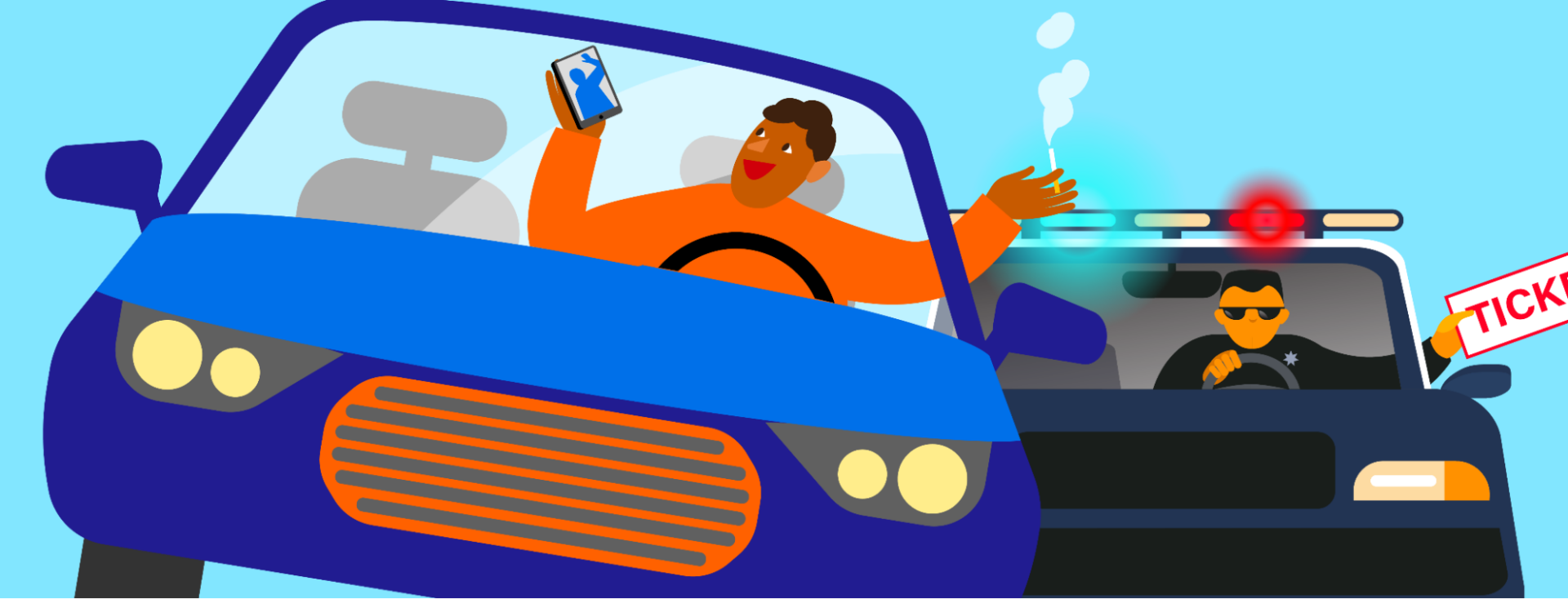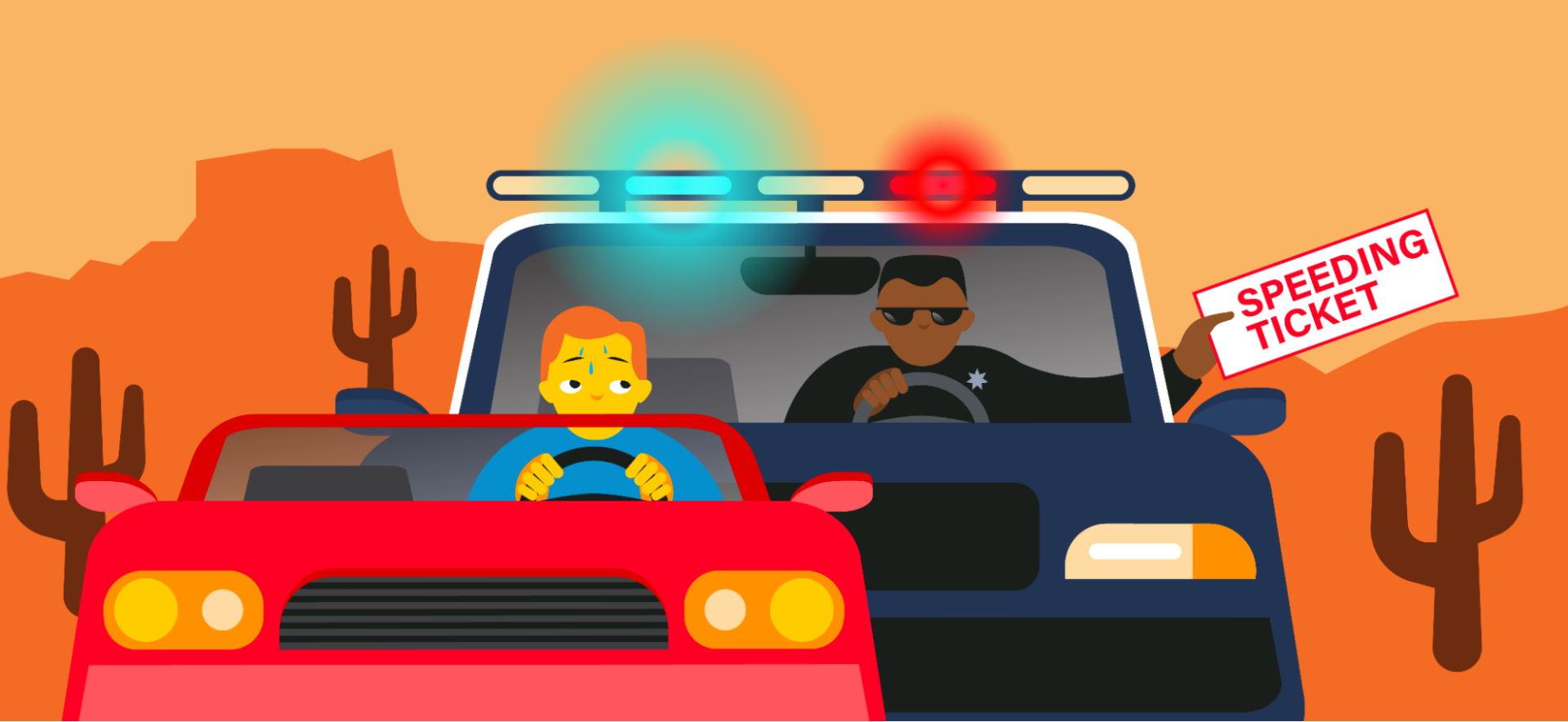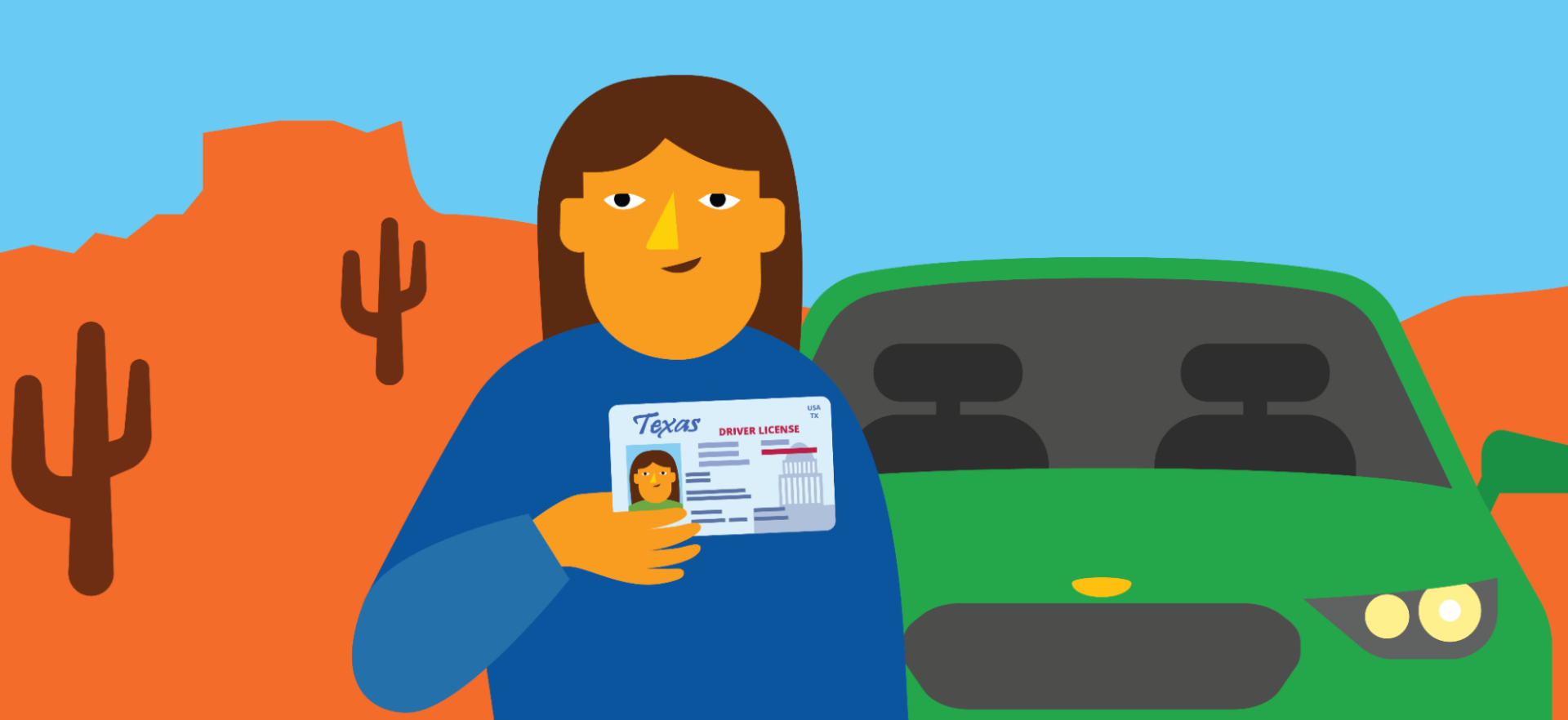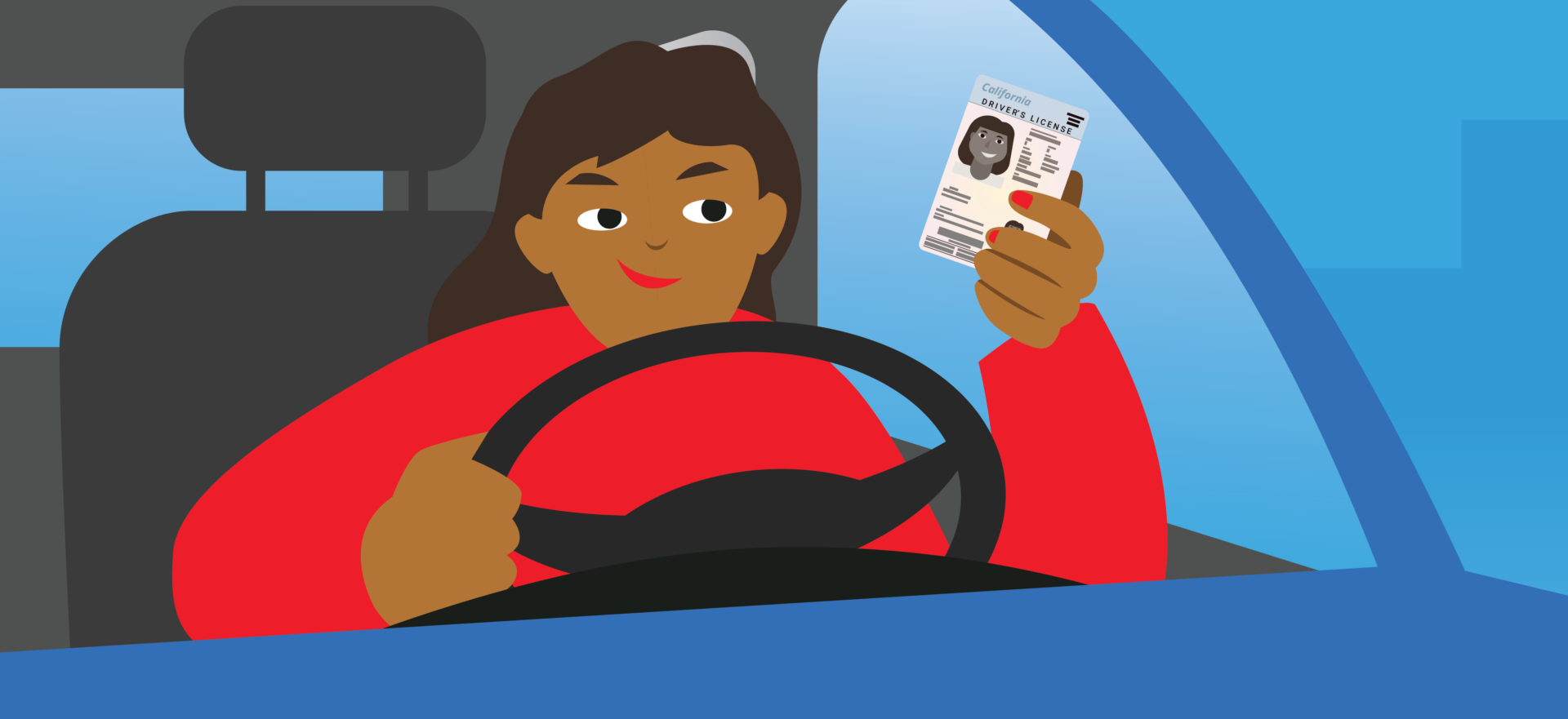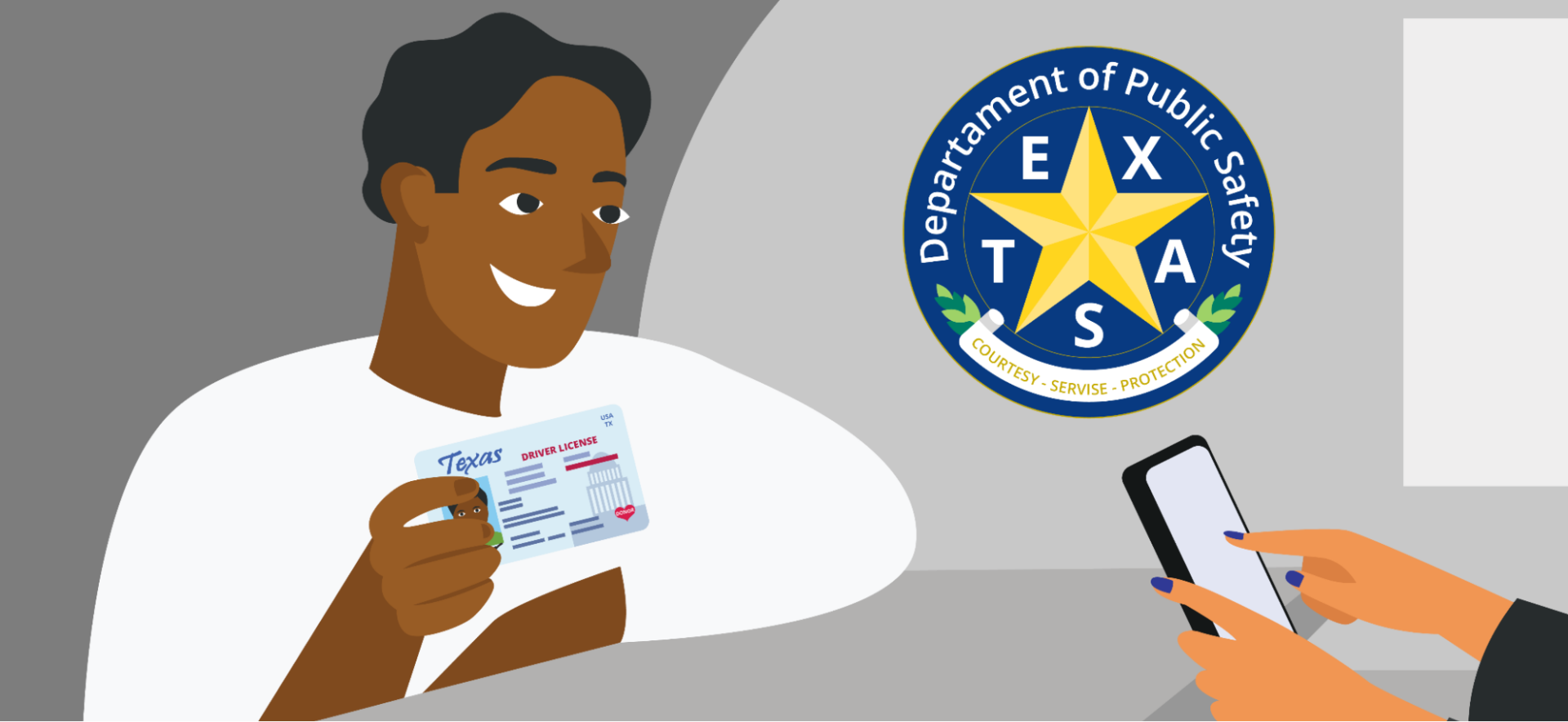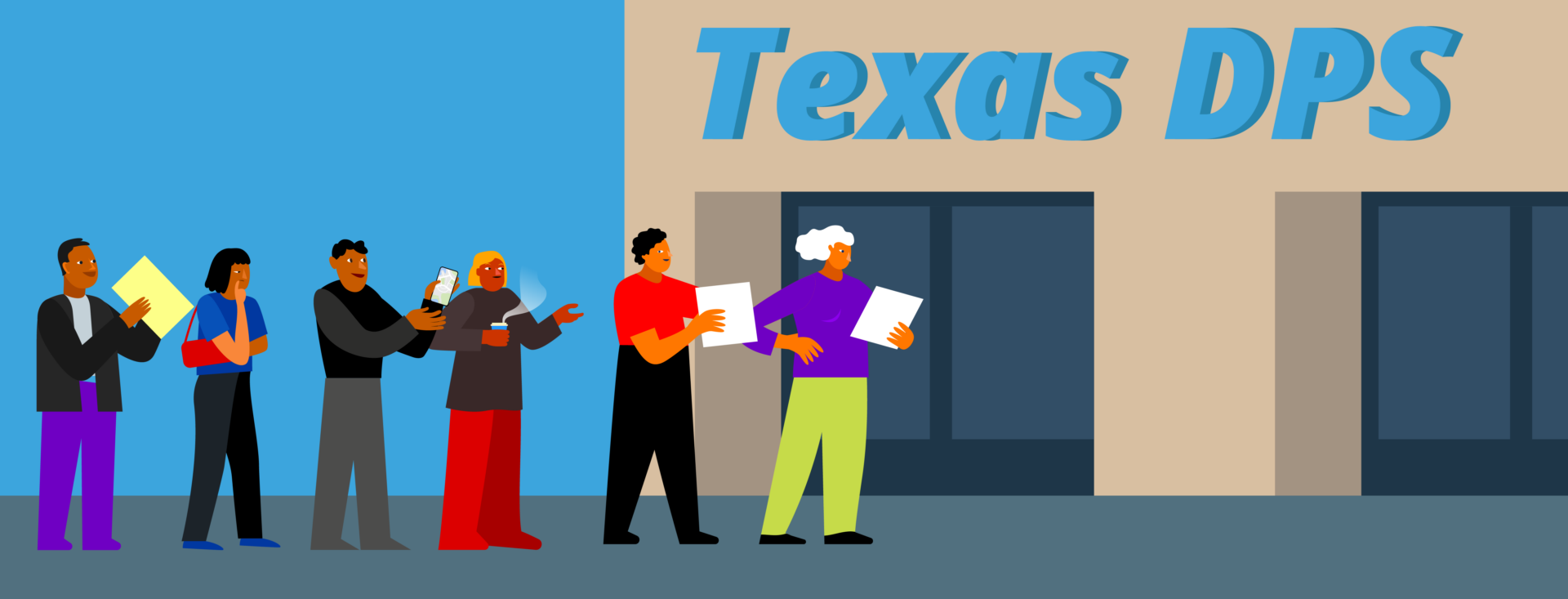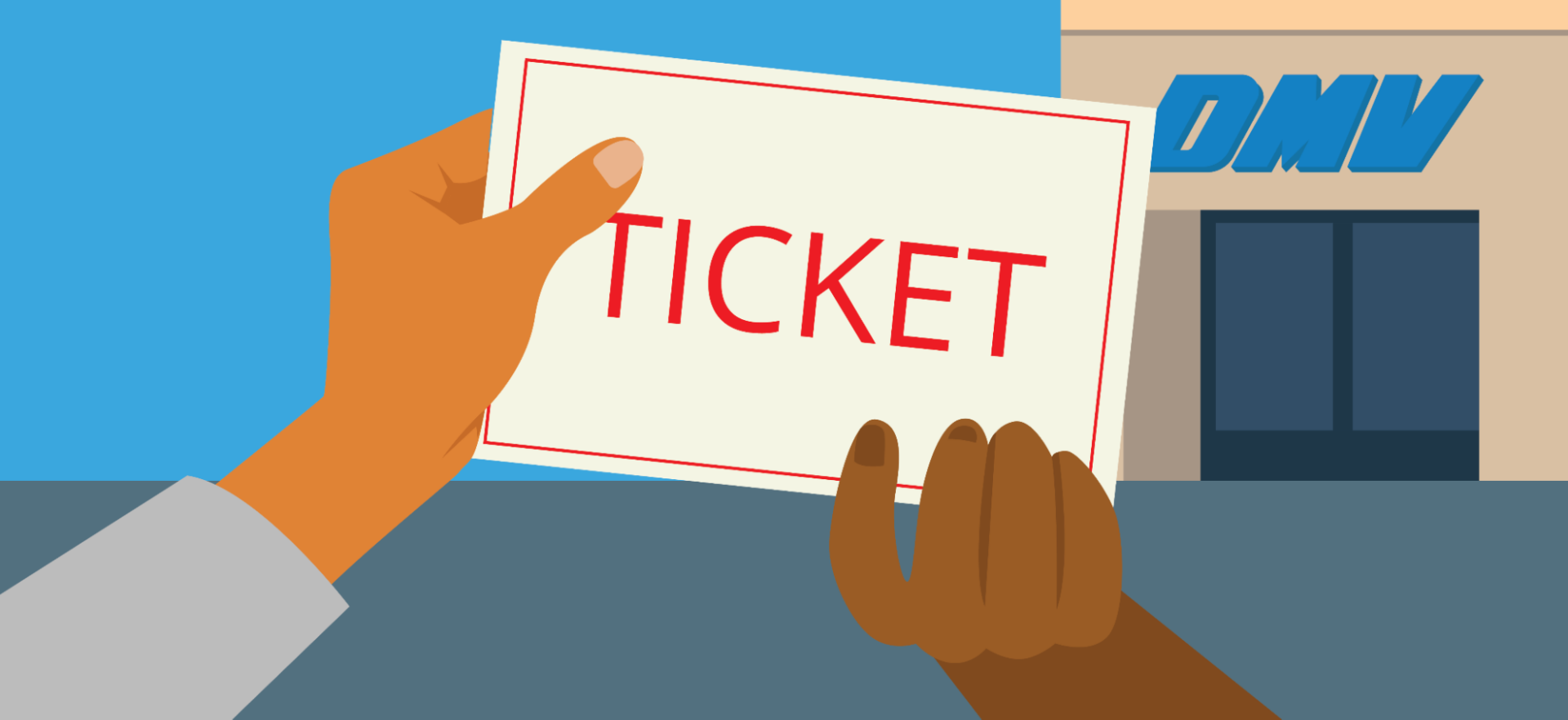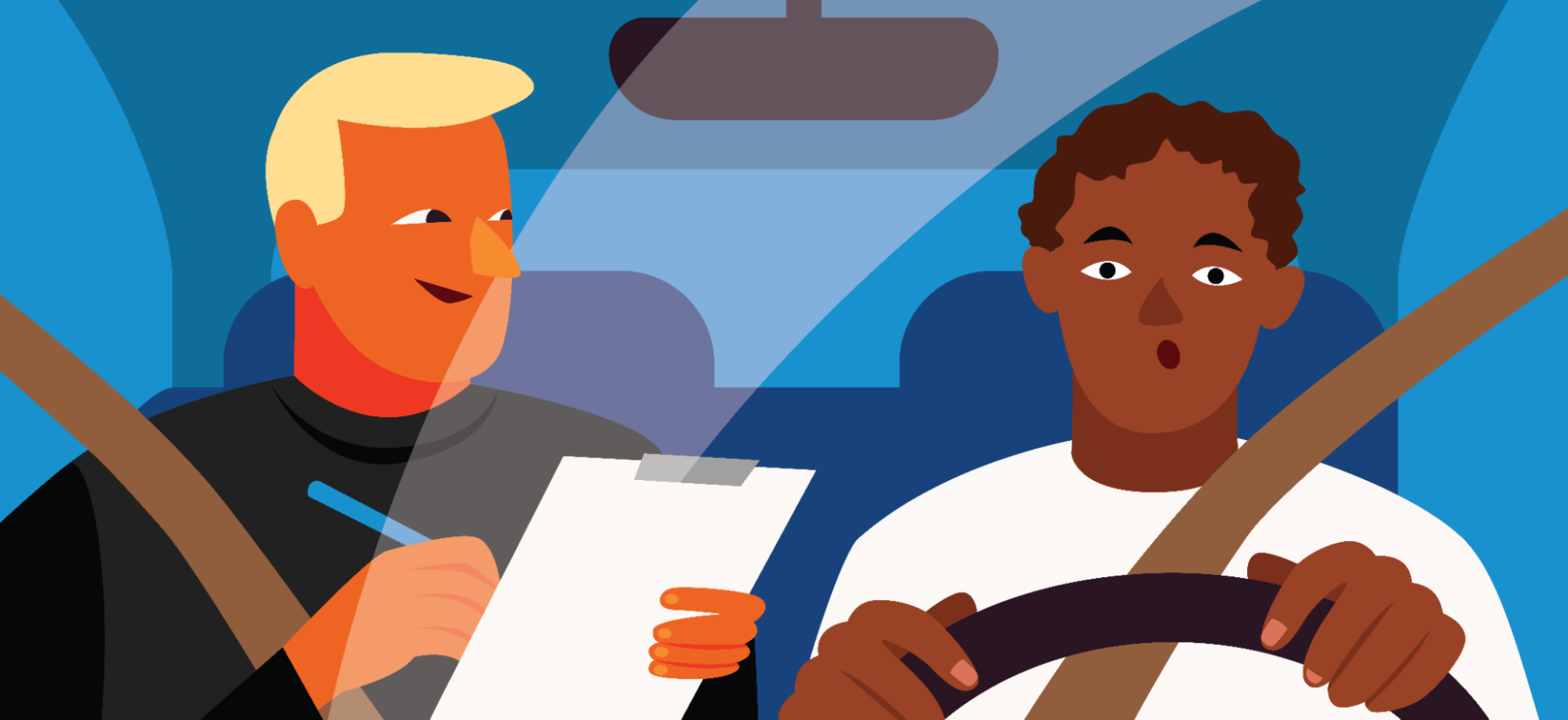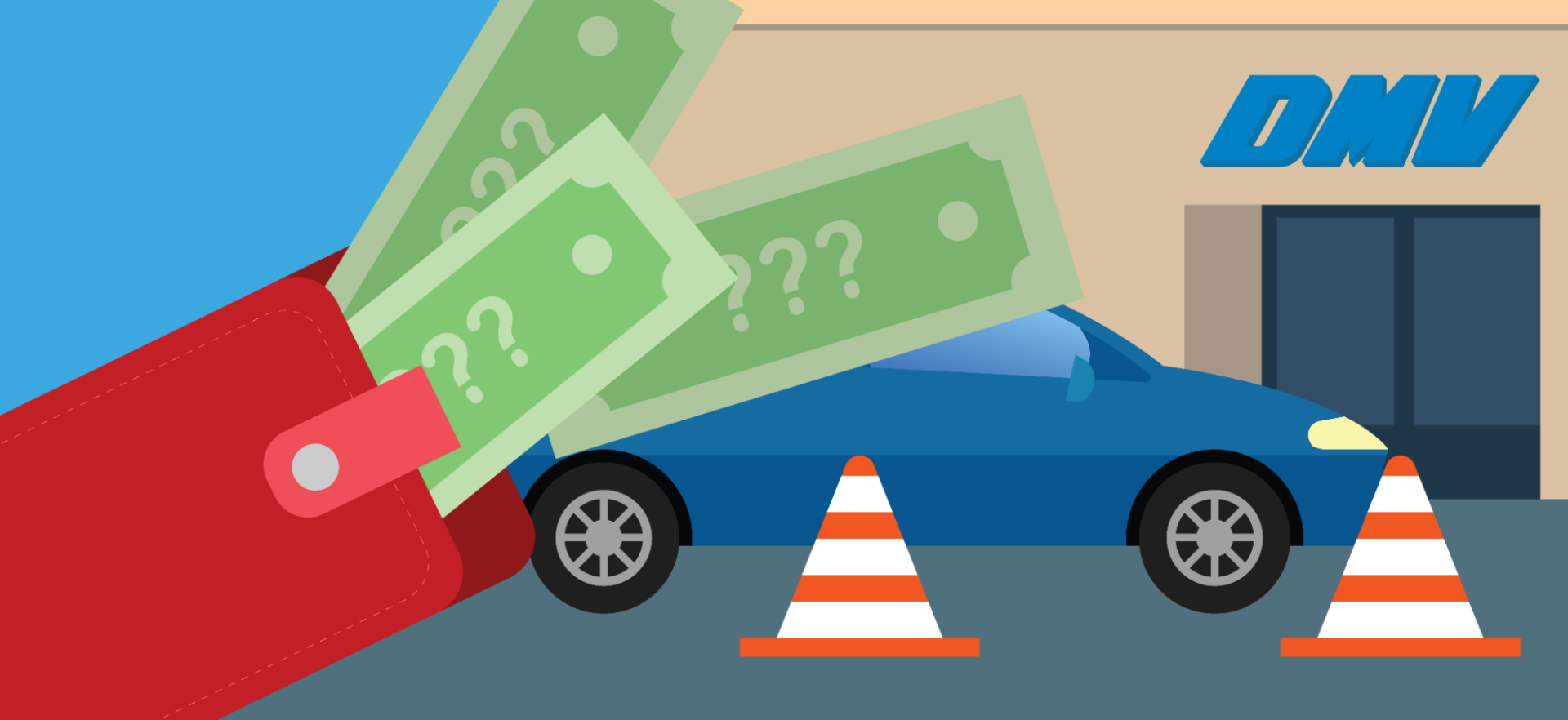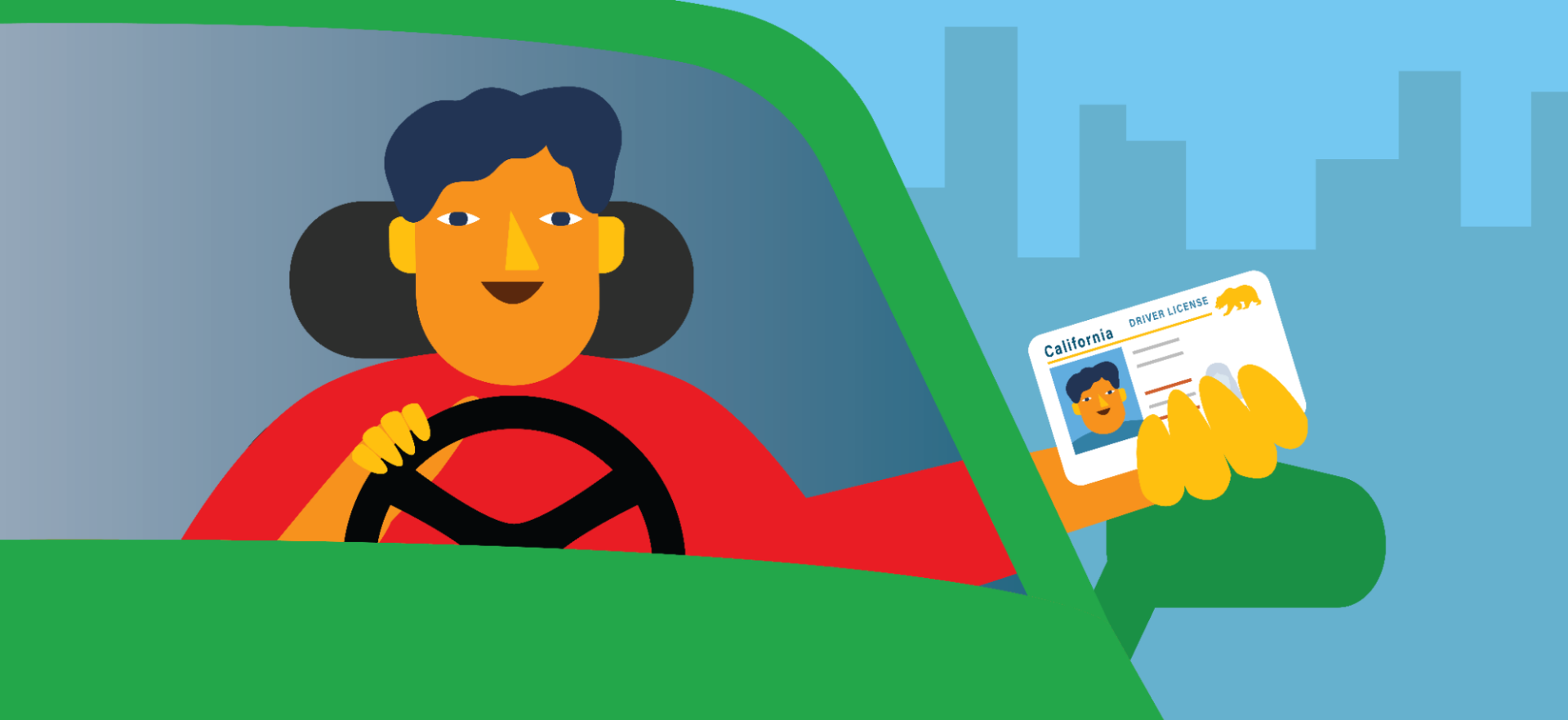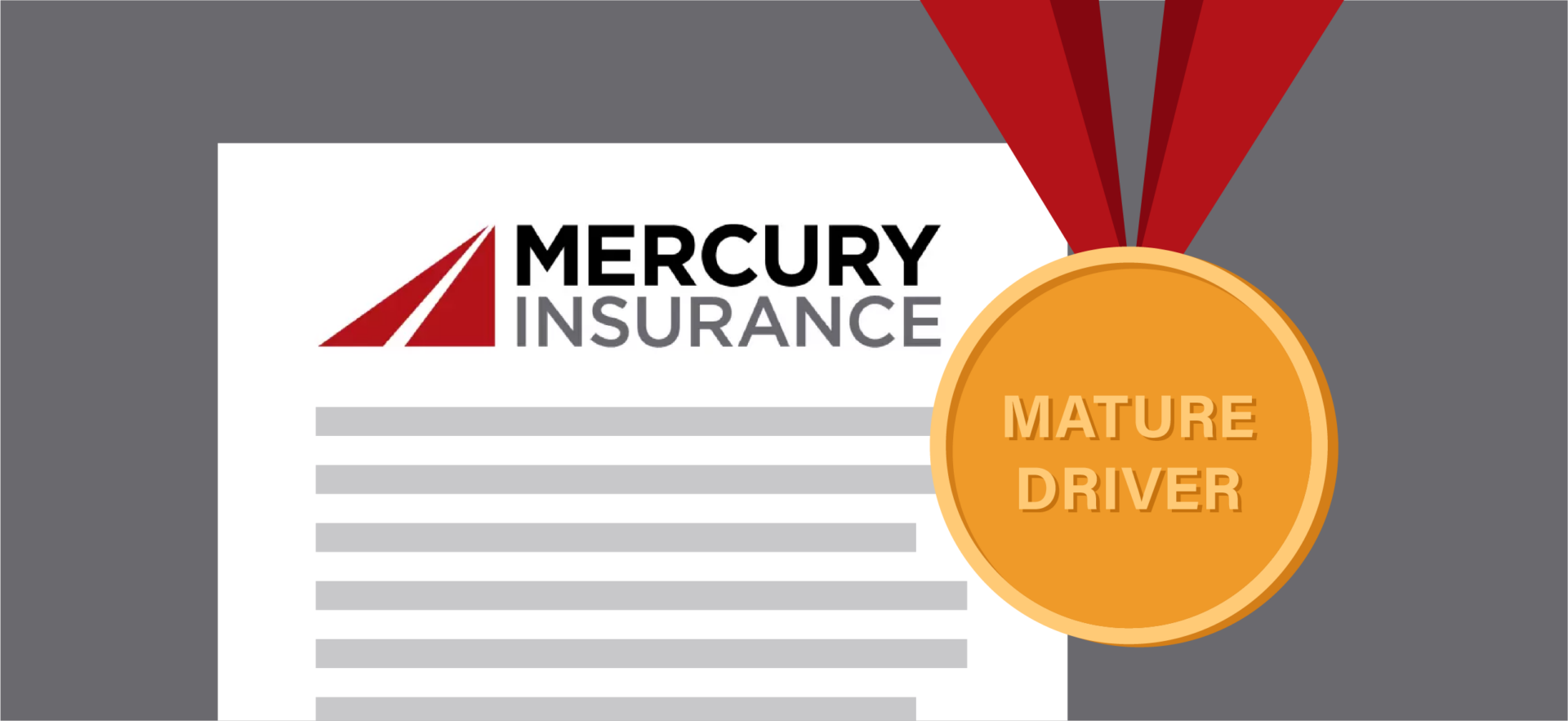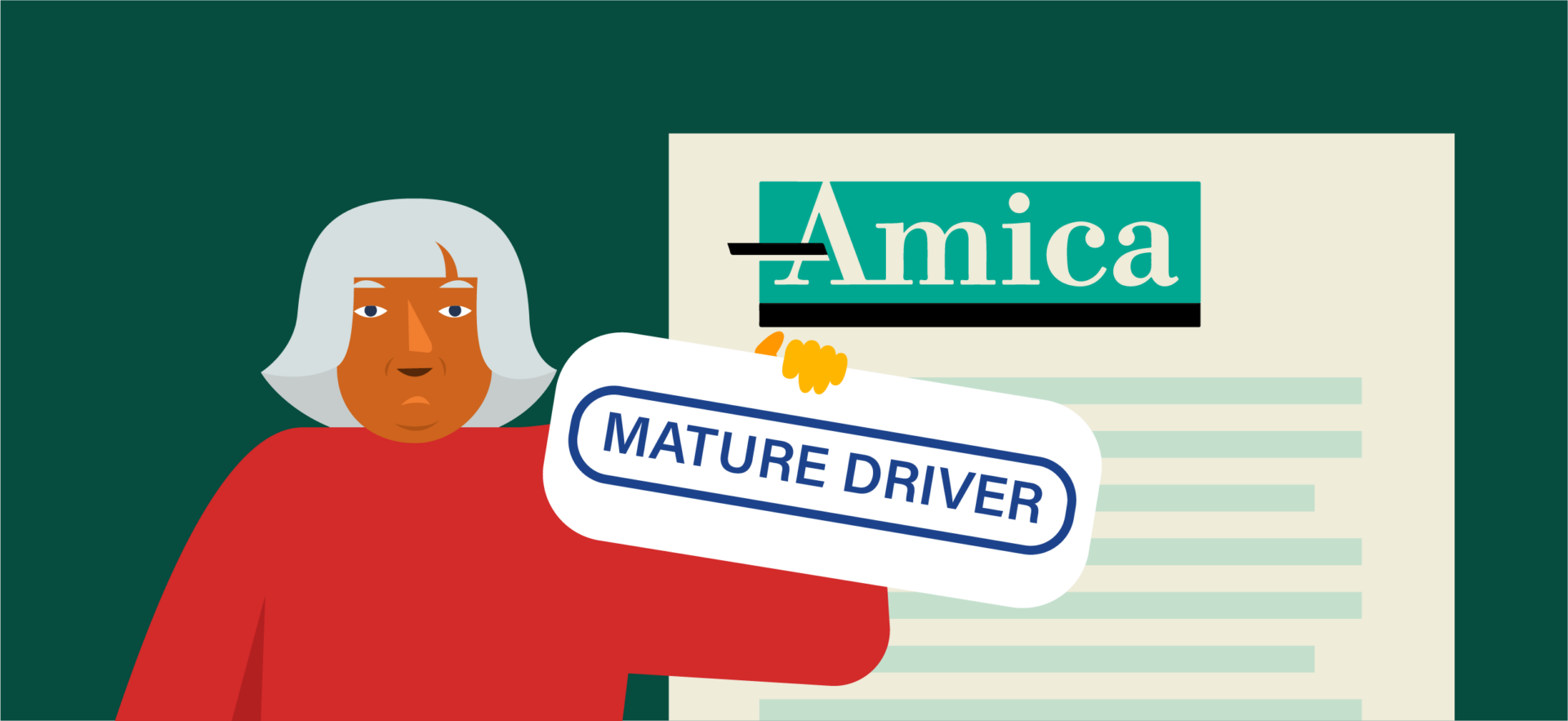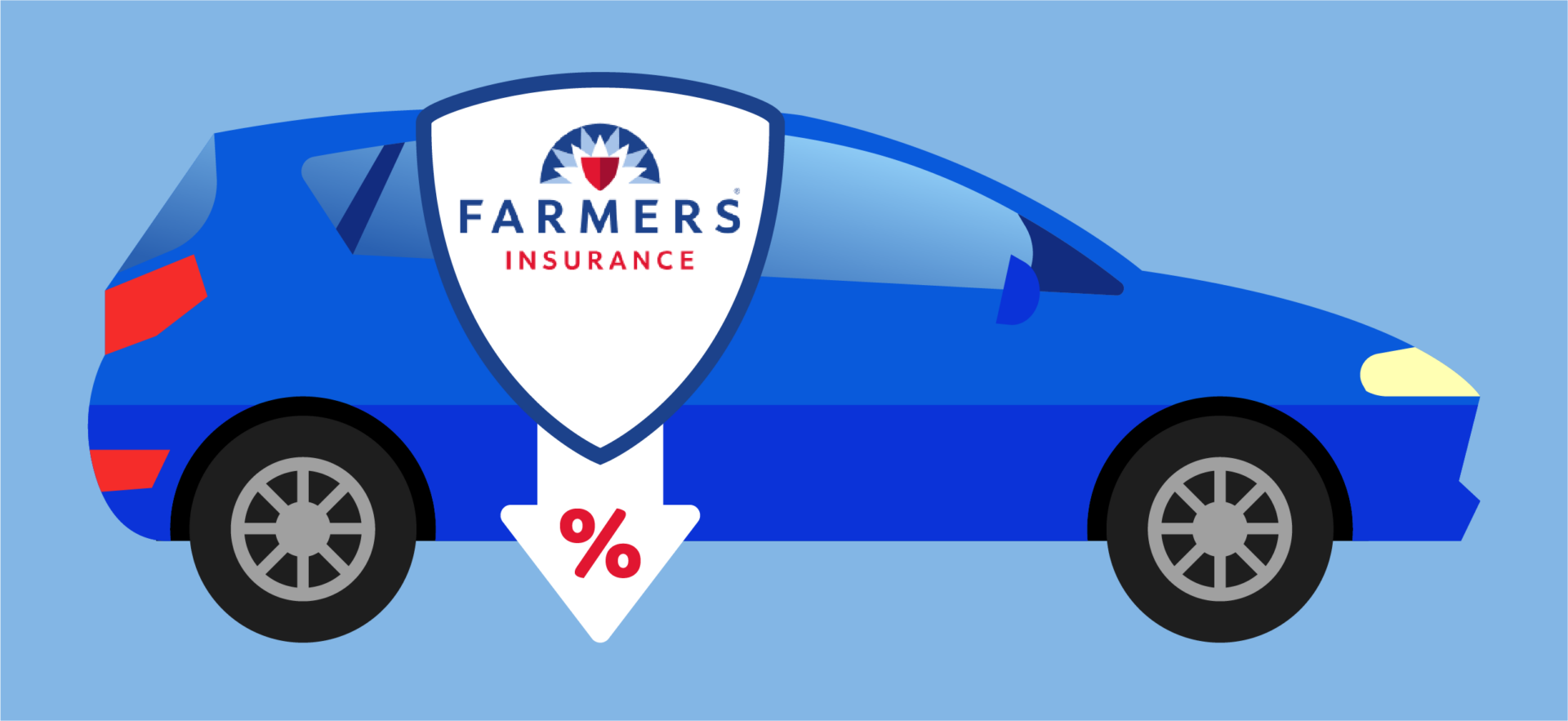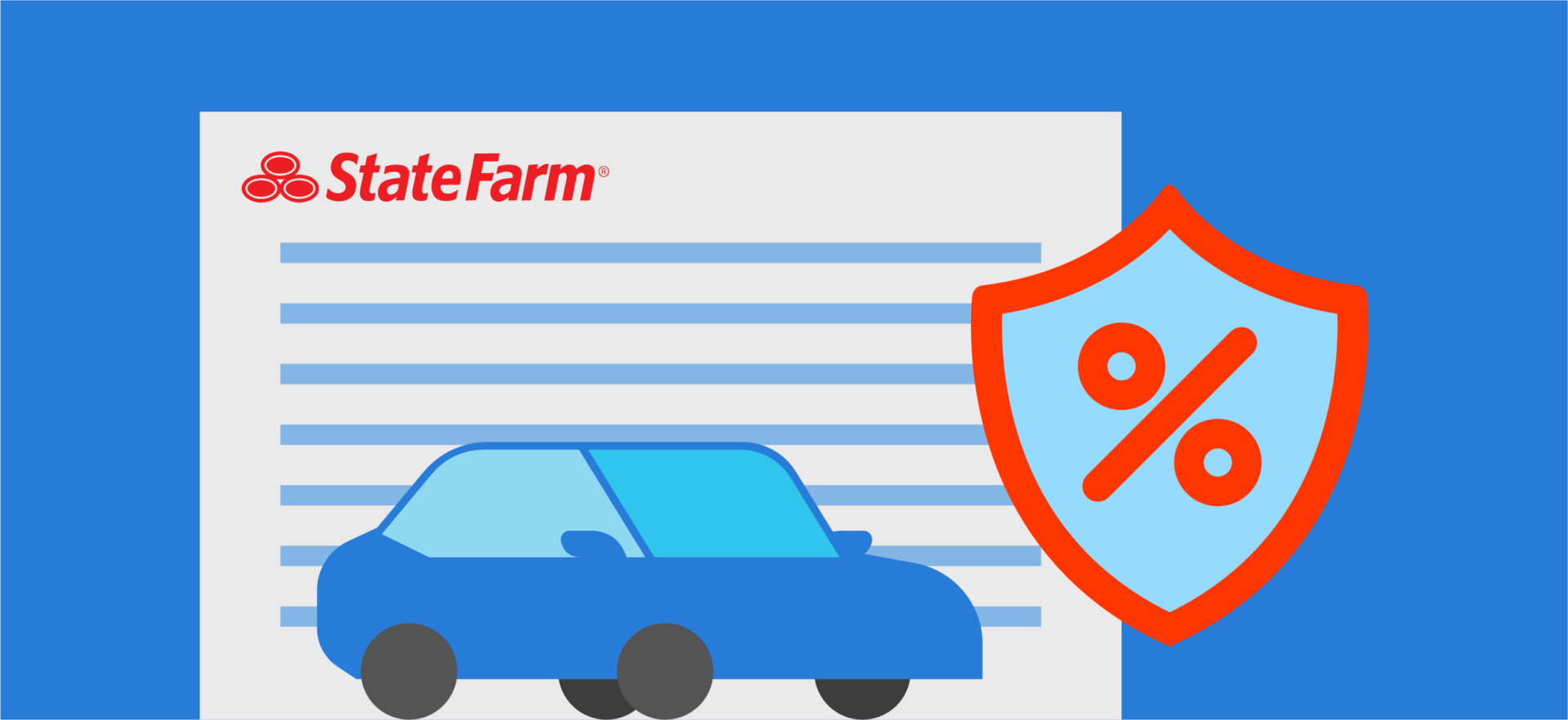The State of Nevada prohibits drivers from using handheld cell phones behind the wheel. This means you may not call, text, or go online from your mobile device while operating a vehicle. However, some exceptions apply.
Here’s what you should know about the current regulations in Nevada and what to do if you get a cell phone ticket.
How Much Is a Cell Phone Ticket in Nevada?
If you’re pulled over for using a cell phone while driving, you’ll pay a fine of $50 to $250, as shown below:
| Cell Phone Law Violation | Fine* |
|---|---|
| 1st offense within a 7-year period | $50 |
| 2nd offense within a 7-year period | $100 |
| 3rd (or subsequent) offense within a 7-year period | $250 |
| *The fine amount will double if you commit the offense in a work zone. | |
Nevada’s cell phone driving laws apply to any handheld wireless communications device, not just smartphones.
For example, you may not use a GPS device unless it’s mounted and operated hands-free, allowing you to focus on the road. The same applies to tablets or any other electronic device that can distract you while driving — if it requires holding, typing, or scrolling, it’s not permitted.
Traffic school can help you keep a clean driving record, prevent insurance increases, and more!
What to Do If You Get a Cell Phone Ticket in Nevada?
Nevada drivers caught using a handheld cell phone behind the wheel are charged with an infraction and face civil fines. Repeat offenders also receive demerit points in Nevada, which can lead to license suspension.
With that in mind, here’s what you can do if you get a cell phone ticket:
Pay It
This is the best option for first-time offenders. First-time cell phone tickets carry a $50 fine and no demerit points. You can contest the citation, but it doesn’t really make sense, as the legal fees would exceed the fine.
To pay your fine, check your ticket to see which court is handling your case, then visit its website to review the payment options. Most Nevada courts accept online payments, but you can also pay the fine by mail or in person.
Fight It
To contest a cell phone ticket in Nevada, you have to plead not guilty and request a trial. After that, gather supporting evidence to build your defense. You may also ask a traffic attorney to represent you in court. We recommend going this route if you’re a repeat offender facing license suspension.
First, make sure you have a strong case. The court will likely dismiss your ticket if you can prove you fit one of the law’s exceptions or that the officer was wrong.
For example, making an emergency call while driving is not a violation of Nevada’s cell phone driving law. In such cases, you may use phone logs, medical records, police reports, or other evidence to demonstrate that you had a lawful reason to call.
Go to Traffic School
A second or third cell phone ticket will add four points to your record, but you can erase three by attending traffic school. This is a quick course you can complete online or in person, no more than once every 12 months.
Nevada traffic school is a viable option for drivers charged with minor offenses like texting and driving or following too closely. To qualify, it’s necessary to meet Nevada traffic school eligibility:
- Hold a non-commercial driver’s license.
- Have three to 12 points on your driving record.
- You’re not required to appear in court for the offense you’ve been charged with.
- You didn’t commit the offense in a school zone.
- You haven’t attended traffic school for point reduction in the past 12 months.
- You were not involved in a crash at the time of the offense.
- The violation you’ve been charged with carries up to four demerit points.
Request the court’s permission to take traffic school when paying your fine. Once approved, choose a DMV-licensed course provider like Traffic Safety Institute.
How long is traffic school? The course takes five or eight hours and consists of several modules plus a final exam that requires a 70% passing score. Upon completion, the court will remove three demerit points from your record, which can help you avoid license suspension.
Nevada Cell Phone Laws: What Is and Isn’t Allowed
Nevada’s cell phone laws prohibit the use of handheld wireless communication devices, except in certain situations. These regulations apply to cell phones, pagers, personal digital assistants (PDAs), and similar devices while driving, including when stopped at traffic lights.
According to Section 484B.165 of the Nevada Revised Statutes (NRS), you are not allowed to:
- Text or type on a phone or other handheld devices while driving.
- Read or send emails, blog posts, online messages, and other data while behind the wheel.
- Make voice calls unless you use a hands-free setup.
- Surf the web while operating a motor vehicle.
You can go online, access mobile apps, send text messages, or make calls while driving as long as it’s through a hands-free device.
Can You Use a GPS System While Driving?
Yes, you may use a navigation system while driving in Nevada if it supports voice control. The device must be securely affixed to your vehicle in a way that doesn’t obstruct your view of the road.
If you don’t meet these requirements, you could be charged with distracted driving. For example, manually entering addresses or adjusting the device settings while your vehicle is in motion violates traffic laws.
Exceptions to Nevada’s Handheld Cellphone Ban
There are situations where you may use a handheld device while driving without breaking the law. Let’s see a few examples:
- You want to report a crime, medical emergency, or safety hazard.
- You’re an emergency worker (e.g., firefighter) or law enforcement officer on duty.
- You’re an amateur radio operator licensed by the Federal Communications Commission (FCC) and must communicate during emergencies or drills.
- You’re a utility worker using a company-issued device in an emergency (e.g., a power outage).
- You’re in the driver’s seat of an autonomous vehicle that is handling all driving functions.
For example, if you witness a crash on your way to work, you may pick up the phone and call 911 without pulling over.
Beyond the Fines: Additional Consequences for a Nevada Cell Phone Ticket
A first-time cell phone ticket won’t impact your driving record or insurance premiums. But any subsequent convictions within a seven-year period will result in demerit points, leading to higher insurance rates.
Here’s what to expect after receiving a ticket for texting and driving:
Demerit Points
If you’re caught using your phone behind the wheel, you’ll receive four demerit points. This doesn’t apply to a first-time offense, which carries only a fine.
The points will stay on your record for 12 months unless you complete Nevada traffic school or have the ticket dismissed. Note that you may lose your driving privileges if you accrue 12 or more points within one year.
Higher Auto Insurance Rates
In Nevada, just one cell phone ticket can raise your insurance rates by around 29%. If, say, you pay $2,100 per year for auto insurance, your annual premiums could increase to $2,709 for three consecutive years.
Personal Injury Lawsuit
Nevada is an at-fault state. So, if you cause a car accident, the injured party can file a claim against you for damages like medical costs or lost income. In such cases, a cell phone ticket may be used as evidence to show you were distracted at the time of the crash.
A Poor Driving Record
Under Nevada law, any convictions remain on a person’s driving record unless the charge is dismissed. This can affect your reputation, career prospects, and professional licenses.
Let’s assume you apply for a job that requires driving. The employer may see the conviction on a background check and decide not to hire you.
A conviction for cell phone use while driving could also lead to disciplinary action. This is often the case for government employees, paramedics, commercial drivers, EMTs, and other professionals whose jobs require a clean driving record.
How to Avoid Cell Phone Tickets in Nevada
You may feel like you depend on your phone, but you can and should put it away while driving.
Here’s what else you can do:
- If you have passengers, ask them to answer messages or calls on your behalf.
- Turn on silent mode when you’re behind the wheel.
- Enter GPS coordinates, set up your playlist, and call or text whoever you need to before you start driving.
- Pull over and stop if you want to call, text, or search for information online.
- Use apps like Freedom, EyezUP, or OnMyWay to block incoming calls, messages, and other distractions.
- Enable voice control on Google Maps, Waze, Amazon Music, and other apps you want to use while driving.
- Ask Siri or Google Assistant to read your text messages.
- If you wear a smartwatch, enable hands-free voice controls to handle basic tasks (e.g., answering phone calls) without touching the screen.
- Use Android Auto, Apple CarPlay, or a similar system to access maps, music, and apps from your car’s display.
Also, set your GPS before hitting the road. Review the route, make any necessary adjustments, and enable voice-guided navigation. Position the device at eye level to see the directions without having to turn your head or look down.
Be aware that even hands-free devices can disrupt your focus and increase the risk of a car accident!
Final Thoughts
No phone call or text message is more important than your life, so don’t take unnecessary risks.
Failure to comply with Nevada’s cell phone driving laws isn’t just dangerous, it’s expensive, too.
If you do get a ticket, you can take Nevada traffic school courses with Traffic Safety Institute to keep points off your record. We’re a DMV-approved traffic school, and our training program is accepted by all state courts.
At Traffic Safety Institute, you can study online at your own pace from any device. Our course takes only five hours and includes unlimited retakes plus other perks:
✅ Free audio read-along
✅ 24/7 customer support
✅ Save-and-resume feature
✅ Open-book final exam
✅ Electronic certificate of completion
✅ DMV reporting within 30 days
As far as pricing goes, we charge a low flat fee of $19.99, which covers all these perks and the course materials. The best part is, you don’t have to pay until you pass.
Don’t let a cell phone ticket skyrocket your insurance premiums. Start traffic school for FREE today.
